
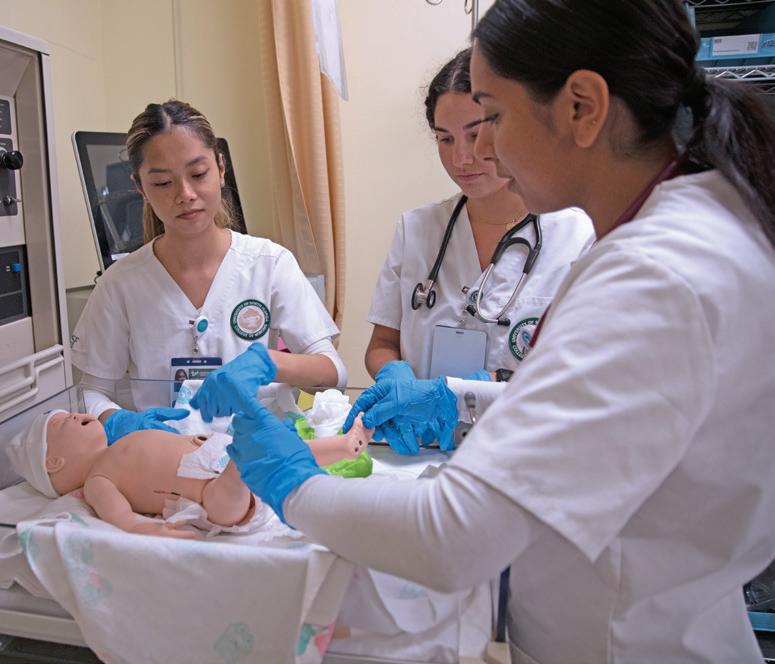

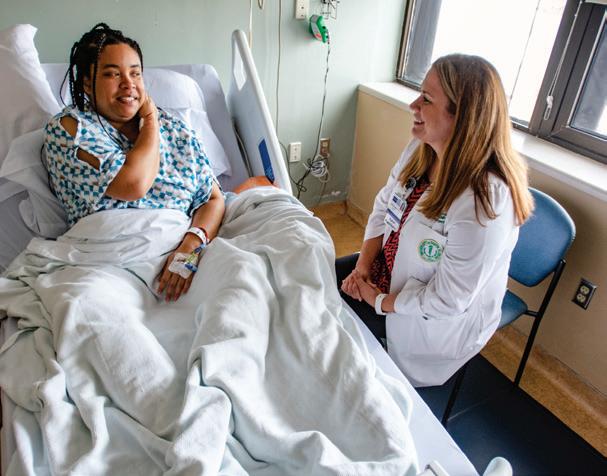






GEICO partners with University of South Florida Alumni Association, which means you could get exclusive savings on car insurance. You could also get 24/7 customer service through the top-rate GEICO Mobile app, online, or by speaking with a friendly, licensed agent.
geico.com/alum/usf

Some discounts, coverages, payment plans, and features are not available in all states, in all GEICO companies, or in all situations. GEICO contracts with various membership entities and other organizations, but these entities do not underwrite the offered insurance products. Discount amount varies in some states. One group discount applicable per policy. Coverage is individual. In New York a premium reduction may be available. GEICO may not be involved in a formal relationship with each organization; however, you still may qualify for a special discount based on your membership, employment or affiliation with those organizations. GEICO is a registered service mark of Government Employees Insurance Company, Washington, DC 20076; a Berkshire Hathaway Inc. subsidiary. GEICO Gecko® image © 1999–2022. © 2022 GEICO

About the cover: Clockwise from upper left, the College of Nursing’s charter class of graduates, 1975; nursing students work with state-of-the-art simulation equipment; Jennifer Krawczyk, the first graduate of the advanced practice provider neurosurgical fellowship, with a patient at Tampa General Hospital in August 2019.
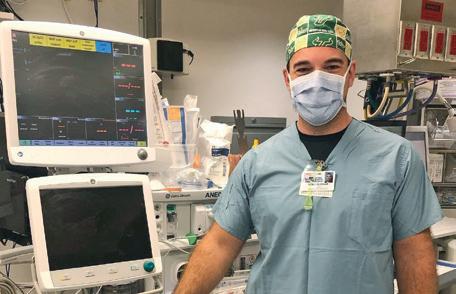
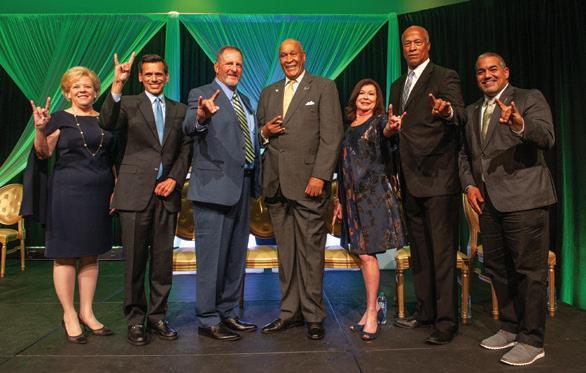
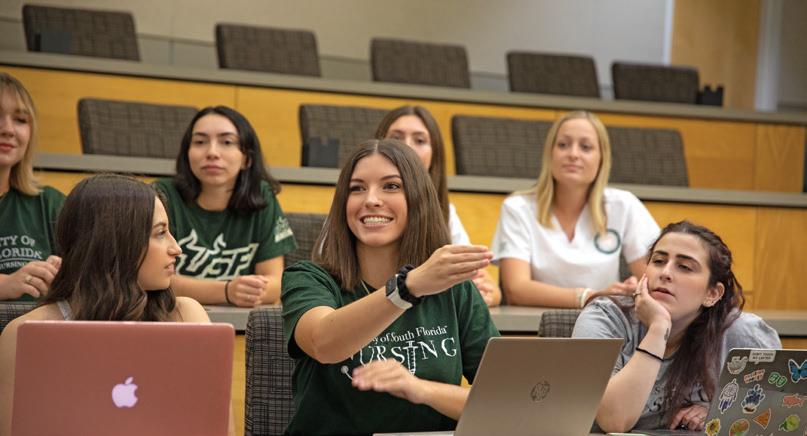
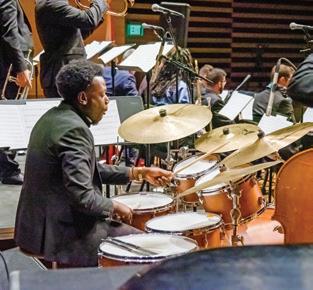
THIS HAS BEEN AN INCREDIBLY BUSY and rewarding fall semester across our USF campuses. We also know this has been a very painful period for many members of the USF family, friends of the university and neighbors who suffered heartbreaking losses from Hurricane Ian. Many of you have provided much-needed assistance throughout this challenging time, and I also am grateful to the many faculty, staff and students who have volunteered in the hardest-hit areas and contributed in other ways. A story on page 15 of this issue details a few of their many efforts.

The teaching and learning, service and research of our College of Nursing are in the spotlight as the cover package for this issue, beginning on page 24. As we prepare to celebrate its 50th anniversary in 2023, the college is embarking on a major expansion that will significantly enhance undergraduate education to help address Florida’s nursing shortage crisis. Thanks to the Florida Legislature and Gov. Ron DeSantis, this year’s state budget includes critical funds to expand the college’s facilities on the Tampa campus to create additional classrooms and state-of-the-art simulation space. The budget also includes recurring funding to support a nearly 50 percent increase in the number of faculty. By 2028, we expect the college will produce more than 750 undergraduate nurses each year, a roughly 200 percent increase.
Under Dean Usha Menon’s leadership, the college also is expanding its efforts to address disparities in health care delivery. It has meaningful partnerships with the Salvation Army, Port Tampa Bay and the Tampa Port Ministries, and early next year, the college expects to take
delivery of a mobile health unit that will increase access to health care in several medically underserved areas in our region. The efforts of the college’s faculty, staff and students reflect the priority we place on understanding and responding to the needs of our communities.
We also are excited about the expansion planned for the SarasotaManatee campus. As the story on page 10 explains, two much-needed projects will physically transform the campus by doubling the amount of space for living, learning, research and other activities. A nursing/STEM building will double the size of the campus’s nursing program; increase new majors in the health disciplines and other programs; and fill the need on campus for large classrooms, teaching and clinical labs and research facilities. It also will add to our efforts to meet the demand for more nurses, business professionals, scientists, engineers and other professionals. The second project is a combined housing and student center complex that will allow the campus to strengthen the overall student experience. Once completed, the sixstory building will accommodate up to 200 residents. We expect to break ground on this project in early 2023.
It was wonderful to see so many of you during our Homecoming celebration in October. One of the highlights was the presentation of the annual USF Alumni Awards. Congratulations to Michael Rao, Ernest Boger and Ken Eriksen, the very deserving recipients of recognition as USF Distinguished Alumni, the highest honor bestowed on alumni by the university. We also extend our congratulations to Pam Muma, who received the Donald A. Gifford Service Award, and Jerry Bell, recipient of the Class of ’56 Award. These honors recognize their transformative dedication to the university and the community and are USF’s most prestigious honors for service. A story about the honorees begins on page 44.
Another of our wonderful fall traditions is the USF Fast 56 awards. The 10th annual ceremony celebrated the 56 fastest-growing businesses owned or led by alumni, and the recipients come from all corners of the university, from engineering and education to criminology, geology and psychology. You can learn more about these accomplished individuals and their businesses on page 50.
Thank you for your support of our students and our university. I wish all of you a wonderful holiday season and a new year filled with peace and good health.
Rhea F. Law, ’77
LiFe MeMbeR No. 976 PResideNt
“…there’s no single answer that will solve all of our future problems. There’s no magic bullet. Instead, there are thousands of answers — at least. You can be one of them if you choose to be.”
~Octavia Butler By Elizabeth Hordge-FreemanIN THE SUMMER OF 2022, I had the opportunity to travel to Montgomery, Alabama, as a research consultant on a grant awarded to Denise Davis-Cotton as part of the Florida Center for Partnerships in Arts-Integrated Teaching on USF’s Sarasota-Manatee campus. The primary goal of the grant was to expose teachers to representations of the civil rights history of Montgomery, as it is represented in museums, and provide guidance to teachers about how they might integrate lessons from museum studies into their pedagogy. After the weeklong trip, I was disabused of the idea that I knew even a tenth of the rich legacy of Martin Luther King, Jr., Rosa Parks, John Lewis, Claudette Covin, and other civil rights leaders. These individuals were connected by their sheer determination to stand in their truth and their willingness to courageously confront hatred and discrimination. They did so without allowing the pain of bigotry to dim their sense of hope for what the future might bring.
I write this column on the day following the conclusion of an election cycle that exposed the ongoing polarization of our society. But, no matter where we fall on the political spectrum, we must figure out how to forge our future together. Beginning in 2020, as senior advisor to the president and provost for diversity and inclusion, and later, as interim vice president of institutional equity, I made — and continue to make — collaboration and partnership the cornerstone of my approach to campus transformation. The restructure of the Office of Diversity, Equity and Inclusion, the development of the Diversity, Anti-Racism and Equity dashboards, the cultivation of impactful virtual space through the Enlightenment Series (reaching over 1,000 participants), and the creation of new institutional practices, policies and councils, have been established by partnerships designed to institutionalize inclusive excellence. USF’s recognition as a recipient of the 2022 Higher
Education Excellence in Diversity award is a tribute to the power of the multiple stakeholders, organizations and leaders who collaborated to drive this transformation.
I am turning a page in my professional journey with my transition into the role of interim associate vice provost for faculty recruitment, retention and engagement. In this role, I am thrilled to be integrating inclusive excellence into one of the most significant areas of the university: faculty success. As USF strives to sustain its incredible upward trajectory, we must be able to attract talented and diverse faculty and retain them if we are to benefit from their intellectual promise. This involves providing competitive compensation packages, ensuring their access to state-ofthe-art technology, providing a robust research infrastructure and offering teaching support. My attention will also be directed towards faculty retention by developing robust mentorship programs, inclusive and equitable annual evaluation processes, and transparent and inclusive tenure and promotion processes. Our support of faculty success must also recognize the work-life challenges that implicate both the professional and personal lives of faculty, including mental health and well-being.
I can think of no better way to end my last column than to share the wisdom and work of science fiction writer Octavia Butler. Butler wrote imaginative stories that were an eclectic mix of speculative fiction, fantasy and epic tales of human and alien co-existence. She dared readers not to just imagine worlds of endless possibility, but to then apply that same thinking to imagine themselves living up to their full potential. If the future is now, let’s commit ourselves and our institution not to just find the answer, but to be the answer. #USFbeginswithUS.
Elizabeth Hordge-Freeman is an associate professor of sociology and interim associate vice provost for faculty recruitment, retention and engagement.

USF magazine is published three times a year by University Communications & Marketing and the USF Alumni Association for alumni, friends and members of the USF community.
University Communications & Marketing
Vice President for Communications and Marketing
Kim Hill, MBA ’18
USF Alumni Association
Vice President and Executive Director Bill McCausland, MBA ’96
USF Content Editor Tom Woolf Design Editor Anne Scott Alumni Content Editor Penny Carnathan ’82
University Leadership
Rhea Law, ’77, President
Kiki Caruson, Interim Vice President of USF World
Cynthia DeLuca, Vice President of Student Success
Eric Eisenberg, Interim Provost and Executive Vice President
Sidney Fernandes, MS ’00, Vice President of Information Technology and Chief Information Officer
Paige Beles Geers, Acting Chief of Staff
Christian Hardigree, Regional Chancellor of USF St. Petersburg campus
Kim Hill, MBA ’18, Vice President for University Communications and Marketing
Karen A. Holbrook, Regional Chancellor of USF Sarasota-Manatee campus
Elizabeth Hordge-Freeman, Interim Associate Vice Provost for Faculty Recruitment, Retention and Engagement
Michael Kelly, Vice President of Intercollegiate Athletics
Charles Lockwood, MD, Senior Vice President of USF Health
Carole Post, Vice President for Facilities and Public Safety Operations
Nick Setteducato, Interim Vice President and Chief Operating Officer
Angie Sklenka, Vice President and Chief Human Resources Officer Rich Sobieray, Senior Vice President, Financial Strategy and Administrative Services
Gerard D. Solis, General Counsel
Jay Stroman, Senior Vice President of Advancement and Alumni Affairs
Sylvia Wilson Thomas, Interim Vice President for Research Mark Walsh, Vice President for Government Relations
USF Board of Trustees
William Weatherford, Chair Michael E. Griffin ’03, Vice Chair
Sandra Callahan
Michael Carrere
N. Rogan Donelly, MBA ’18
Oscar Horton
Lauran Monbarren
Shilen Patel
Fredrick Piccolo
Jenifer Jasinski Schneider Melissa Seixas, MA ’96
Contact USF University Communications & Marketing 4202 E. Fowler Ave., CGS 301, Tampa, FL 33620-4301 (813) 974-4014 or ucm@usf.edu
Contact the USF Alumni Association
Gibbons Alumni Center
4202 E. Fowler Ave., ALC100, Tampa, Florida 33620-5455 (813) 974-2100 • (800) 299-BULL (2855) alumni@usf.edu
Update your contact information: www.myusfbio.org
Reprint policy: USF encourages reprinting articles in their entirety. Permission may be obtained by contacting ascott@usf.edu.
Disclaimer: The information in USF magazine was correct at the time of publication. USF’s fast-paced environment changes daily. Every effort is made to ensure accuracy at the time of publication.
BUILDING AN EQUITABLE
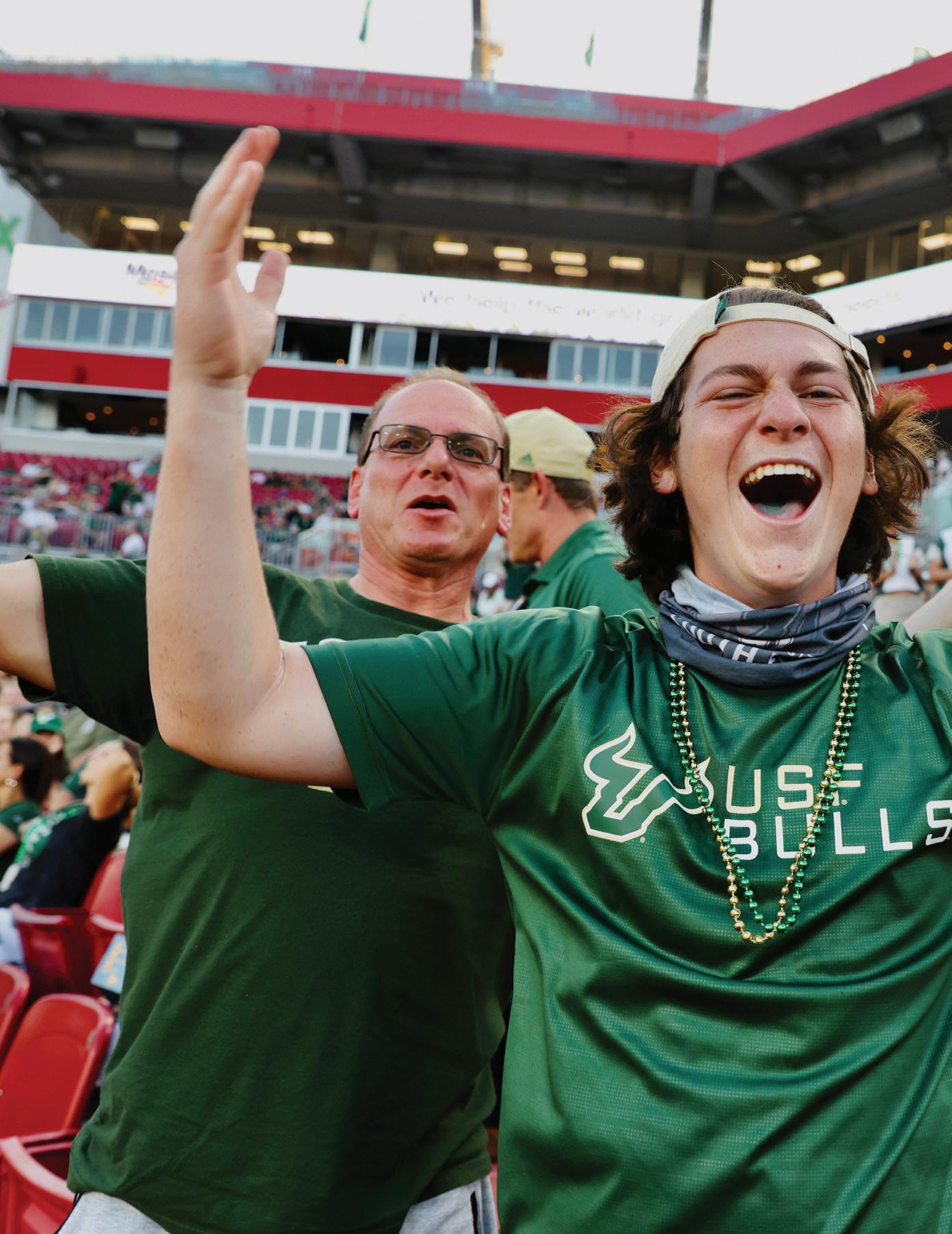
THOUSANDS OF STUDENTS, alumni, staff, family and friends celebrated our 58th Homecoming in October. More than 50 events at our three campuses culminated in the Oct. 15 game against Tulane. While we didn’t beat the Green Wave, Homecoming 2022 proved a win for many. Fans cheered on the Bulls following an evening of watch parties for the Homecoming Running of the Bulls Parade and gameday tailgates. The week also included a student talent showcase and Homecoming Ball; a concert featuring Ben Reilly and 2 Chainz; Carni-Bull; the St. Petersburg campus’ famed cardboard boat races; and a canned food drive for Feed-A-Bull Pantry for students in need of food assistance, among other activities.
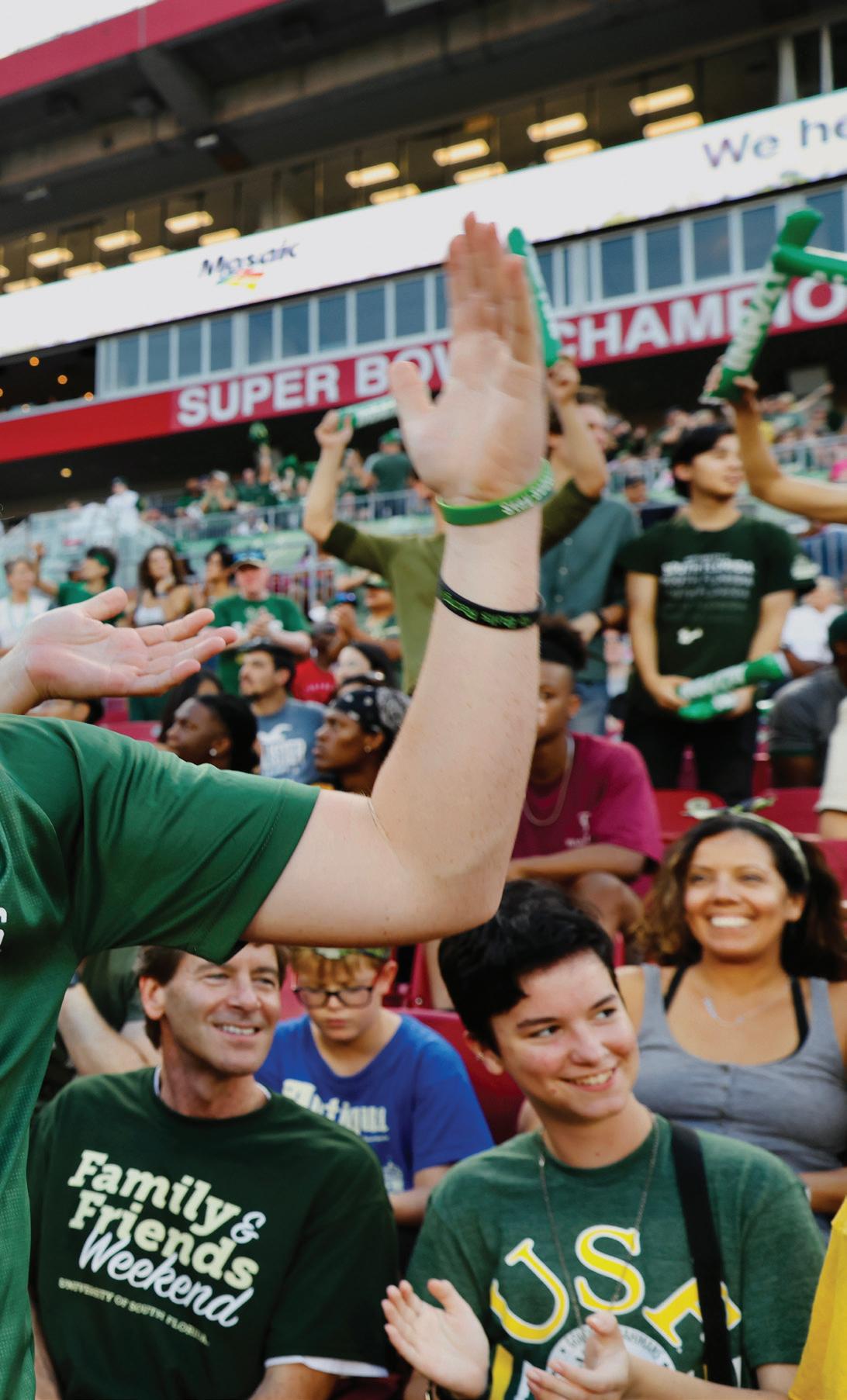
WITH BLUE SKIES ABOVE and platefuls of lobster, tenderloin and shrimp before them, guests at the 28th annual Brunch on the Bay raised their paddles for USF’s Sarasota-Manatee campus.
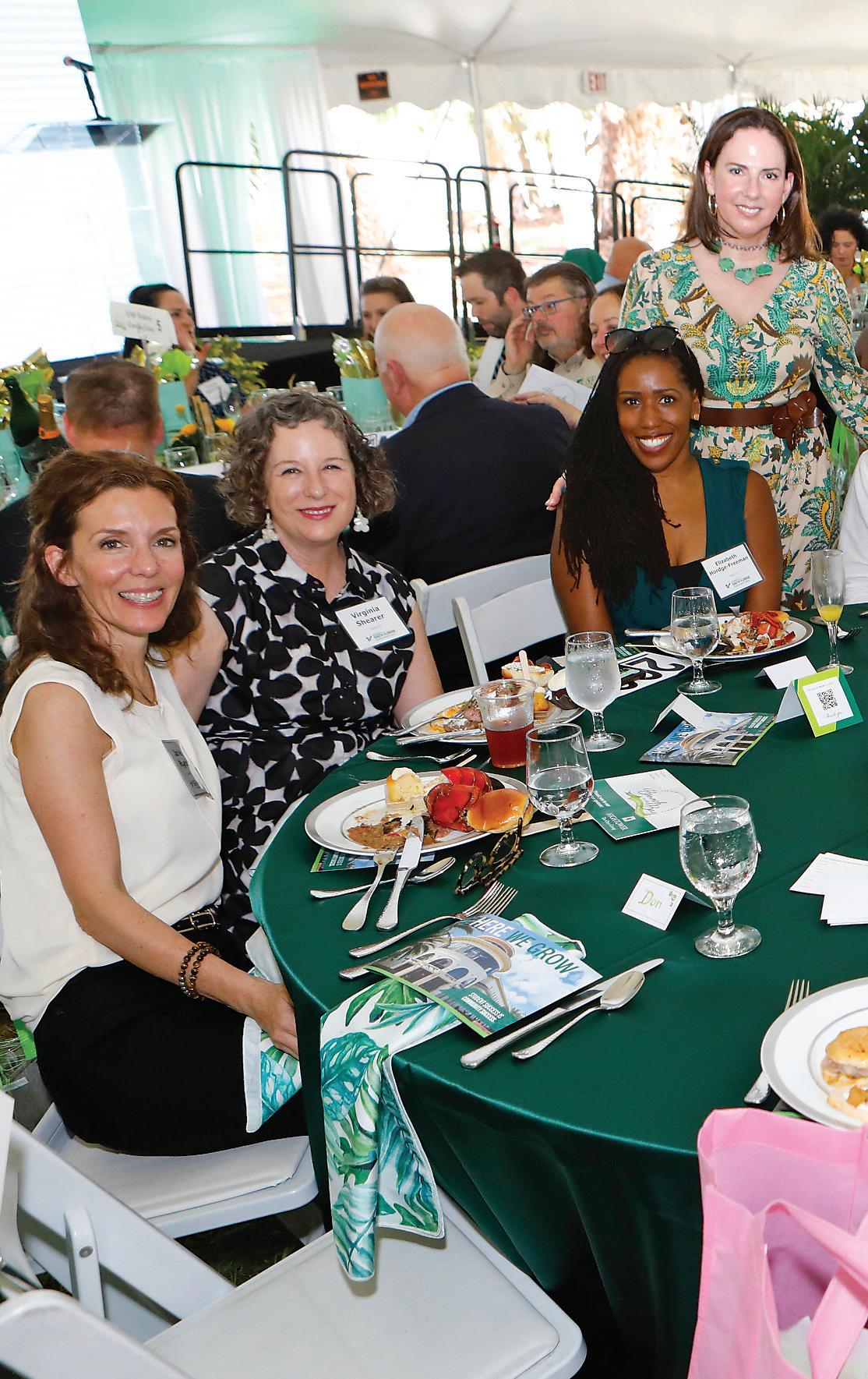
The sold-out November fundraiser broke records, garnering more than $537,000 for construction of a nursing/STEM building and student scholarships. In a locale renowned for its cuisine, more than 20 restaurants and caterers pitched in with prized menu items.
“The connection this campus enjoys with the surrounding community is your superpower,” President Rhea Law told the crowd.
Built in 2006, USF’s southernmost campus is poised for a new chapter. Construction is set for its first student center and residence hall, and the planned nursing/STEM building will double the size of its nursing program and expand other health-field majors.
Life Members and Manatee County residents Mona Jain, PhD ’84, and her daughter, Anila Jain, ’81, both USF Distinguished Alumni, co-chaired the event.
“This campus gets unbelievable support from the community, as well as from USF and from the state, for all the right reasons,” said Anila Jain. “Our students get internships and mentors close to home, and the local economy gets students who’ve received a world-class education.”
Since 1994, Brunch on the Bay has raised more than $6 million for student scholarships.
This year’s Title Sponsor was the USF Federal Credit Union.
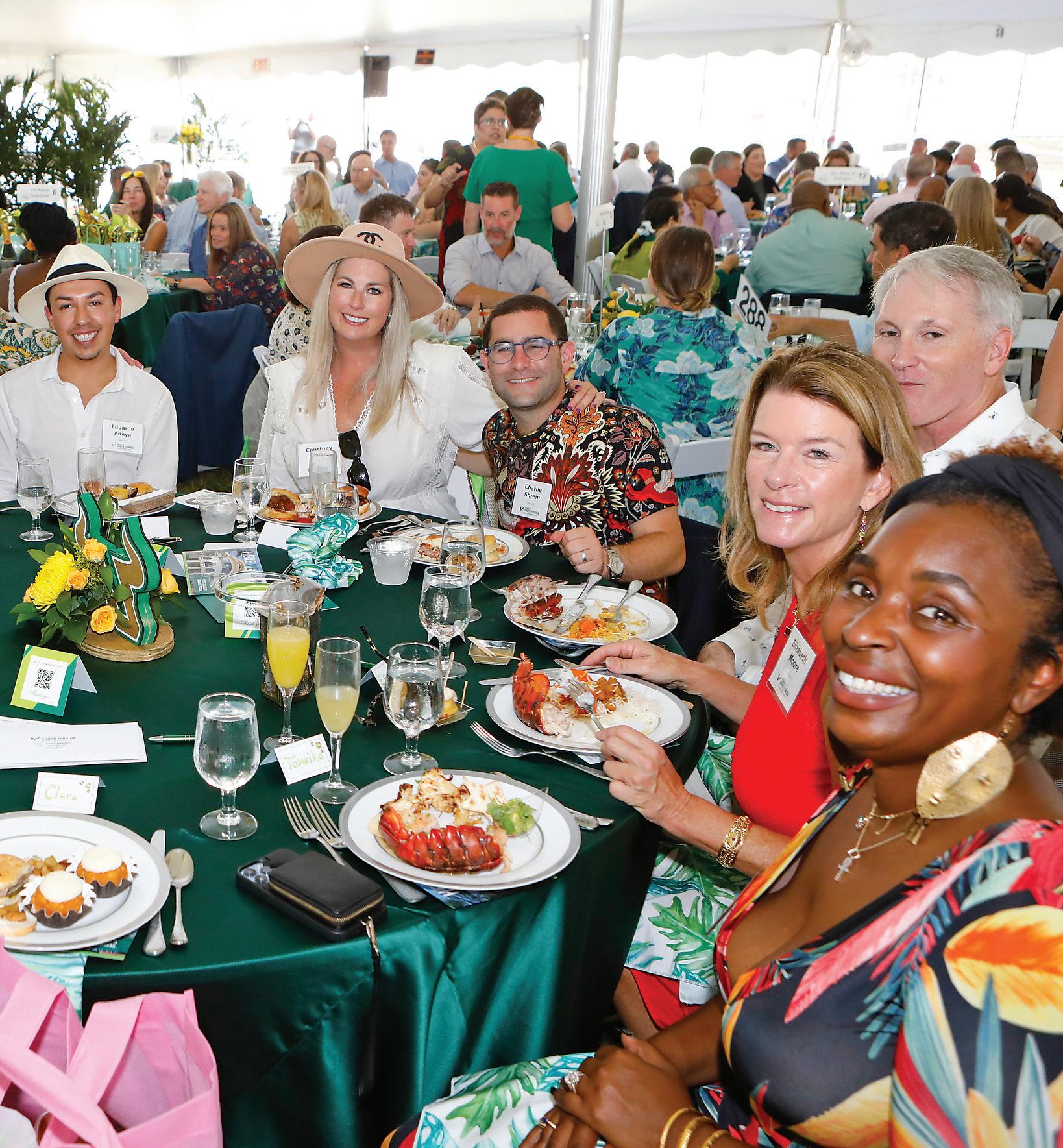
USF’S PRESENCE IN SARASOTA-MANATEE started humbly in the early 1970s, with the college sending teachers to the area for night classes in education, business and the liberal arts, the classrooms borrowed from local high schools. Even after the USF System assumed control of New College of Florida in 1975, USF in Sarasota-Manatee did not have a campus, let alone a building, to call its own, sharing space with New College of Florida on its campus for more than 30 years.
In 2006, five years after the Florida Legislature had split the governance of the two schools, USF Sarasota-Manatee reached a defining moment in its history with the christening of the Crosley Campus Center. The USF Sarasota-Manatee campus, fueled by growth in enrollment,
new academic programs and community support, evolved into a $130-million-a-year economic powerhouse for the region.
The building, with its iconic rotunda, remains the centerpiece of the campus along Sarasota Bay and across U.S. 41 from Sarasota Bradenton International Airport.
The campus is now on the eve of a new, even more exciting era, thanks to two planned major expansion projects worth more than $100 million.
Together, a nursing/STEM (science, technology, engineering, mathematics) building and a residence hall/ student center complex promise to physically transform the campus by doubling the amount of space for living, learning, research and other activities.
The USF Board of Trustees and the Florida Board of Governors have approved construction of the housing/ student center complex. And early next year, the Sarasota-Manatee campus will launch a multi-million dollar capital campaign in support of the nursing/STEM building.
“We are at a pivotal moment in the history of our

campus, and what we can offer to our students and faculty, and the entire community,” campus Regional Chancellor Karen Holbrook says. “With the support of our friends and supporters, we will build a new and more vigorous campus experience and invest in a new generation of thought leaders for Sarasota-Manatee and beyond.”
The move up U.S. 41 to its own facilities was the catalyst for a period of unprecedented growth at the USF Sarasota-Manatee campus. Enrollment boomed, new course offerings and other programs were added and demand increased for a quality, affordable education as USF’s academic reputation rose. The two-county region grew from a population of about 590,000 in 2000 to 827,000 in 2020 and prospered, and so did the only four-year research university in the area.
Whether on its own or since consolidation two years ago, the campus has become a desired destination for students. As a result, the 130,000-square-foot Crosley
Campus Center is bursting at the seams.
Addressing that need to grow and transforming what it means academically for students and faculty alike are goals for the USF officials planning and designing the nursing/STEM building.
Surveys show that STEM buildings, which typically include high-tech labs that allow for groundbreaking research, are what prospective students want to see during campus tours and can drive their decision on which university to attend. Similarly, STEM buildings help attract and retain faculty.
The $61.7 million, 75,000-square-foot nursing/STEM building, to be erected just west of the Crosley Campus Center and on the north side of the campus courtyard, will double the size of the campus nursing program; increase new majors in the health disciplines and other programs; and fill the need on campus for large classrooms, teaching and clinical labs and research facilities.
Beyond meeting USF’s needs, it will allow the campus to better address heightened demand in the local marketplace, and beyond, for more nurses, business professionals, scientists, engineers and other professionals.
The need in Sarasota-Manatee for some of these workers is great. For example, Sarasota Memorial Hospital, one of the area’s largest employers, recently announced it had recruited more than 50 nurses and other medical workers from the Philippines because of a national worker shortage in the U.S. exacerbated by the COVID-19 pandemic.
“The nursing/STEM building will signal students, parents, funding agencies, friends and donors that the USF Sarasota-Manatee campus is committed to providing a contemporary, high-quality educational experience supporting the community’s demand for more nurses and science and technology graduates with the knowledge and skills needed to enter the talent pipeline,” Holbrook says.
Earlier this year, the Florida Legislature and Gov. Ron DeSantis approved an initial $3 million appropriation for the building. Additional funding will come from the state, as well as proceeds from the annual Brunch on the Bay fundraisers and most importantly, a capital campaign set to start in 2023.
In the fall of 2024, when as many as 200 students move into the new residence hall, the campus will be able to shed the moniker of “commuter college.”
A combined housing and student center complex will be built along Seagate Drive just west of the Crosley Campus Center and across the courtyard from where the nursing/STEM building will be constructed. A groundbreaking is expected early next year.
USF expects the housing/student center complex will create a new living-learning environment for students, grow on-campus engagement and, like the nursing/STEM building, boost student recruitment and retention efforts.
“The new housing and student center is crucial to supporting the growth of the University of South Florida Sarasota-Manatee campus,” USF President Rhea Law says. “This new project will allow the campus to strengthen the overall student experience as it continues expanding its

academic program offerings in high-demand fields.”
The six-story building will have two parts. The student center, on the bottom two floors, will feature a new bookstore and spaces for dining, lounges and meeting rooms. Student housing on the top four floors will feature various apartment-style configurations, with shared bathrooms, living spaces and kitchens or kitchenettes.
Holbrook says the building will bring an added sense of vibrancy to campus.
“Our students have often told us they would like to live on campus and enjoy a traditional college experience. The new student center and residence hall will transform our campus and provide our students with new opportunities for success,” Holbrook says. “This project has been considered for several years, and I’m grateful to President Law for helping bring it to fruition, and to the USF Board of Trustees and the Board of Governors for their support.”
In a study that was updated last May, a USF consultant reported that for many students, living on campus would be more affordable than many off-campus options in the area, one of the most expensive rental markets of similar size in the country. This fall, more students than ever before are living on USF’s campuses in Tampa and St. Petersburg.
Construction is expected to cost approximately $39 million. USF will contribute $16.5 million, with the remaining funding coming from the sale of up to $30 million in bonds through the USF Financing Corp. The bonds will be repaid with revenue from the USF Housing System, as well as $200,000 a year in activity and service fees collected on the campus.
The campus has experienced non-stop growth since it opened. Rick Piccolo, chair of the SarasotaManatee Campus Board and a member of the USF Board of Trustees, has witnessed much of it from his perch as president of Sarasota Bradenton International Airport.
“It has been exciting to watch what is happening at the Sarasota-Manatee campus thanks to the hard work of the USF administration and others, and to consider what the future holds for the school,” Piccolo says. “The entire community should be thrilled with the support we have received from the governor, the local legislative delegation, the Board of Governors and other leaders, and with USF’s plans to become an even more essential part of our wonderful community.”
Visit sarasotamanatee.usf.edu/future to learn more about USF’s expansion at the Sarasota-Manatee campus.
- MARC MASFERRER | USF Sarasota-Manatee campus
Illustration: An architect’s rendering of the planned housing/ student center complex at the Sarasota-Manatee campus.


WHEN USF BEGAN OFFERING COURSES in rehabilitation counseling in 1972, just 10 students filled the seats. Today – 50 years later – the number of students in what is now known as Clinical Rehabilitation & Mental Health Counseling has grown to nearly 150, supported by a dozen faculty members. The breadth of instruction has also expanded, with additional focus in the areas of mental health, behavioral health, addictions and substance abuse counseling; marriage and family therapy; and disability sciences. The program within the Department of Child & Family Studies trains a workforce that meets a growing need nationwide.

“Students who graduate from our program gain a skill set that allows them to go on to fill a variety of roles in both vocational rehabilitation and mental health fields,” says Chih-Chin Chou, program director and associate professor in the Department of Child & Family Studies. “We are proud that nearly 100 percent of our students find jobs upon graduation and that many of them go on to provide increased access to care in our communities.”
The program prepares students to become certified rehabilitation counselors and licensed mental health counselors and offers opportunities for specialization, including certificates in addictions and substance abuse and marriage and family therapy. Graduates often go on to work with people with disabilities, including those of a physical, mental, emotional or chemical nature. Many choose positions at state, community-based or not-for-profit rehabilitation programs, or within federal agencies such as the Department of Veterans Affairs. Others find roles within for-profit and nonprofit mental health or substance abuse counseling centers, rehabilitation centers, in private-practice counseling, and more.
But it isn’t the job security, the ability to earn professional licenses, exceptional field placement opportunities or the graduate program’s No. 27 ranking by U.S. News & World Report that draw students in. Above all, many students say the innate feeling of wanting to help people and a passion for making a difference is what inspires to pursue the program.
Raquel Pancho, a 1993 graduate, is now the Americans with Disabilities Act coordinator for the City of Tampa. She ensures that the city complies with the ADA and that community members with and without disabilities have equitable access to public programs and services. She has also used her degree in previous positions in job coaching, counseling, case management, disability services, educational programs, and therapy. She credits the vibrant student community at USF and deep personal and professional relationships she built during her graduate studies for the increase in confidence that she needed to succeed.
“I had some wonderful opportunities to learn under fabulous professors, and it was a tremendous growth
opportunity for me as an individual,” Pancho says. “The counseling skills I learned, I use now in my day-to-day interactions with community members, colleagues and in group settings to analyze what’s happening and see how I can offer support.”
Pancho, who is of Filipino descent, says that generous scholarships and the guidance of Tennyson Wright, professor emeritus and the program’s first Black faculty member, greatly impacted her decision to apply for the program. In a USF oral history, Wright discussed how a grant from the U.S. Department of Education helped promote diversity in the program by recruiting and training minorities to enter the profession.

“I assumed responsibility for recruiting students and developing them, along with the other faculty members, and graduating and placing those students. I felt that I was very successful. In fact, I believe the program was very successful,” Wright said. “We were able to recruit a lot of individuals locally as well as from around the Southeast.”
Even in its fifth decade, the program continues to grow and evolve. Just this year, the program launched its newest degree: an online Master of Arts in Rehabilitation Counseling & Disability Sciences, which emphasizes psychological, social, medical and vocational aspects of disability and prepares graduates for careers as rehabilitation counselors and professional disability specialists. The online aspect makes the program accessible to students who may be working full-time or reside outside of the Tampa Bay area.
- PATTY HARRISON | College of Behavioral and Community Sciences



AS SOON AS HURRICANE IAN SWEPT THROUGH Fort Myers and its vicinity on Sept. 28, USF community members sprang into action. From collecting donations to hosting cleanup missions and lending professional expertise, faculty, staff and students are continuing efforts to support those in need.
n More than 50 USF students volunteered at hurricane evacuation shelters as part of USF’s ongoing partnership with Hillsborough County. The USF Community Emergency Response Team helped set up and manage 16 general population shelters, special needs shelters and emergency pet shelters. Additionally, the Florida Department of Health deployed the USF Medical Response Unit’s Specialized Disaster Response Team to the largest special needs shelter in the county, which housed more than 300 evacuated patients and caregivers.
n Mental health experts Chris Groeber and Pam Alvarez from the College of Behavioral and Community Sciences have been providing support to those directly impacted by the storm. They work closely with the Department of Children & Families and have launched a series of online discussions, giving employees a platform to share their stories of survival.
n Christa Remington, assistant professor of public administration, has launched a study on the value of social capital in a disaster. She’s focusing on what are called “zero
responders” — individuals who are first on the scene, before firetrucks and ambulances arrive. She’s working with public officials, FEMA personnel and local nonprofit leaders in the Fort Myers area to discuss how they can leverage social ties and build greater synergy between them, and the grassroots efforts led by local volunteers.
n USF Health collected donations to assist with ongoing relief efforts, such as delivering medical and non-medical supplies and equipment. Faculty, staff, medical residents and students will continue to assist communities for months to come.

n Geveryl Robinson, vice president faculty liaison for the Black Faculty and Staff Association, led efforts to work with various community groups to organize collection sites and delivered more than 60 bags of supplies to help residents of Dunbar — a predominantly Black community in Lee County.
n College of Nursing faculty and staff volunteered at Swift Action Force Emergency camps, providing expertise in the medical tent and distributing food and water to families. Members of Student Government on the USF Sarasota-Manatee campus helped clean up debris surrounding damaged schools. The Florida Small Business Development Center located at USF is educating the community about available disaster relief programs.
n Nearly 4% of USF students are from southwest Florida. USF is helping support these students through the United Support Fund, which was established during the pandemic to provide a safety net that allows Bulls to focus on their studies. To contribute, visit giving.usf.edu/online/gift/g/UWE7.
Photos: USF’s Community Emergency Response Team helped set up and manage 16 Hillsborough County shelters; the USF Medical Response Unit’s Specialized Disaster Response Unit provided a combined 700 hours of medical care throughout the hurricane.

USF IS CONTINUING TO INCREASE OPPORTUNITIES for students, faculty, staff and the general public to engage with the arts.
The College of The Arts is offering tickets to all of its events free of charge. In addition, the college schedules some weekday matinees to provide options for individuals who may not be able to attend evening or weekend performances.
“The arts are integral in our lives — and part of our responsibility is to invite the public onto our campuses to join our arts communities,” Dean Chris Garvin says. “Providing easy access and making everyone feel welcome is a part of our mission going forward.”
This initiative aligns with the university’s strategic plan, In Pursuit of Excellence, which includes a focus on Design, Arts and Performance.
A wide variety of concerts, exhibitions, lectures, recitals, plays and performances featuring students, faculty and guest artists are presented on the Tampa campus. Some signature events include the Steinway Piano Series and performances by the USF Symphony Orchestra.
“Engaging with every generation, from children to retirees, is an important part of how we build community for the arts in Tampa Bay,” Garvin says.
Although tickets are free, registration for music, dance and theater performances is required to accommodate seating. For more information, visit the College of The Arts events page.

See all the shows, for free!
The arts are integral in our lives — and part of our responsibility is to invite the public onto our campuses to join our arts communities.”– Chris Garvin
USF Jazz Ensemble 1
USF’s Jazz Ensemble I is back with big band music ranging from the classics to modern compositions. Director Tom Brantley leads this 17-piece band composed of the finest jazz students from the School of Music.

n Feb. 13, 7:30 p.m., School of Music Concert Hall
USF Jazz Vocal Ensemble: Mardi Gras
This celebration of Black History Month honors the birthplace of jazz on its biggest holiday of the year.
n Feb. 21, 7:30 p.m., School of Music Barness Recital Hall
The USF Chamber Singers perform concert works by Black composers, past and present, in an evening of reflection the day after Mardi Gras revelry.
n Feb. 22, 7:30 p.m., School of Music Barness Recital Hall
Spring Dance Concert
DanceUSF showcases students’ talent and skill in this Spring Dance Concert.
n March 2-4, 7:30 p.m.; March 5, 3 p.m., Theatre 1
An afternoon of beautiful orchestra masterworks under the baton of William Wiedrich, director of orchestral studies.
n April 23, 2 p.m., School of Music Concert Hall
USF HAS HIT AN ALL-TIME HIGH on U.S. News & World Report’s annual ranking of the best colleges in America. In new rankings released this fall, USF sits at No. 42 among all public universities and No. 97 among all universities public or private. This marks the fourth consecutive year that USF has ranked in the top 50 public universities and the first time USF has broken into the top 100 among all universities.
Over the past 10 years, USF has jumped 52 spots among public universities, from No. 94 to No. 42, and 73 spots among all universities, from No. 170 to No. 97.
“USF’s standing in the rankings is a testament to the hard work and success of our faculty, staff and students, who make an impact in our communities every day,” USF President Rhea Law says. “We will continue to help shape the future for our society as we pursue our goal of becoming a top-25 public university.”
The U.S. News methodology combines a host of factors, including student graduation and retention rates, class size, student debt, faculty excellence and academic reputation. USF ranks ahead of, or is tied with, six public institutions in the prestigious Association of American Universities, the top 65 research universities in North America that USF aspires to be eligible for future membership.
- up 52 places among public universities in the last 10 yearsPhotos: Courtesy of USF COLLEGE OF THE ARTS
DURING THE SUMMER OF 1981, a funny thing happened in the life of James Strange, then a respected USF religious studies professor and acclaimed biblical archaeologist. His home phone began ringing off the hook with calls from newspaper reporters — each one inquiring about a certain new movie featuring a mystical ark.

The writers couldn’t wait to hear what Strange thought about the Steven Spielberg blockbuster “Raiders of the Lost Ark,” starring Harrison Ford as Indiana Jones, the fictional fedora-wearing university archaeology professor racing against the Nazis to find the supernatural relic.
Their intense interest was understandable. After all, Strange was a real-life university professor and archaeologist who supervised digs in ancient biblical lands, donned a distinctive leather hat, and amazingly had discovered near the time of the movie’s release — during a synagogue excavation in the Upper Galilee region of Israel — an actual ark of his own.
Of course, it didn’t possess powers that could lead to world domination, but instead was a half-ton stone elaborately carved in the shape of a peaked roof, designed to
cover a cabinet of Torah scrolls. Still, the media’s playful comparisons were irresistible, even getting attention from People magazine.
“Jim got phone calls from everyone,” says Carolyn Strange of her late husband of 57 years, who died of complications from cancer in 2018. “One writer from Miami even asked what happened when he opened it up. And Jim replied, ‘Well, it’s a stone, you can’t open it.’ And the writer said, ‘Oh yes you can, I saw the movie.’”
Strange’s son, James, recalls his father sitting in the living room in his underwear one morning, fielding countless phone calls about the movie on the family’s rotary phone. “It seemed like every time he hung up, the phone would ring again,” says his son, one of the couple’s four
Gifts from the family of beloved USF religious studies professor and archaeologist James Strange keep alive his memory and impact – marked by a touch of Spielberg.
children and a New Testament professor in the Department of Biblical and Religious Studies at Samford University in Alabama.
“I always remind people that my dad was never chasing Nazis,” Joanna Strange, a New York City writer and film producer, says with a laugh.

But while Strange didn’t save the world, his renowned work from the 1960s through 2016 unearthed new ones. He gave voice and recognition to lost civilizations.
“That’s what motivated my father,” his son says. “Whenever he talked about it or wrote about his reasons, it was quite clear that he felt a connection to the people whose belongings he was excavating. He really thought about the human beings who were no longer around and giving them the opportunity to speak — even a little bit — by what he was able to uncover and publish.”
Now, in the same way that Strange endeavored to keep those memories alive, his family has done the same for him through the USF Foundation, funding the James F. Strange Endowed Chair in the Department of Religious Studies. The position is held by Michael DeJonge, who was hired and mentored by Strange.
Carolyn has also established a Religious Studies scholarship to provide financial assistance for future generations hoping to follow in Strange’s footsteps, as well as an operating fund to help support pressing expenses in the department. What’s more, the Stranges have given to the university in one way or another for 45 consecutive years.
“We’re so grateful to Carolyn and her children for their incredible generosity,” says Interim Provost Eric Eisenberg. “I feel fortunate to have known Jim for many years — he was a remarkably gifted professor and archaeologist and his legacy lives on powerfully at USF.”

“Speaking as the department chair, I can’t say enough about the stability that this has provided,” DeJonge adds. “And from a personal perspective, as the holder of the Jim Strange chair, I’m thrilled and honored. Jim was extraordinarily generous with his students, and I’d like to carry that on.”
• • •
He began his journey amid humble, East Texas roots, delivering newspapers as a child and spending summers during high school working in oil fields with his stepdad. Surprisingly, when it came to religion, he was a skeptic. “Oh, he loved teasing his Christian friends,” Carolyn says. “He’d bait them about their beliefs.”
Born in the Texas panhandle town of Pampa, Strange loved the outdoors near his childhood home of Tyler, and even achieved the rank of Eagle Scout. But in his midteens, he went to stay with a family in Arizona, with life at home not always easy with his stepfather. As it happened, his host family attended a small Baptist church and invited him to attend. Several teen girls there caught his eye.
“He started talking to them, and they told him he
wasn’t going to make any headway with them unless he started going to church,” says Carolyn.
So Strange kept attending every Sunday and one evening at home had what his wife describes as a religious experience. “He said, ‘Jesus, if you’re up there, please come into my life’ — and that’s when things began to turn for him,” she says.
Soon after, Strange was accepted at Rice University, where he intended to pursue a chemistry major — much to the approval of his stepfather, who promised to pay his college tuition if he continued on that track. But at the end of his sophomore year, he felt unfulfilled and changed his major to philosophy. Before he was 20, he envisioned a new career path as a religious studies professor at a state university.
That was around the same time he met Carolyn, a year behind him, at an off-campus Baptist student union. She had started college elsewhere before transferring to Rice. “We didn’t date right away — in fact, he went off and got engaged to somebody else,” Carolyn recounts. “But his fiancé broke off the engagement and we started to date my junior year.”
Life was about to take a sharp turn after Strange’s graduation in 1959. When Carolyn graduated a year later, they were married. Strange had planned to attend Southwestern Baptist Theological Seminary in Fort Worth, but his Rice philosophy professor prevailed upon him to consider Yale University’s prestigious divinity school instead. He was accepted, and soon the young couple was off to the Ivy League institution. In addition to his studies, Strange was trained in nonviolent protest and engaged in Civil Rights sit-ins at lunch counters.
After his second year at Yale in 1960-61, he thought Texas might be a better place to raise a family, so he and Carolyn relocated to Kerrville, where Mary Elizabeth was born in 1961 and James in 1963. Strange taught at Schreiner Institute for two years, returning to Yale in 1963 to complete his Master of Divinity. Upon graduating in 1964, he enrolled at Drew
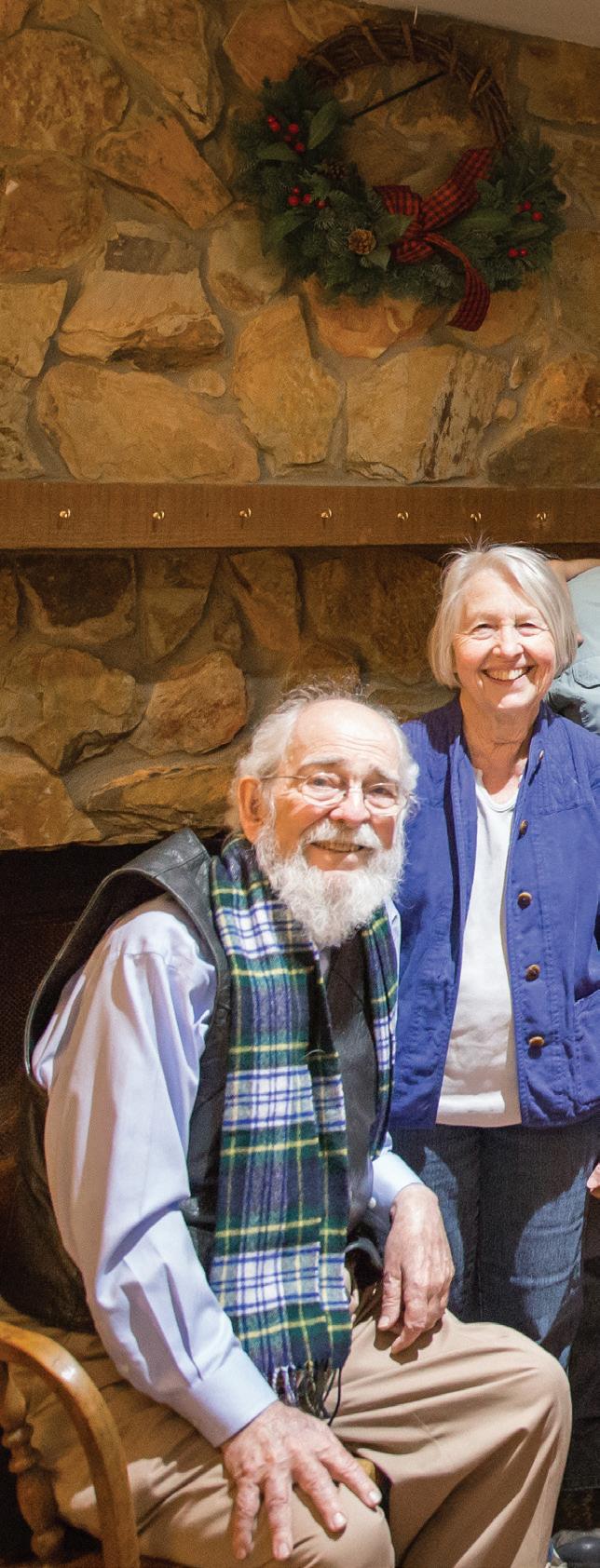
For a man with a PhD, you would think he would expect his children to be highly educated. But one of the great things about dad is that he didn’t. He expected us to be kind, to be compassionate, to be nice and to treat people with respect. But that was it.”
– Joanna StrangeUniversity in northern New Jersey, balancing his studies with raising the children while Carolyn worked. He eventually earned his New Testament doctorate in 1970, while also pursuing his passion for learning new languages.
But it was a job posting one year earlier — about a dig in Gezer, associated in the Hebrew Bible with Joshua and Solomon — that changed everything.
• • •
Strange had no money to make the trip but he was instantly drawn to the idea of being part of a biblical excavation. He contacted the professor in charge and asked if he could join the team as supervisor — despite never having been on a dig in his life. The answer was a resounding “no.”
“But two weeks later, the professor called and said, ‘Can you come over here, one of my supervisors just quit,’” Carolyn recalls.
With that, Strange was on the team and spent much of the 1969 digging season excavating at Gezer. He was hooked, and the next year received a fellowship from the W.F. Albright Institute of Archaeological Research in Jerusalem. Carolyn and the older two children, Mary Elizabeth, then 9, and James, 7, joined him as he worked on three digs in 1970-71.
“He never said that he thought God gave him teaching, but he did say he thought God gave him archaeology,” Carolyn says. “It was hard work — not just physical but with funding, personnel and bringing along the family.”
Indeed, the digs were full family affairs, involving all the children and other family members, too. During a span
Front row left to right: Jim Strange (seated), Ian Burke (green shirt), Mary Elizabeth Strange, Ashu Bertaut-Strange. Second row left to right: Carolyn Strange, Nathaniel Burke (red shirt), Katherine Strange Burke, Joanna Strange, Leonardo Tischio- Strange, Jonathan Tischio. Third row left to right: James Riley Strange, Laura Strange, Aaron Burke, James M. Bertaut-Strange, Christopher Bertaut. Not pictured: Sarah and Lawrence Pugliese, daughter and sonin-law of James and Laura Strange.

from 1970-81, he collaborated with a biblical scholar and archaeologist from Duke University, Eric Myers, excavating four synagogues in the Upper Galilee. Meanwhile, Strange dug in such places as Judea, Samaria and Sepphoris, just a few miles from Jesus’ birthplace of Nazareth, where he found large buildings, aqueducts and an outdoor theater, and continued his study of synagogues. Some of his other finds — including pottery, coins and mosaics — were displayed at the Smithsonian Institution.
“I remember from the time I was 12 and Joanna was 7, and my parents started bringing us every summer,” says Katherine, an archaeologist and lecturer at UCLA. “Summer vacation was, ‘We’re not going to Disney; we’re going to Israel and excavate,’ so I worked in a trench and learned about archaeology. My dad had very devoted volunteers, including his sister, who came for many years. And he was great about treating his kids like grown-ups, saying things like, ‘Oh, you have such a good archaeological eye, Katherine.’ He was really pleased to have us along and show us what he loved to do so much.”
Strange’s love for his work took a new direction when he was hired at USF in 1972, after teaching high school English for a year in New Jersey. He was one of the first hires in the religious studies department and taught for the next 46 years. At one point, he served as dean of the college (then called Arts and Letters) and helped build the department into a shining star of the university.
“USF was largely a teaching institution when he arrived, and before the university’s meteoric ascent as a research institution, he brought serious research credibility,” DeJonge says. “He would definitely have been ahead of his time.”
Though he demanded the best from his students, he felt a genuine love for them, Carolyn says. And there is no doubt they loved the professor so easy to spot with his Aussie bushman’s hat, leather vest, a Santa Claus-like beard, and his habit of handing cash to students who needed a little helping hand. After his death at age 80 four years ago, his family published a booklet that included many tributes and remembrances from students through the years. One, from Jesse Bonds read:

“Dr. Strange was my mentor. He inspired me during my undergraduate years at USF when I happened to wander over to Cooper Hall one day, an aimless junior looking for purpose,
and asked him to help me focus on something meaningful. Later on, in an Albertson’s parking lot of all places, he encouraged me to apply for the graduate program in religious studies. And further down the road, he served on my doctoral committee. He was always there. He’s the reason I teach. He was an exceptional man; an everyman.”
Bonds, Life Member, earned USF bachelor’s degrees in 1973 and ’77, an MA in ’83, and a PhD in ’95.
His impact on his children was just as profound, as Joanna describes: “For a man with a PhD, you would think that he would expect his children to be highly educated. But one of the great things about Dad is that he didn’t. He expected us to be kind, to be compassionate, to be nice, and to treat people with respect. But that was it.”
Joanna also remembers his innate sense of fun, whether it was his frequent cornball puns to put his students at ease or bringing her at age 8 to USF on Halloween in full costume. “I was a roller-skating waitress and I remember just rolling up and down the hallways of Cooper Hall handing out candy,” she says. “He took all of us to school at different times. I used to just sit under his desk and play with things when he was dean and holding a meeting.”
On the serious side, Strange wasn’t driven to prove anything in the Bible. He simply wanted to explore where Jesus and others lived their lives, and his preeminence led to lectures all over the world. He was interviewed by ABC’s Peter Jennings about historical aspects of Jesus and the archeology of Israel. He was also featured on the topic in National Geographic and numerous TV specials.
“Dad wanted to imagine Jesus and his disciples being at the same sites we could see from the hill of Sepphoris, looking out on the valleys,” Katherine explains. “He wanted to understand what daily life would have been like for Jesus and his followers.”
His family is working today on a project of its own: publishing Strange’s findings from Sepphoris and many of his other excavations. Meanwhile, they have given a gift that will bolster USF’s religious studies department long into the future — a fitting way to honor the professor who brought the program, and the past, to life.
Left: Jim Strange with his wife of 57 years, Carolyn.
Below: Strange thought of his work as giving a voice to the people whose belongings he excavated.


IN AUGUST, THE MUMA COLLEGE OF BUSINESS School of Risk Management and Insurance got a new name thanks to a $5.2 million commitment from BRP Group Inc., a Tampa-based independent insurance distribution firm, and the Baldwin family. The gift, the largest in USF’s Sarasota-Manatee campus history, supports educational programs in

TAMPA ELECTRIC MADE A $5 MILLION investment in USF to fund research, education and innovation that aims to reduce carbon and improve the environment. Announced in August, the gift will create an endowed fund to support the Clean Energy Research Center in USF’s College of Engineering. It was the largest single outright gift to the college at that time. Over the years, the university has worked with TECO on other clean-energy solutions, such as carbon sequestration, electric vehicles, smart grid technology and solar array efficiency.
“This partnership is a key pillar in our vision to achieve net-zero carbon emissions by 2050,” said Archie Collins, president and CEO of Tampa Electric. “We have made great progress … But our vision of a net-zero future will not be an easy journey. The path will undoubtedly include emerging technologies and innovations. We feel a responsibility to help fund and spur that innovation, and what better partner than the talented team at USF.”
Go to usf.to/CERC for more
the risk and insurance fields at what is now the Baldwin Risk Partners School of Risk Management and Insurance.
“We’re proud to support the risk management discipline through this partnership to develop a world-class educational program,” said Lowry Baldwin, chairman and co-founder of BRP Group. “This investment will broaden awareness of the diversity of career options available within this field of study and fuel the next generation of industry leaders.”
Go to usf.to/BRP for more
CANDICE L. SAUNDERS KNEW she wanted to make a difference in the lives of others.
That passion, combined with her aptitude for science, led to her decision to take a chance on a fledgling nursing college in Florida.
She had completed a pre-nursing program at a community college in Fort Lauderdale. Saunders liked the idea of being part of something new, and while it meant living away from home for the first time, she moved to Tampa and enrolled in USF’s new College of Nursing.
Saunders joined 49 other students in that charter class in 1973. There were 10 faculty members and one staff member. Classes were held in double-wide trailers.
“It was very energizing,” recalls Saunders, ’75, now a member of the college’s board of advisors and the president/CEO of Wellstar Health System in Marietta, Georgia. “When you’re creating something together, you learn a lot about flexibility and adaptation, which are important in nursing. I was part of an important new program and there were very high expectations about its future.”
The college long ago abandoned those trailers for permanent facilities. And as it approaches its 50th anniversary in 2023, the college is charting an ambitious course for its future — also with high expectations about the contributions it will make to health care.
Topping the list of priorities is an all-out effort to expand undergraduate education to help address the nursing shortage crisis. This year’s state budget includes
College accredited by the Florida Board of Nursing, nine faculty appointed
Gwendoline R. MacDonald appointed dean
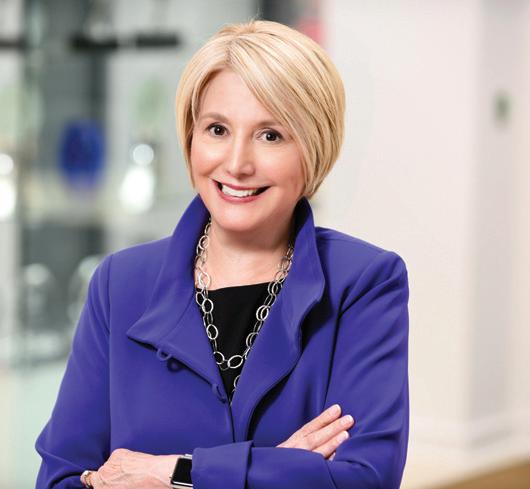
$33 million to expand the college’s facilities on the Tampa campus to create additional classrooms and state-ofthe-art simulation space. It also includes $6.9 million in recurring funding that will enable the college to increase its current 65-member faculty by nearly 50 percent and add 30 staff members.
Construction, which will take place in two phases, will begin in spring 2023. The first phase will be completed in time for the start of the spring 2024 semester; phase two
Five mobile classrooms, 4,000 square feet, comprise the college
In June 1975, 41 students earned their bachelor’s degree in nursing. Students completed clinical hours at Tampa General Hospital, Hillsborough County Hospital, Tampa Veterans Hospital, or with one clinical affiliate. In this class, 8 percent were male, and 5 percent reported ethnic diversity.
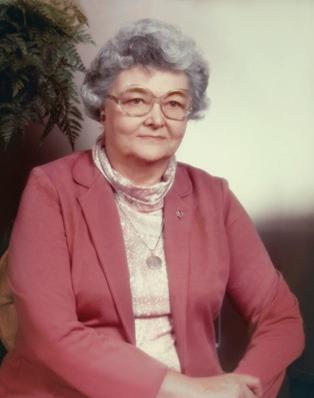
USF’s nursing program began in five portable classrooms in 1975. Today, the College of Nursing offers more than eight opportunities on three campuses. Pictured at right, students in the class of ’23 walk and talk with nursing advisor Maikelyn Lopez, ’10, in the atrium of the college in Tampa.
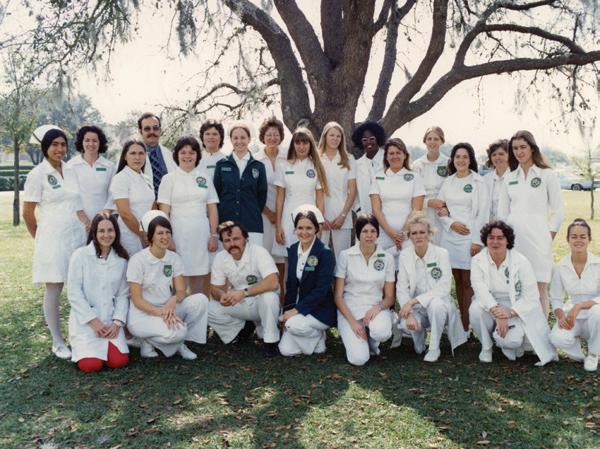
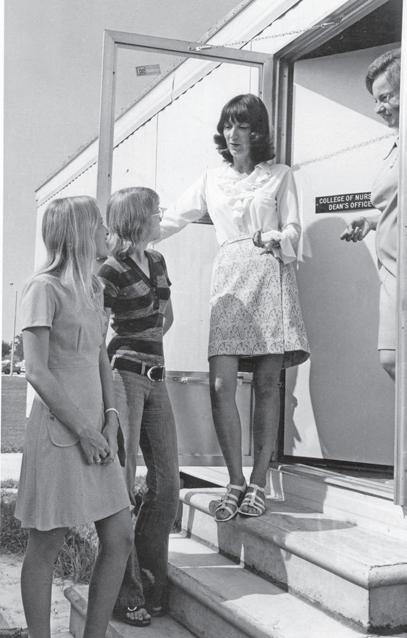
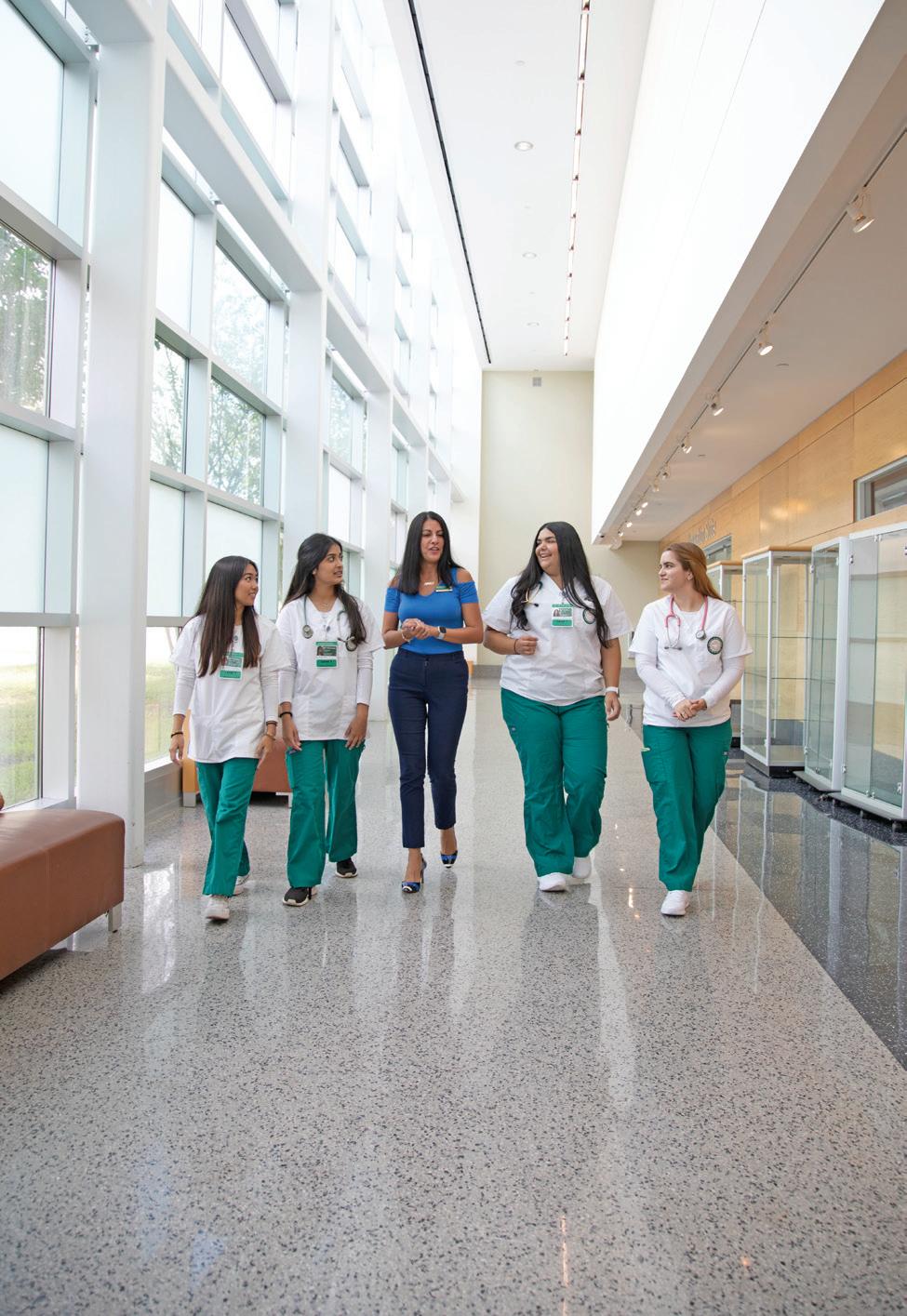
Office of Nursing Research established 1996
State Board of Regents approves the planning for the college’s doctoral program
Doctoral program implemented with admission of seven students to charter class
is expected to be completed by the end of the fall 2024 semester.
The expansion means that by 2028, the college expects to produce more than 750 undergraduate nurses each year, a roughly 200 percent increase.
“Up until the pandemic, Florida was slated to have an excess of nurses,” says Usha Menon, dean of the college and senior associate vice president of USF Health. “This just really hit us hard.”
Menon noted that at the height of the pandemic, health care systems in the Tampa Bay region were so short-staffed they had to employ hundreds of travel nurses — nurses who work for independent staffing agencies. Although some of the immediate needs have been resolved, Menon says, “We are balanced on the edge of a precipice, with workforce development still not meeting the demand for nurses across Florida.”
The college’s expansion could not come at a more critical time. A 2021 report by the Florida Hospital Association and Safety Net Hospitals estimated the state will face a shortage of more than 59,000 nurses by 2035.
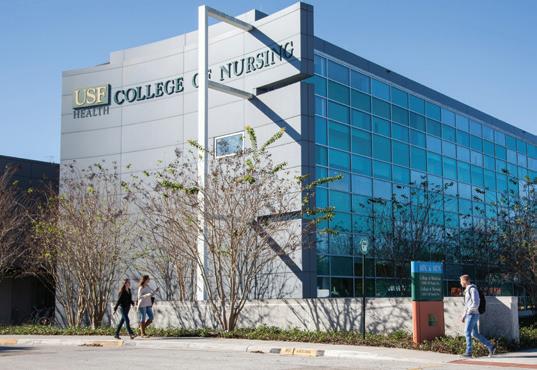
Along with its emphasis on growing the nursing workforce, the college also is focusing on partnerships and outreach. It has partnered with the Salvation Army of Tampa Bay to offer nursing care to homeless individuals who have been discharged from hospitals. Working with Port Tampa Bay and the Tampa Port Ministries, the college provides on-site physical care to global seafarers.
Early next year, the college expects to take delivery of a mobile health unit that will increase access to health care in medically underserved areas. The 38-foot van, staffed by two advanced practice registered nurses, a patient care coordinator, faculty preceptor and students, will serve Port Tampa Bay, Sulphur Springs, Tampa Heights, Wimauma and south St. Petersburg.
“My heart and soul lie with health disparities,” says Menon, the principal investigator for the $3.85 million federal grant supporting the initiative. “Anything we do in nursing should be bi-directional. It’s important that we pro-
duce nurses. But it’s also important to ask how we can meet the needs of the community and what can we learn from the richness of those communities.”
Meeting the needs of the community also is at the heart of once-a-semester meetings the college hosts for chief nursing officers and other officials from 12 Tampa Bay health care systems. Menon calls it a “mastermind group.”
“It’s not about competition,” she says. “It’s about using collective ambition to address issues. How can we share resources and best practices? From our perspective as the leading academic institution in this area, what can we do to better prepare our students?”
Sheila Ferrall, MS ’90, executive director of nursing practice, education and clinical effectiveness at Moffitt Cancer Center, appreciates the priority the college places on forming partnerships with area health care systems.
“It helps build a sense of community among the nursing leaders in the area,” she says. “We learn what people are doing in other organizations and about how those approaches might work for us.”
During visits to her alma mater, Saunders says she has been inspired by the dedication and awareness of today’s nursing students. As they move into their careers, they will play important roles in the evolution of the profession.
“Over the years, I saw a separation between treating the mental health needs of patients and treating their physical needs,” she says. “We are realizing now that you have to care for the whole person. If you have a mental health problem, it affects your physical health. If you have a physical health issue, it has mental health impacts.”
Like Menon, Saunders emphasizes the importance of reducing health disparities. She believes nurses can play a much larger role in shaping health policy.
“We can do a lot more to ensure we don’t have disparities in health care,” she says. “As we look at some of the biases that may exist within some of our traditional models, I think nurses play a key role in uncovering them and helping people to see things differently. Nursing plays an advocacy role not only for patients but for the community.”
USF College of Nursing continues to add state-of-the-art simulation equipment through undergraduate expansion plan. At right: Nursing students Dianna Ramos-Hernandez and Gabriela Gonzalez practice oxygen therapy in the simulation lab on the Tampa campus.
Usha Menon joined USF Health in September 2018 as vice dean of research for the College of Nursing
Menon named dean and senior associate vice president for USF Health
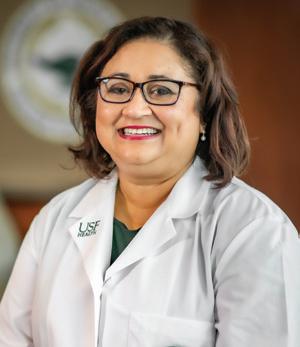
At the beginning of June, Florida Gov. Ron DeSantis approved $33 million in the FY 2022-23 budget for the USF Health College of Nursing to expand its infrastructure and current footprint on USF’s Tampa campus with enhanced simulation training space. In addition, DeSantis approved $6.9 million in recurring funding for the college to hire faculty and staff who will support the expansion and student success.
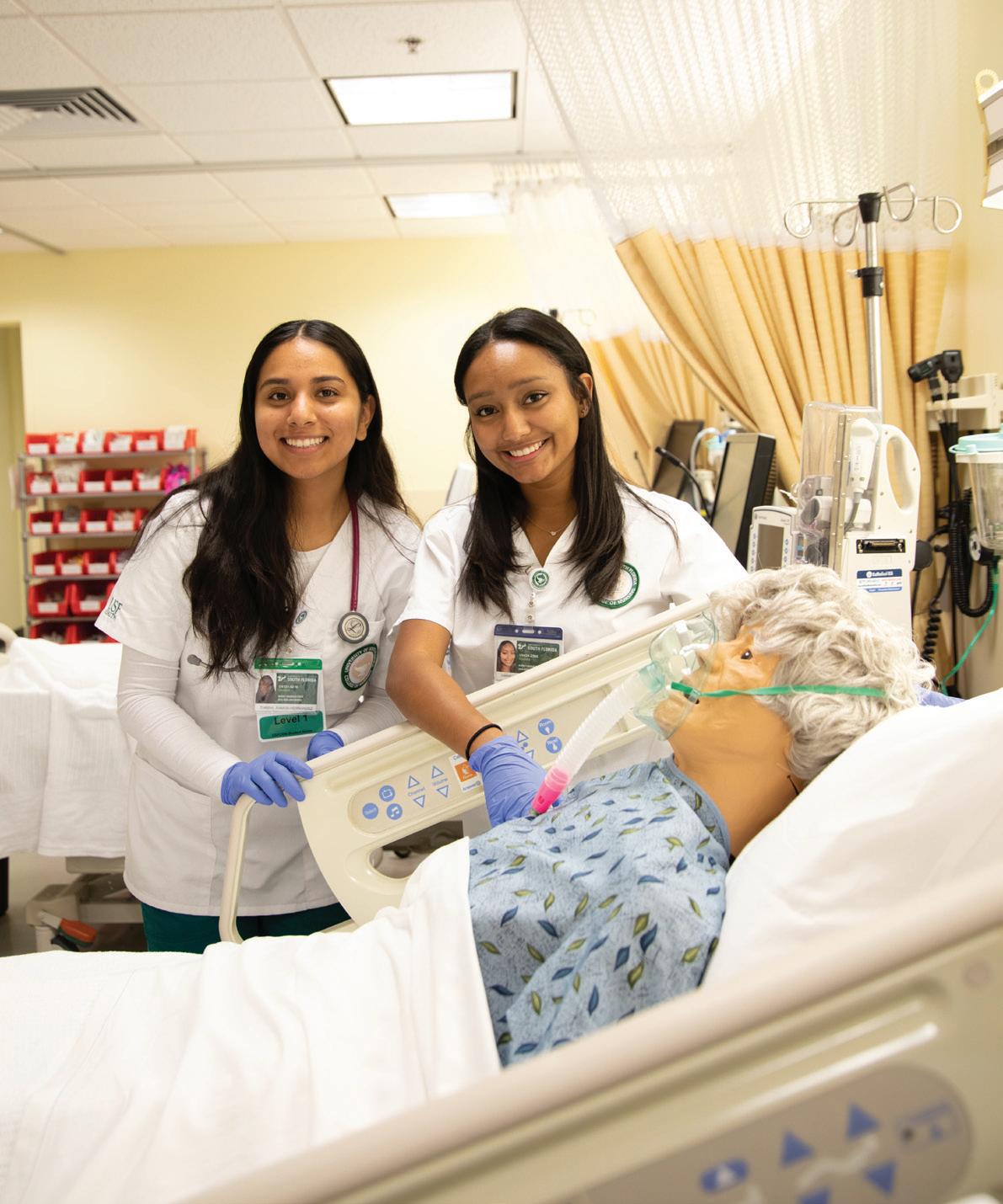
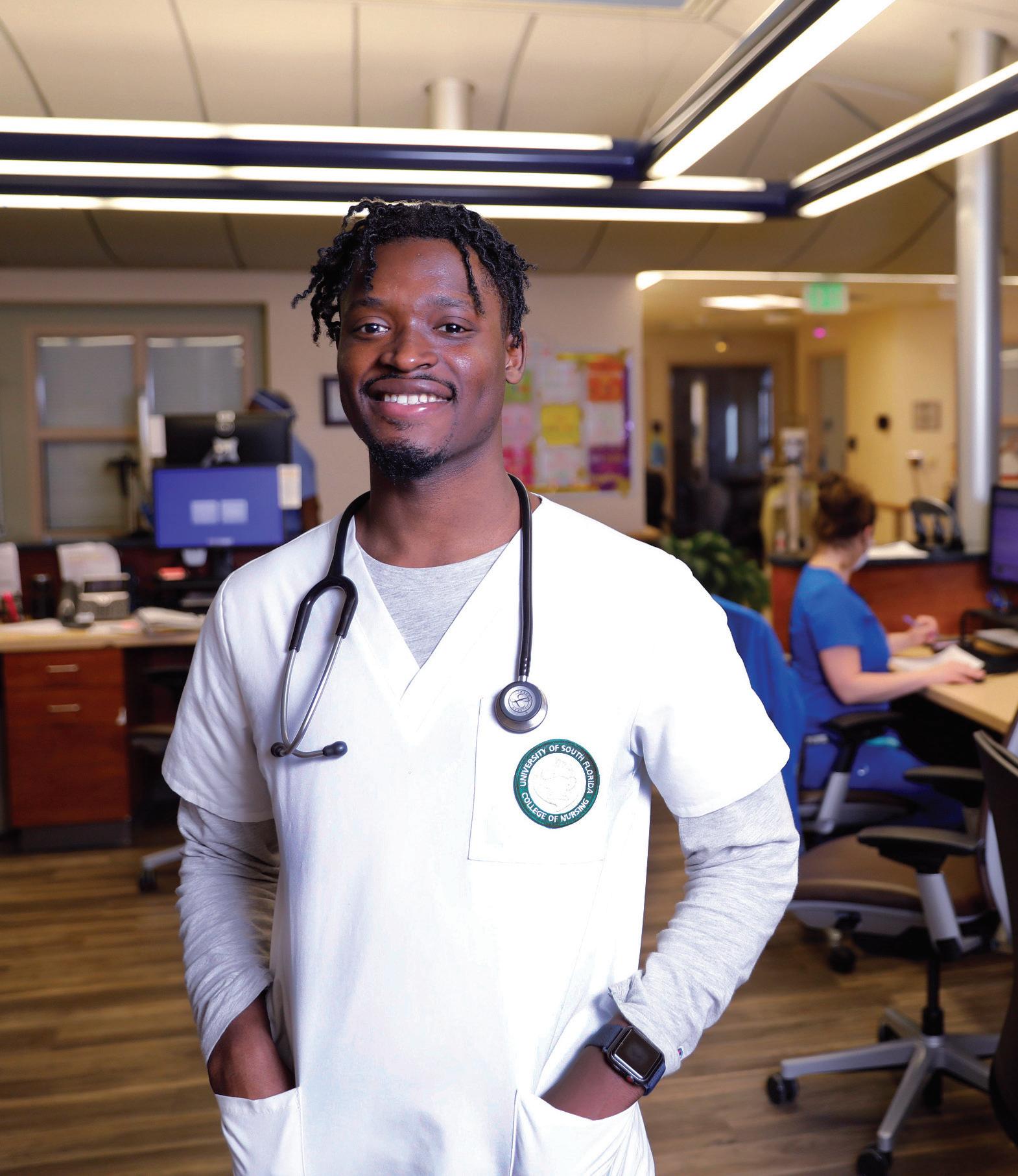
thought they knew where their careers were headed.
Mills, who earned a bachelor’s degree in health care administration during his seven years of service in the Air Force, planned to become a physician assistant. Saint-Fleur, with a bachelor’s degree in biology, was working in a lab as he pursued a career as a researcher. And Savolidis, with a bachelor’s degree in elementary education, was teaching second grade.
All three realized their passions lay elsewhere, and their very different paths converged at the USF Health College of Nursing. This month, they are earning their bachelor’s degree in nursing after completing the college’s accelerated second-degree pathway. Designed for students who have a non-nursing bachelor’s degree, the highly competitive program offers an accelerated curriculum and is completed in four consecutive semesters.
During their last semester, Mills, Savolidis and Saint-Fleur participated in the college’s Preceptorship-to-Hire program — P2H for short. The college’s partnership with Sarasota Memorial Hospital, Moffitt Cancer Center and Tampa General Hospital enables the students to transition from college to professional practice before they sit for the nursing licensure exam. Participating students may be offered employment opportunities after successfully completing the training.
Annmarie Chavarria, senior vice president and chief nursing officer at Tampa General, says the program helps nursing students feel more prepared for practice and gives them a competitive advantage in the job market. The hospital benefits by being able to hire nurses who are more clinically prepared and who are a good fit for the institution.
“The USF College of Nursing does an outstanding job preparing students academically,” Chavarria says. “But, it is up to the clinical sites and clinical partners to be sure these students have enough real-life practice to feel confident when they graduate.”
Mills, whose background includes serving as a paramedic and a firefighter, is medically retired from the Air Force. He sustained multiple injuries in a 2018 parachuting accident during training and has endured numerous surgeries and extensive rehabilitation. His doctors and physician assistants “were phenomenal,” he says.
“But, it was the nurses who made me feel like a human,” Mills says. “They were there every day, encouraging me.”
Much as he appreciates the expertise of physicians, he sees nursing as the foun-


Aaron Mills with his preceptor, registered nurse Pamela Freely, at Tampa General Hospital’s Brandon Healthplex.
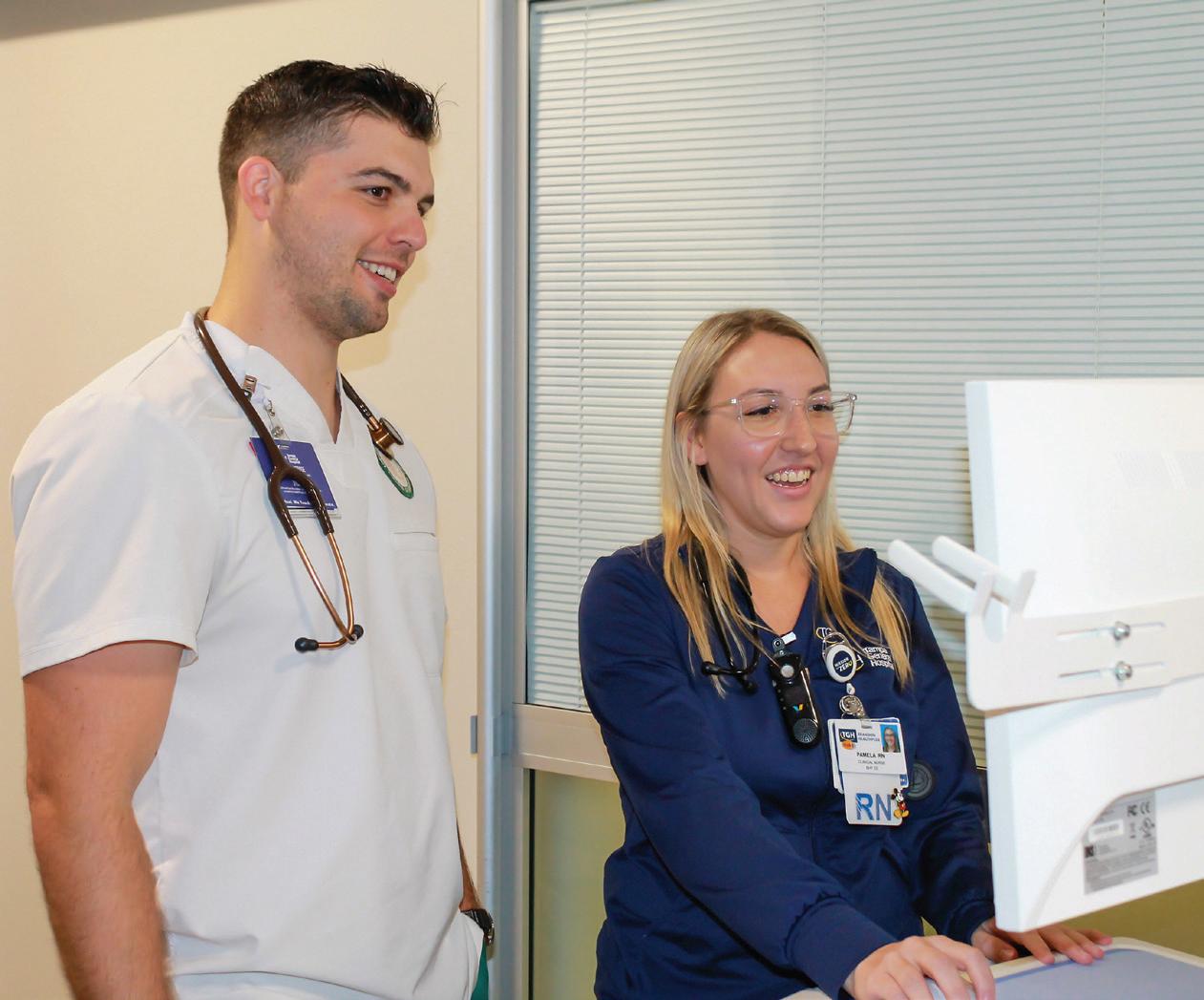
with her preceptor, registered nurse Adria Vincent, at Sarasota Memorial Hospital.
dation of a career devoted to health care.
“I want to be more involved with patient care as far as getting to know the patient beyond the clinical understanding and treatment planning,” he says.
He also hopes to serve as an example. According to the U.S. Bureau of Labor Statistics, men made up 12% of the nursing workforce in 2019.
“There’s a need for people to see that there are capable men who are willing to take care of others,” Mills says.
In the P2H program, Mills worked in the emergency department at Tampa General’s Brandon Healthplex. That was by design: “I was already familiar with the ER because of my paramedic experience and I enjoy the symphony of the chaos that happens there.” He plans to pursue a doctorate in nursing practice at USF beginning next fall.
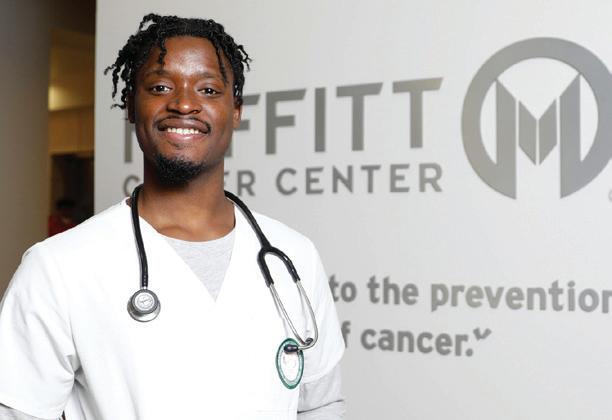
A different kind of medical crisis led Saint-Fleur to switch his career trajectory from scientific research to nursing. In 2020, his twins, Josiah and Janiah, were born at 27 weeks.
“They had to be on life support and I spent almost four months in the hospital’s neo-natal intensive care unit,” he says. “I didn’t know how to be available to them, how to care for them. Those were dark times for me. There was not
much I could do and it feels terrible to not be able to do anything for your own children. The nurses really helped me through that time.”
Which got him thinking.
“I realized that I was able to get through this really rough time in my life thanks to the nurses who were constantly keeping me updated, who were teaching me how I could care for my kids who couldn’t help themselves,” Saint-Fleur recalls. “That inspired me to want to give back. Maybe somebody else in that same situation could benefit from my knowledge as a nurse, my being able to teach them and support them.”
He has balanced his responsibility to his now-healthy
twins with the demands of his nursing education, including this fall’s participation in the P2H program at Moffitt Cancer Center.
Savolidis, who says she has “a heart for helping others,” knew after her first year of teaching second grade that she needed to go in a different direction. It was during her second year of teaching that she started exploring other options, concluding that nursing would be more fulfilling. She began taking nursing prerequisite courses during her third and final year in the second-grade classroom.
“Teaching those little guys filled my heart and soul with so much goodness, but I knew it wasn’t a place for me personally, where I could take my career to the next level,” she says. “The options are more limited in education. In the field of nursing, and in the medical field in general, you have a lot of career paths that you could take. There’s just more flexibility within this field that simply doesn’t exist in a majority of careers. That was a big draw, in addition to the fact that I just really, really love to help people and I want to leave a legacy.”
Savolidis, who participated in the P2H program at Sarasota Memorial Hospital, envisions a career devoted to women’s health, particularly labor and delivery. She believes her background in education will be beneficial.
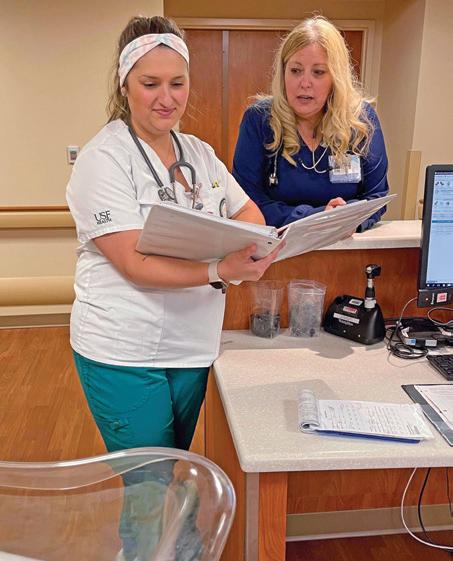
“It’s the ability to put things in layman’s terms, to make the patient feel more comfortable, to make them feel like they have control and an understanding of their care,” she says.
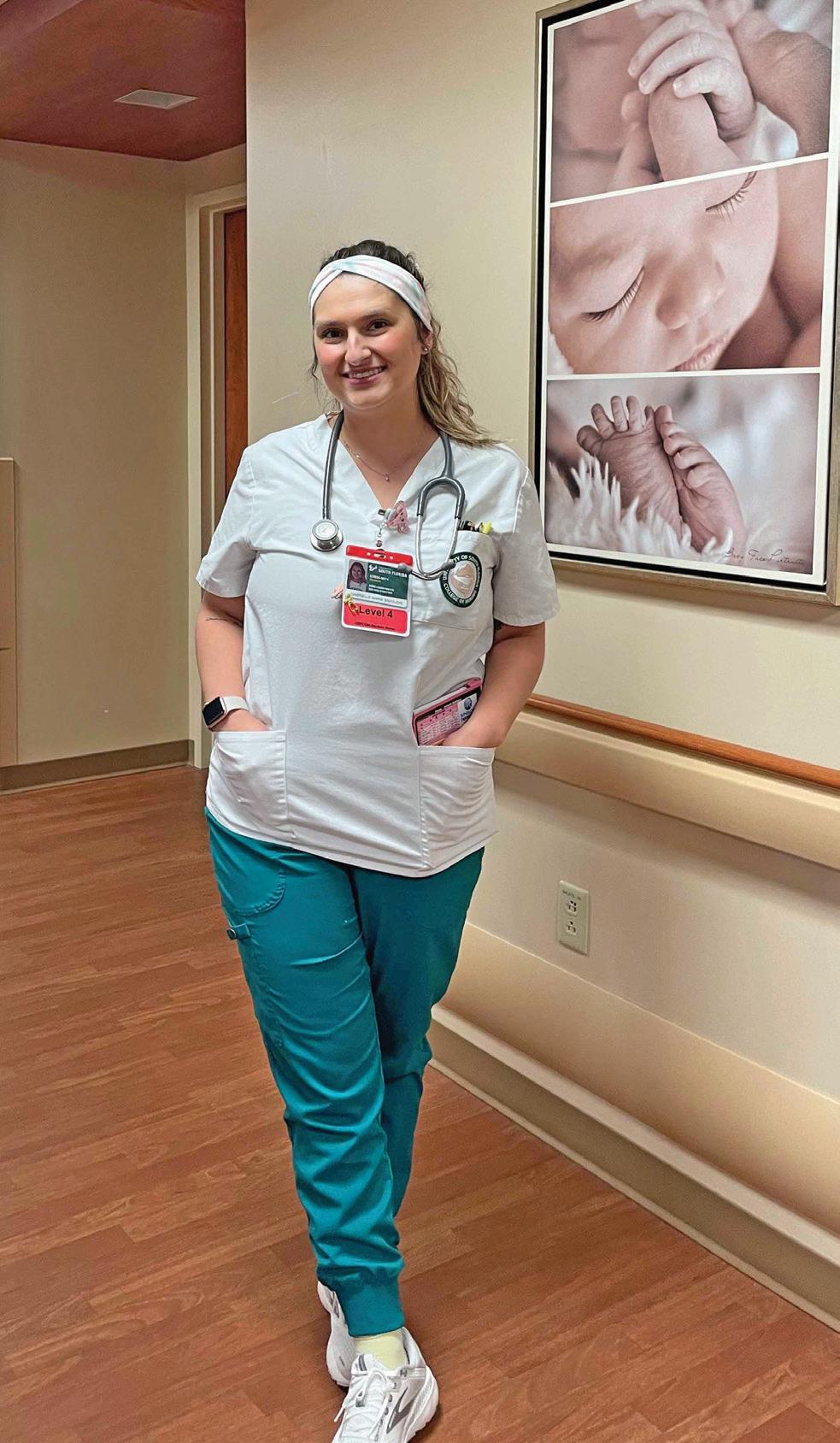
AS COVID-19 SWEPT ACROSS THE U.S. IN 2020, one of the recurring themes — still prevalent today — is that nurses need support for their own well-being so they can continue to effectively care for patients and families.
“Caring for patients with COVID was very taxing,” says Lisa Baumgardner, associate chief nursing officer at Sarasota Memorial Hospital. “Nurses were experiencing the stresses that society was experiencing, such as uncertainty, fear of illness for themselves and their family; some had family members who lost their job, and nurses experienced much more death at work than in pre-COVID times.”
For most nurses, the pandemic didn’t create wellness issues, but it did exacerbate them. A 2017 American Nurses Association survey found that 68 percent of nurses put their patients’ health, safety and wellness before their own.
“It’s not that nurses lack the knowledge,” says Rayna Letourneau, an assistant professor in USF’s College of Nursing and interim executive director of the Florida Center for Nursing. “We know what it takes to be healthy, we promote health and wellness, but we don’t necessarily practice it.”
If the stressors begin to overwhelm nurses and negatively impact their well-being, they may choose to leave the profession.
“We have the opportunity and the expertise to make improvements and create healthy work environments, which allow nurses and nursing students to flourish and thrive in their careers,” Letourneau says.
With support from philanthropists David Kotok and Christine Schlesinger, the Gulf Coast Community Foundation, Sarasota Memorial Healthcare Foundation and the USF Foundation, the college and Sarasota Memorial came together to find ways to support clinical nurses.
“As we talked, it became clear that we wanted to place a higher value on the wellness of nurses,” Baumgardner says. “We teach nurses how to care for others but not how to care for themselves and it’s time to change that.”
The result was a pilot initiative, Excellence in Nursing During COVID-19 and Beyond, through the College of Nursing’s Office of WIRES (Wellness, Innovation, Resources, Education and Support).
The initiative is designed to promote personal wellbeing and retention of nurses in the profession. There are two components. One supports the transition of nursing students from academia to practice. The other is the WellBeing Coaching program, which supports nursing students and practicing clinical nurses in developing healthpromoting strategies.
“The Well-Being Coaching program includes didactic content delivered through an online learning portal and small-group coaching led by board-certified wellness coaches,” Baumgardner says. “Based on the science of positive psychology, participants explore concepts like gratitude, purpose and self-compassion while discussing tangible ways to apply these concepts to everyday life with
the coaches as their guide.”
According to Letourneau, the coaching strategies may benefit other health care professionals.
“A lot of the well-being problems that we experience among nurses are also experienced with our other health colleagues,” says Letourneau, who also is the founding director of the Office of WIRES. “Physicians, respiratory therapists, pharmacists and many others also experience similar issues. Nursing has an opportunity to really be the leader in studying the issues and creating programs to rectify some of these problems.”
- TOM WOOLF | USF News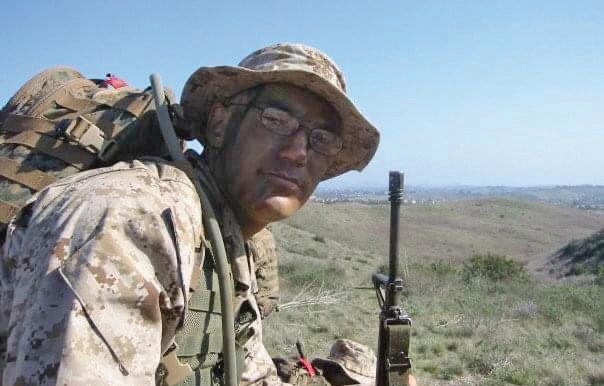
DAN REDSHAW’S MILITARY EXPERIENCE prepared him well for two demanding degree programs offered through USF’s College of Nursing. After completing his service as a Navy corpsman, Redshaw earned a bachelor’s degree through USF’s College of Public Health in 2014. He then became one of 10 active-duty and veteran students to enroll in the inaugural cohort of the Veteran to Bachelor of Science in Nursing V-CARE program at USF, earning that degree in 2015.
The program was created in 2013 with grant support from the Health Resources and Services Administration of the U.S. Department of Health and Human Services. The USF College of Nursing was one of nine inaugural grant recipients that later expanded to over 30 schools across the country.
The V-CARE program was created for service members who have completed training as Army or Air Force medics and Navy corpsmen.
“This pathway is a highly selective program for military medics and corpsmen that builds upon their military health care education, training and experience, and provides a more efficient pathway and education ladder from veteran, to student, to baccalaureate-prepared nursing professional,” says Alicia Rossiter, MS ’96 and DNP ’15, who co-led the development of the program at USF and served as the director.
Redshaw enlisted in the Navy’s National Call to Service program, committing to two years of active duty and two years of active reserve. He began his military journey stationed in Great Lakes, Illinois, where he completed basic training and attended hospital corpsman school. He then was stationed in Camp Pendleton, California, to complete Fleet Marine Force training and served as a field medical service technician with the 1st Marine Logistics Group before returning to his hometown of Rochester, New York, to complete his reserve duty.
“Dan’s experience as a medic fueled his passion to become a nurse and provided the foundation for his successful transition into the role of baccalaureate-prepared nurse,” Rossiter says.
“USF did a great job preparing us,” Redshaw says. “Our exposure and experience made it a seamless transition.”
After earning his bachelor’s degree in nursing, he began working in Tampa General Hospital’s neuroscience intensive care unit as a critical care bedside nurse.
“The population of brain trauma patients is difficult because they look physically well, but they may not recov-
er,” Redshaw says. And although Redshaw enjoyed caring for these patients, he began to explore other opportunities after hearing about anesthesia in nursing care.
In August 2018, Redshaw applied for USF’s doctor of nursing practice in nurse anesthesiology program and connected with program director Michelle Canale, ’00 and DNP ’15, Life Member.
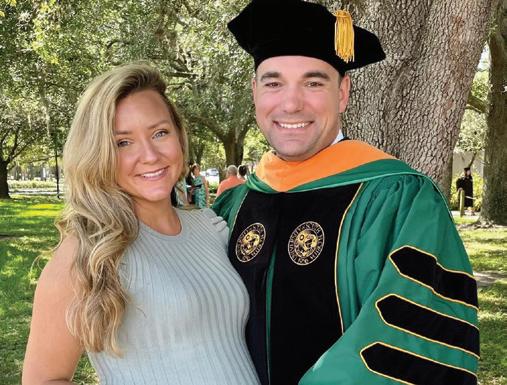
“He demonstrated incredible self-discipline, internal motivation and resiliency, which undoubtedly served him well in his military career as well,” Canale says. “He was the kind of student that any nurse anesthesiology program director would want to have. He has become an amazing CRNA and we are so very proud of him!”
While in the program, Redshaw continued at Tampa General Hospital, this time in the operating room, where he began his clinical rotation at the beginning of the coronavirus pandemic. Here, Redshaw learned the resiliency required to work in the nursing field while adjusting to virtual education and care settings, as well as a shortage of personal protective equipment.
He graduated from the nurse anesthesiology program last May and began his career as a certified registered nurse anesthetist at Tampa General Hospital in September. Through the program, he also met his wife, Christine ’20, who worked alongside Redshaw at Tampa General Hospital. They welcomed their first baby in July.
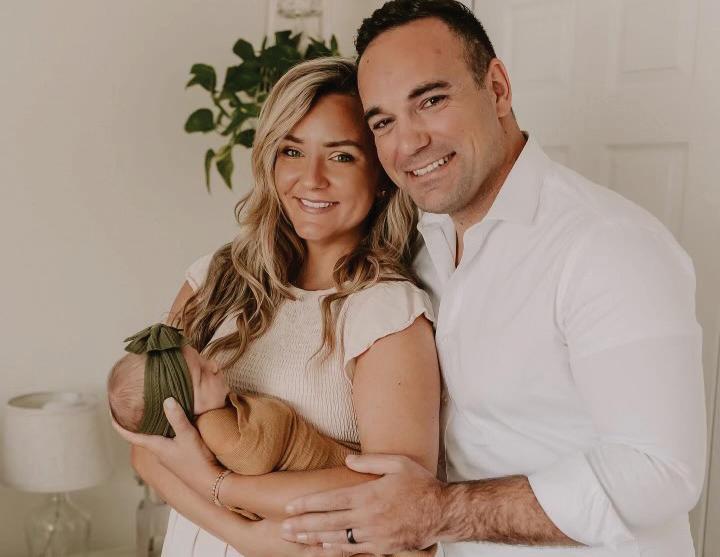
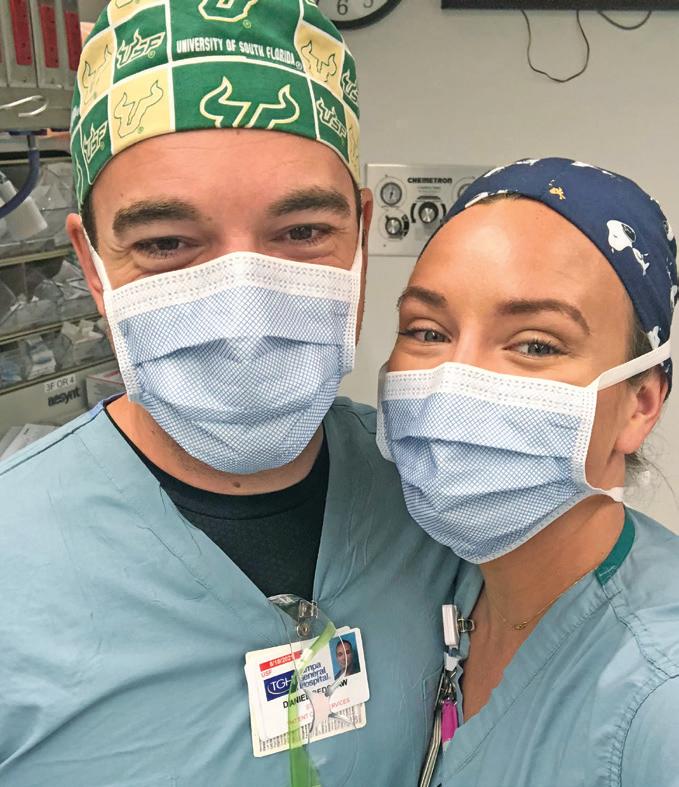
“Set your eyes on your goal, and don’t give up until you get there,” Redshaw says.
- AUDREY HOLTZMAN | College of NursingWHILE THE USF HEALTH College of Nursing works to expand its education program to grow the nursing workforce, it also is making great strides in scaling up its research program.
The research arm of the college is keeping pace through numerous efforts, including successfully recruiting faculty who have promising and impactful research underway, building new infrastructure to provide faculty the resources needed for today’s scientific demands, and threading the power of critical thinking and scientific inquiry throughout the curriculum so students will be inspired to take research into their careers.
“This is a very exciting time for realizing our research aspirations, as we now have an incredible opportunity to hire faculty who can both educate a growing number of Bachelor of Science in nursing majors and expand our research impact — all of which will help ensure quality care for Floridians and beyond well into the future,” says Stephanie Marhefka, senior associate dean of research for the college.
Research funding is an integral indicator of a top nursing program, and our faculty researchers are already conducting cutting-edge science with realworld implications for patients, nurses, nursing students and the greater communities around us.”
– Stephanie MarhefkaMarhefka has been with USF Health since 2007 and was named the head of research in June 2021 by Usha Menon, dean of the College of Nursing and senior associate vice president for USF Health.
A researcher in her own right, Marhefka brings a strong foundation to her role, having published work on social
determinants of health, improving HIV-related care and treatment, and promoting breastfeeding-friendly child-care environments. Currently, she holds a National Cancer Institute R01 grant as a behavioral scientist and mixed-methods researcher.
Marhefka’s primary charge in this role is to attract more grants and researchers and help the college stand out in interdisciplinary and nursing science. Both efforts will benefit students, the college and USF, which can ultimately help the college rise in rankings. Even more importantly, these efforts will help make life better for our communities through innovation, evidenced-based care models and implementation science.
“Research funding is an integral indicator of a top nursing program, and our faculty researchers are already conducting cutting-edge science with real-world implications for patients, nurses, nursing students and the greater communities around us,” she says. “Our goal is to grow that work, build and support opportunities for our faculty to gain more grant funding and increase our footprint on the national stage of high-impact nursing research.”
One of the first endeavors put in place by Menon prior to Marhefka joining the college was a framework the college could build on as it expands its research. This framework has four pillars:
• Precision Science: Precision science considers humans’ physical and social environments and how those factors influence the risk, subsequent progression and response to treatment of serious diseases. Research topics can include symptom self-management among patients and informal caregivers (for example, cardiovascular disease, COPD, cancer, critical care, Type 1 and 2 diabetes), as well as microbiology, microbiome and psychoneuroimmunology.
• Data Systems Science: Through data and systems science, as well as implementation science, faculty researchers develop and test data-driven solutions to health care
issues. Focus areas include data mining and predictive analyses to identify and test factors that lead to improved patient experiences and better health outcomes.
• Health Determinants Science: Complex circumstances, complex interactions and feedback loops call for complex solutions for health equity, special and vulnerable populations, healthy aging, health promotion and social factors (community, environmental). Faculty research seeks to advance the understanding of this multi-factor area and its relationships to health outcomes.
• Implementation Science: As effective evidence-based strategies are widely available, the need to study the translation of findings to real-world settings has become imperative. Faculty study the science of dissemination (distribution of an intervention to intended settings) and
implementation (process and success of integrating interventions into practice settings).
While already secure in a reputation for research in cancer support and prevention, cardiovascular disease, HIV and microbiome in newborns and infants, the college aims to greatly increase its scope and depth of scientific endeavors, Marhefka says.
“As we expand our research faculty, we are especially enthusiastic about growing in our work related to chronic condition prevention and treatment, which includes work at the bedside, the clinic and within other community settings, and often incorporates implementation science to help ensure our work is primed for translation into real-world practice,” she says. “Additionally, many of our projects include efforts to increase health equity and inclusion of groups that tend to be under-represented in research studies.”

Successful nurse scientists have common backgrounds that are rich in opportunities for developing and conducting research projects, strong mentorship and access to both coursework and training that exposes them to the world of research inquiry.
Marhefka says the USF Health College of Nursing is active in supporting each of those components for its students at all degree levels.
“This college offers even more than a great place for nursing students to further their careers,” she says. “We are also driven to provide research opportunities for every USF Health nursing student. This not only inspires many to conduct research across their careers and opens opportunities for trainees to someday become the nurse faculty who will train future generations, it also teaches important skills for inquiry, critical thinking and parsing out the evidence-based findings that will establish the standard of care for their patients.”
“Our scientific vision is that the USF Health College of Nursing will be the home of trailblazing nurse scientists as well as researchers from complementary disciplines who work together synergistically and with others across the university and the world to improve patient care and
reduce health inequities,” Marhefka says. “Working in transdisciplinary teams is critical, as it enhances our innovations and bolsters the likelihood that our resulting solutions to health-related challenges will be implemented widely for the greater good.”
Undergraduate: All undergraduates have access to research experiences, including experiences within their courses, as research assistants and through conferences and global opportunities. Students at the undergraduate level engage in the research process in three major ways: through an independent study, as part of the USF Honors program thesis, or working with a faculty mentor in a formal or informal research intern position. Independent study with expert faculty provides the opportunity for undergraduates to develop the intellectual stimulation to ask questions and formulate hypotheses in specific areas. Participating on research teams as assistants, students experience the research process, with some becoming published authors of scientific papers. Students who have

enrolled in the USF Judy Genshaft Honors College work closely with a College of Nursing faculty advisor to meet their project goals, which engages them in all aspects of the research process, and have additional opportunities and access to nurse scientists who help them prepare for a career in scientific inquiry.
Graduate: Graduate students have opportunities to participate on faculty research teams and are mentored to develop their own scientific questions. Through their coursework and faculty mentors, graduate students benefit from interdisciplinary experts across USF.
Doctoral: The doctorate in nursing science program prepares nurse scientists to contribute to empirical knowledge and scholarship in nursing science through a range of health-related professional roles and in the context of diverse interdisciplinary teams. Graduates of the program provide leadership to community, professional and scientific organizations while simultaneously teaching the next generations of nurses and innovating throughout the scientific process. The knowledge gained from the research can then be translated into practice.
Unique for nursing programs, the College of Nursing houses a 2,000-square-foot biobehavioral lab that contains state-of-the-art equipment for conducting assays, such as inflammatory markers, stress hormones, proteomics, microbiome and genetics.
Faculty collaborate with colleagues throughout USF Health to pursue a host of research projects related to these chronic conditions, as well as others:
• Cancer: prevention (smoking cessation), screening, care, rehabilitation and survivorship (the college partners with Moffitt Cancer Center)
• Diabetes: self-management and subsequent conditions caused by a disease or injury
• Cardiovascular disease: rehabilitation, selfmanagement and patient-provider communication
• HIV: prevention, treatment and concomitant chronic condition management
• Conditions in infancy: infant gut microbiome and omics, breastmilk as prevention, optimizing outcomes of premature birth/low birthweight, understanding causes of premature birth
• Sleep disorders: mechanisms and treatment
• Chronic pain: mechanisms and treatment
WITH FLORIDA IN THE MIDST of a significant shortage of nurses, the Florida Center for Nursing — now part of USF Health’s College of Nursing — has never been more important.
Established in 2001 by Florida lawmakers, the center was housed — as a separate entity — at the University of Central Florida until it closed in 2020 due to a lack of funding.
“The toll that the pandemic was taking on the nursing workforce was astronomical,” says Rayna Letourneau, an assistant professor in USF’s College of Nursing and interim executive director of the center. “People started looking for data that wasn’t being collected anymore because the center had closed. It’s difficult to make decisions without data and the absence of the center was felt massively across the state.”
In 2021, the Florida Nurses Association secured state funding to re-establish the center for one year in partnership with USF. Because of its success and the continued need for attention to the nursing workforce, this year’s state budget included $5 million in recurring funding to support the center as part of the College of Nursing.
“We analyze different state and regional data that will help us determine supply and demand,” Letourneau says. “For example, last academic year we surveyed all of the practical and registered nursing programs in the state. We collected data about each program, such as faculty and student demographic characteristics, in addition to the capacity of each nursing program, to provide information about supply and the pipeline into the nursing workforce.”
The center also evaluates data for pass rates on registered and practical nurse licensure exams, license renewals by nurses and employer data.
Letourneau notes that first-time success rates on the National Council Licensure Examination provides information related to the pipeline of new graduates into the nursing workforce.
“If new graduate nurses do not pass the exam, then they cannot practice as a licensed registered nurse and will not help to build the competence and capacity of our nursing workforce,” she says.
Florida’s pass rates on the exam have been below the national average for a few years. In 2021, the national pass rate was just under 83%, while the state’s was slightly below 65%. (USF’s pass rate was 91% in 2021.)
“The alarming state pass rate warrants the Center for Nursing to take a deeper dive into the state’s data,” Letourneau says.
She is focused on two major goals.
“The first is to develop a strategic statewide plan for the nursing workforce in Florida,” she says. “In order to do this, the center must collect and analyze data, then disseminate the findings. The other goal is to enhance promotion of the nursing profession, including recognition, reward and renewal activities for nurses across the state. We want the public to have a better understanding of what nurses do, so being able to promote nursing and recognize all of the excellence within our profession are important.”
Your big-hearted enthusiasm and commitment to USF has been crucial to its continued rise. Thank you!
I hope you get a chance to rest up over the holidays because there’s more on the calendar in 2023. On Jan. 19, we’ll celebrate the inauguration of USF President Rhea Law. On Feb. 18, the Green & Gold Gala returns to The Florida Aquarium, with great food and beverages, live music, exciting silent auction items and access to many of the aquarium’s exhibits. Visit usfalumni.org to get your tickets.
On April 20, we recognize Outstanding Young Alumni aged 35 and younger, and on May 1, Birdies for Bulls will hit the links at Hunter’s Green in Tampa.
We’ve also launched initiatives designed to provide more ways for you to connect, engage and make a difference.
Our USF Mentoring Program is recruiting alumni to share life and professional guidance one-on-one with students. Mentors and mentees are matched based on several factors, including career and personal interests, and will begin meeting in the spring, virtually or in-person. This is an excellent way for you to get to know and advise students on the things you wish you knew before graduation! Visit mentoring.usfalumni.org to learn more.
OUR ALMA MATER CONTINUES TO REIGN as the nation’s fastest rising university and, after this busy fall, I can see why.
It’s you.
Great institutions have an abundance of former students who distinguish themselves, a powerful testament to the quality of their education. They have alumni who enthusiastically contribute to their institution’s success with gifts of time, talent and treasure. Their grads make a point of spending time together, for both work and fun.
I saw all of that and more these past few months.
In September, we celebrated 75 exceptional Bull business leaders at the USF Fast 56 awards. In October, we bestowed USF’s highest alumni honor – the USF Alumni Awards – on four former students, and one very special non-alumnus, whose success and service have transformed communities and impacted tens of thousands of lives.
I’ve watched as Bulls gather for watch parties and fundraisers and Homecoming celebrations. You’ve hosted panel discussions, speakers and other educational opportunities that benefit students, fellow alumni and the community.
I’m also excited to announce two new Alumni Association board committees, both of which reflect our priorities as we head into the new year.
The Alumni Engagement Ad-Hoc Committee is focused on creating more ways for Bulls across the country and around the world to connect with USF and fellow alumni. We know it’s easier to take advantage of our programs and activities if you live in the Tampa Bay area, but we want everyone to feel at home, no matter where you live.
Our Inclusive Excellence Committee will further raise the bar on integrating inclusivity in everything we do. We’ll identify areas of focus and work together with our Diversity Committee to ensure inclusivity excellence is our cultural norm.
Our rich diversity empowers us, and our shared purpose enables us. It’s also fueling USF’s meteoric rise.
Thank you for all you do for our university and for our family of nearly 400,000 alumni.
Go Bulls!
Braulio Colón, ’03 and MPA ’10
Life Member No. 3958
Chair, USF Alumni Association Board of Directors

MEMBERS OF THE USF ALUMNI ASSOCIATION support three organizations that provide special opportunities for students to develop leadership skills, connect with alumni, and build social and professional networks.

THE AMBASSADORS host dignitaries and officials throughout USF, assist during special events, and otherwise represent the student body. Members exemplify what it means to be a Bull and serve as a bridge between students and alumni.
Tampa campus – Clockwise from back left: Amanda Trimbovetchi-Manrakhan, director of organizational advancement; Maria Del Carmen Perez Soto De Paiva, director of administration; Philip Okonkwo, vice president; Emily Mitchell, president
St. Petersburg campus – Left to right, Alexis Naquib, vice president; McLain Miller, president; Nathan Poinsett, chair of recruitment; Zoe Peters, chair of communication and relations; Not pictured: John (Brigham) Sibley, chair of morale and events
ORDER OF THE GOLDEN BRAHMAN (OGB) includes top student and alumni leaders who are committed to public service, working together to lead the USF community, and promoting and protecting USF throughout their lives.


Clockwise from back left: Connor Murray, president; Stephanie England, alumni relations chair; Molly Orlick, recruitment chair; Audra Nikolajski, treasurer.
Sarasota-Manatee campus Madison Sosa, vice president, left, and Madison McMahon, president

THE STUDENT ALUMNI ASSOCIATION (SAA) is USF’s largest student organization. It provides opportunities to interact with peers and alumni, helps individuals grow skills and networks, and helps forge lifelong bonds with USF.
Left to right, Alexander Bakirdgi, advisor/student program coordinator; Rosa Nafrere, membership chair; Alisha Kurian, social media chair; Fatima Mansour, president; Jasmine Haroun, committee chair; Angelica Adams, events chair

IT WAS ONE OF THOSE SEEMINGLY MUNDANE moments that can completely alter a person’s flight path in life. For Rick LaBrode, it came in December 1984 with an impromptu decision that would turn his winter break into a career break beyond any heights he ever imagined.
Rather than fly home to St. Louis as usual for Christmas vacation, the USF junior instead joined his family in Houston for the holidays. His father had just taken a job as a NASA contractor for Ford Aerospace after retiring from the Army as a lieutenant colonel. At the last second, LaBrode chose to tag along with his dad to a company Christmas party as a fill-in for his mother.
“My mom thought it was best she didn’t go because my grandmother, who was also visiting, didn’t feel well,” he recollects. “So my dad asked me if I wanted to go, and I said, ‘Heck yeah,’ because I didn’t know anyone in Houston. There was nothing else for me to do.”
At the time, LaBrode was an electrical engineering major and a member of the Bulls’ standout soccer team, which often scrimmaged at USF against the original Tampa Bay Rowdies and once climbed to No. 2 nationally.
Little did he know his future course would make a dramatic ascent as well — ultimately putting him on track to lead NASA’s biggest space mission in 50 years, with its most powerful rocket in history.
Attending the party turned out to be the T-minus zero moment that launched LaBrode, ’85, Life Member, on a space odyssey with deep USF ties: His wife of 37 years, Kathy Blow LaBrode, ’83, Life Member, several of their sisters, and daughter Alexis, ’14, are all Bulls. It would eventually propel him to the Johnson Space Center, where he’s now the flight director of the historic Artemis 1 project, 10 years in the making and aimed at establishing a long-term human presence on the moon and, ultimately, missions to Mars.
On Nov. 16, after several last-minute delays, Artemis embarked on a 25-day, uncrewed mission to the moon. In 2024, it will make a 42-day voyage with a manned capsule, putting humans on the lunar surface for the first time since the final Apollo mission in 1972.
Now back to that pivotal party. Ford Aerospace’s personnel manager hosted the event and struck up a conversation with the young stranger, who explained that he was studying global electrical engineering at USF.
“I remember he said, ‘Wow, that’s great — when you graduate, give me a call and I’ll get you a job,’ ” LaBrode recalls. “I thought it was just polite small talk, but about a month later back at USF, I got a call. And he said, ‘Hey, I
A former Bulls soccer star is at the helm of Artemis 1, NASA’s most powerful rocket ever.
have a summer job opening up if you want it.’ ”
LaBrode had to turn it down — he had state-required summer credit hours to fulfill for graduation. But the manager was undeterred and offered to fly him to Houston in the spring for some preliminary job interviews.
“Sure enough, they flew me in and within two weeks of returning to school, I received a job offer,” LaBrode says. “It was incredible — I had a job lined up before I even started my last semester at USF.”
He thought of the many times he had watched from Tampa as space shuttle flights launched from Cape Canaveral, streaking across the sky. He never dreamed that he would be part of the team that made that magic happen.
“I didn’t think I was smart enough to work for NASA,” he says. “But I was in the right place at the right time.”
Now in his 37th year with NASA, LaBrode has climbed to the pinnacle of a distinguished career — with the whole world watching.
• • •
His friends and neighbors are hanging on every new Artemis development. Former classmates have reached out to Kathy on social media with well-wishes and prayers for success. When an interview with NBC News’ Tom Costello aired before the first postponement in September, LaBrode was deluged with messages.
“Everyone started coming out of the woodwork to wish me luck,” he says with a laugh. “A guy who moved in across the street said, ‘I knew you worked for NASA but this is incredible. I think I need your autograph!’ ”
LaBrode’s remarkable ride began as the youngest of five children, living in France, Germany, Virginia, Texas and Tampa due to his dad’s military career. The family settled in St. Louis when he was in second grade and he went on to play American Legion baseball, become an All-Conference soccer player and develop an interest in engineering. One of his teachers, Al Trost, had played for the St. Louis Stars of the North American Soccer League. He liked LaBrode and made a call to Dan Holcomb, then USF’s soccer coach, to talk him up.
That led LaBrode to USF in 1980, where he made

the soccer team as a walk-on, playing all four years as a forward, midfielder and defender. He moved into Fontana Hall, then a USF off-campus co-ed residence hall, and quickly noticed a nursing student two years his senior in a suite across the hall, Kathy Blow.

LaBrode had a girlfriend in St. Louis, and Blow had a boyfriend in her hometown, Jacksonville. But by October of LaBrode’s freshman year, they were dating and things progressed steadily from there.
“July 1985 was an interesting month,” he says. “On July 1, I turned 23, On July 12, I graduated. On July 20th we got married. And on July 29, I started at NASA.” • • •
After settling in Houston, Kathy found work at a hospital and eventually transitioned to medical education. The couple had two children, Alexis and Patrick. Kathy went to work as a nurse at their elementary school — a job she held for 18 years before retiring in 2021.
Patrick would eventually enroll at the University of Texas, competing as a Division 1 swimmer, but Alexis gravitated to USF and the chance to perform as a SunDoll. To her parents’ delight, she wound up at their alma mater as a double major in communications and religious studies — and a SunDoll all four years.
All the while, Kathy has marveled at her husband’s easy-going manner and balanced approach to life “He’s a truly nice guy and that’s what initially attracted me to him,” she says. “He loves his family. He loves his church. He loves physical fitness. And he loves his job.”
LaBrode started off as a shuttle flight controller in instrumentation and communications, knowing everyone’s systems and responsible for all audio, telemetry and video commands with the shuttle crew. He worked 51 missions over 13 years, but aspired to become a flight director. That wasn’t an option, since he was a contractor for Ford Aerospace, and only civil servants were eligible to be flight directors.
When NASA suddenly opened the role to contractors in 1998, he applied and became the first contractor ever selected, soon transitioning to civil servant. The timing couldn’t have been better as LaBrode worked extensively on the International Space Station in 2000, traveling to Moscow as flight director for the joint Russia-U.S. mission. He then became lead flight director for Expedition, which took astronauts to the space station.
LaBrode worked the final three space shuttle missions before the program ended in 2011, but joined a new project, Constellation, aimed at returning to the moon via a new space vehicle, Orion. Constellation was cancelled in 2010, but Orion survived and that gave way to Artemis. LaBrode has served as the Artemis 1 flight director since its first test flight in 2014, respected by colleagues and known for his unflappable demeanor under pressure.
“If you were to come to the Johnson Space Center and talk to anyone who knows Rick, they would tell you he’s the most calm, collected, and considerate leader,” Kathy says. “You’d never know he’s in the middle of the biggest mission of his life.”
• • •
LaBrode has experienced butterflies as past missions neared, but says he’s supremely confident with Artemis 1.
“Maybe it helps that I’m a really laid-back kind of person, kind of a Type C,” he says with a laugh. “We’ve been doing this for so long and I have such a good team. We’re all so prepared.”
For the Artemis 1 flight, LaBrode, who lives six miles from the space center, follows a highly detailed routine. One of his team members will handle the launch, and he’ll take over after the first 18-minute “burn” — firing a rocket motor to change trajectory — and supervising for 25 days, including a 37,000-mile orbit around the moon, until the splashdown expert takes over.
It’s all in a day’s work for the USF alumnus whose own trajectory changed in a big way with that fateful decision to attend a Christmas bash with his dad.

“That’s what opened the door to NASA,” he says. “And this mission is truly the pinnacle of my career.”
Rick LaBrode and Kathy Blow, then both USF students, pose for a photo at a 1981-82 athletic event.

A four-year Bulls soccer player, LaBrode helped the team to a No. 2 national ranking.
Rick and Kathy LaBrode joined their daughter, Alexis, for the 2013 Homecoming game.
NASA’s most powerful rocket ever, Artemis 1, stands ready for action in September – before Hurricane Ian forced the launch’s cancellation.

We’ve been doing this for so long, and I have such a good team. We’re all so prepared.”
– Rick LaBrode
HEN HE ENROLLED AT USF in 1984, Michael Rao thought he might become a physician. But his chemistry professors lavished him with attention — which sent him in an entirely different direction.
“If you showed interest, they would spend any amount of time trying to help. They just embraced me. Hours after classes, late at night, we’d be in the lab,” recalls Rao, ’87. “They inspired me about higher education.”
Five years later, Rao was president of Mission College in California, the youngest college president in the nation. Today, he leads top-ranked Virginia Commonwealth University and VCU Health System.
Recognized for a lifetime of spectacular professional achievements, he and two fellow graduates, Ernest Boger, ’65, and Ken Eriksen, ’84, were named USF Distinguished Alumni in October. It’s the highest honor bestowed on alumni by the university.
The 46th annual USF Alumni Awards also celebrated former student Pam Muma, 1964-67, and one non-USF grad, Jerry Bell, who received Donald A. Gifford Service and Class of ’56 awards, respectively, for their transformative dedication to the university and the community. The awards represent USF’s most prestigious recognition for service.
“This is such an important event,” said President Rhea Law, ’77, a 2018 Distinguished Alumna, in addressing the audience. “It’s our opportunity to really look at our alumni and see the great things they’re doing and to honor them.”
• Boger has been blazing trails since 1961, when he became USF’s first Black student. A cascade of firsts would follow — as a student, an educator and a renowned professional in hospitality and tourism management.
• As head softball coach for the U.S. National Team and USF, former Bulls ballplayer Eriksen has led his teams to numerous elite titles and medals. His record includes a 100% USF student-athlete graduation rate.
• Muma’s giving and volunteerism spans decades and diverse interests, often focused on children’s health care and education. She and her husband, Les, are among the largest individual donors to USF. She spearheads much of their philanthropy through the Pamela and Les Muma Family Foundation Inc.
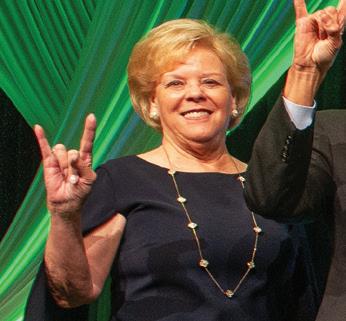
• Bell’s groundbreaking leadership and philanthropy have been pivotal for Black student success at USF. He and his wife, Ruth, established USF’s first Black endowed scholarship, and he’s a co-founder of USF’s Black Leadership Network.
In his remarks, Boger expressed his pride in helping establish USF’s first traditions, including his role in the composition of our Alma Mater by late music professor Wayne Hugoboom.
The lyrics included the phrase “where all men are free” — now “where we all are free,” he noted.
“It was specifically told to me by Dr. Hugoboom to be purposefully written to serve notice to the world that the doors of USF are open to all, clearly evidenced by my singular presence,” he said.
“When you sing the school song, it’s something to keep in mind.”
- PENNY CARNATHAN ’82 | USF A dvancement – President Rhea Law, ’77This is such an important event. It’s our opportunity to really look at our alumni and see the great things they’re doing and to honor them.”
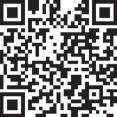
TAMPA NATIVE ERNEST BOGER has always considered himself an “all-American boy.” He grew up in Progress Village, a Black suburb, and although he was set to graduate as valedictorian at Howard W. Blake High School, the thought of attending college hadn’t yet crossed his mind.
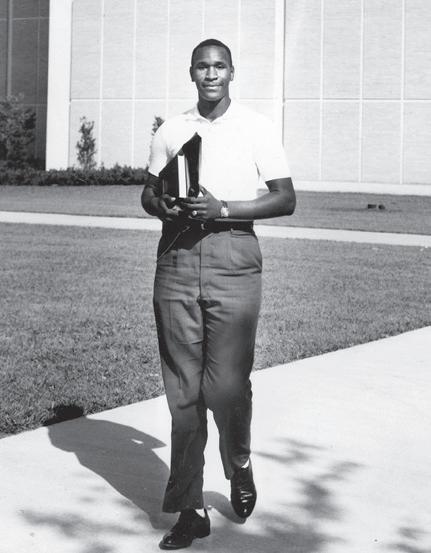
Forty years later, he is nationally known as a renowned expert, educator and pioneer in the hospitality and tourism industry. Widely published and a popular speaker, he has touched countless lives in a very personal way. He was also USF’s first Black student and graduate.
Boger earned a degree in psychology in 1965. He served in the military during the Vietnam War, then finished his MBA at the University of North Texas – the program’s first Black graduate. He earned a doctorate in management from Revans University.

As an educator, he helped lay the groundwork for the emerging hospitality discipline, founding programs at universities across the U.S., Jamaica and the Bahamas. He led the departments of hospitality management at what is
now Bethune-Cookman University in Daytona Beach and the University of Maryland Eastern Shore, among other high-level posts.
Boger retired — or as he calls it, “rewired” — in 2020. He continues to share his knowledge and expertise by publishing scholarly journal articles and giving lectures, and has stayed connected to his alma mater as a Life Member of the USF Alumni Association.
Pat Moreo, former dean of the USF School of Hospitality and Tourism Management, has known Boger since 1975. He describes him as someone who is “transparent, energetic and gets things done.”
“To watch him progress over all these years has been absolutely wonderful,” Moreo says. “He is a genuine leader and a genuine teacher. We are very lucky to have the commitment he’s made to hospitality education over the years.”
Boger is married to Carmel Brown and the father of two sons.
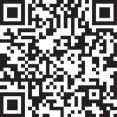
KEN ERIKSEN was born to play ball. At 3 years old, he swung his first bat playing wiffle ball with his father in Queens, New York. While other children were watching cartoons, Ken was studying the game — glued to the TV when the Yankees and the Mets took the field.
Baseball is in his blood, a passion passed down from his father, who played semi-pro ball. In the stands at Yankee Stadium, he’d remind Ken: Don’t look at the scoreboard, don’t worry about cheering, just watch how they play.
Those early lessons formed the foundation for a career that would take Eriksen to a silver medal in the Olympics as head coach for USA Softball, numerous world championships for Team USA, and one of the most successful athletic programs in USF history.
A member of the Bulls baseball team, Eriksen turned his attention to the fastpitch softball diamond after graduating in 1984. He played from 1986 to 1997, racking up a wealth of national and international honors.
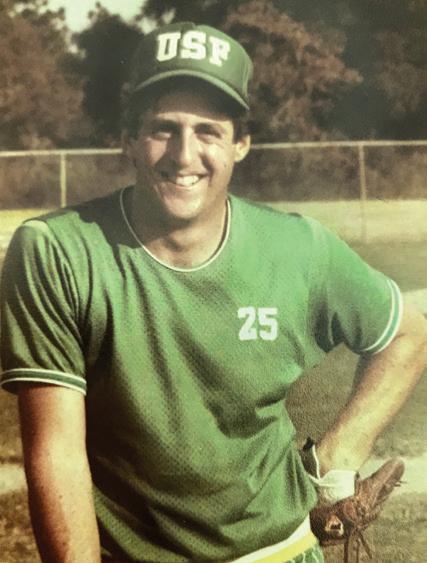
As head coach at USF, Eriksen made Women’s Softball one of the university’s most successful athletic programs, leading the team to five conference titles, 17 NCAA Post-Season Regionals with four “Sweet 16” appearances, two Super Regional appearances and a College World Series berth.
Those closest to him describe Eriksen as an incredible person with a big heart.
“He does the right thing not because someone’s watching, but because it’s the right thing to do,” says Chris Leto, ’85, CEO of Tampa Brass & Aluminum Corp., who met Eriksen when both were freshmen trying to make USF’s baseball team. “He is one of the most trusting friends that I have. You can go to him with anything, and he has great insight.”
Eriksen met his wife, Debra, at USF, and the couple has two daughters.
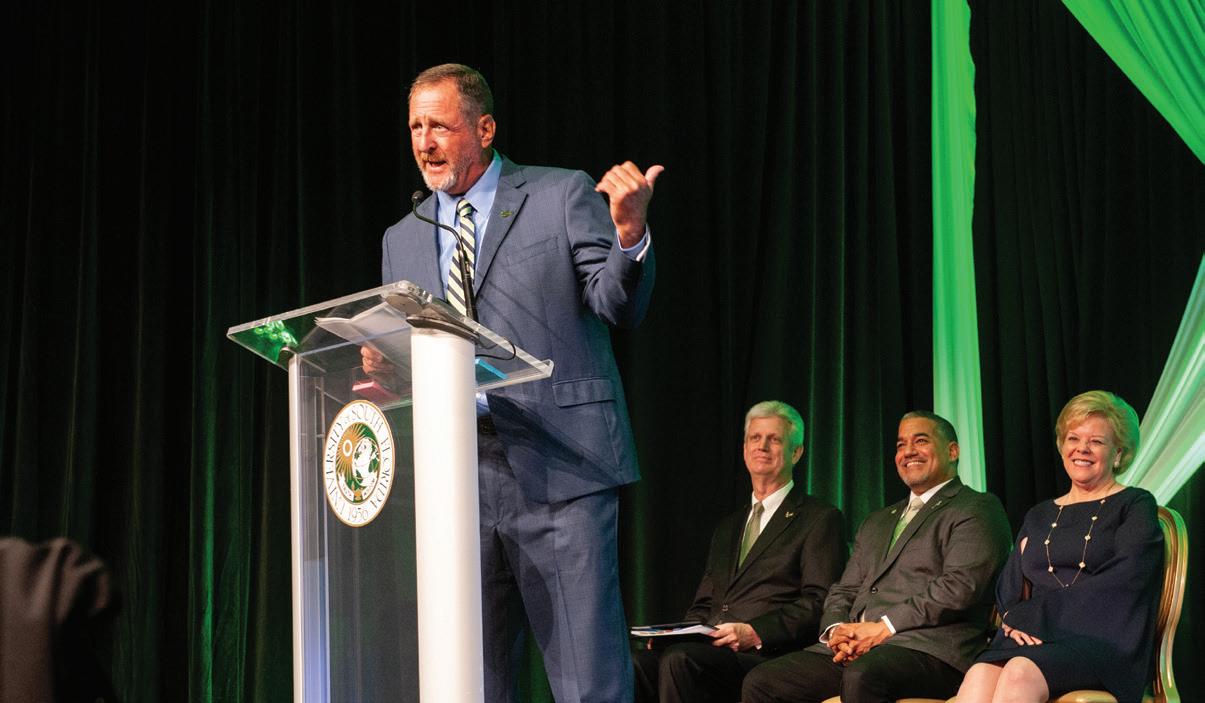
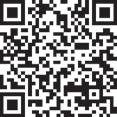
AS A CHEMISTRY STUDENT AT a university not much older than he was, Michael Rao found an extended family — and a world of possibilities.
USF professors took him under wing, inviting him into their labs and research. By his sophomore year, their nurturing had given Rao a clear vision for his future: higher education.
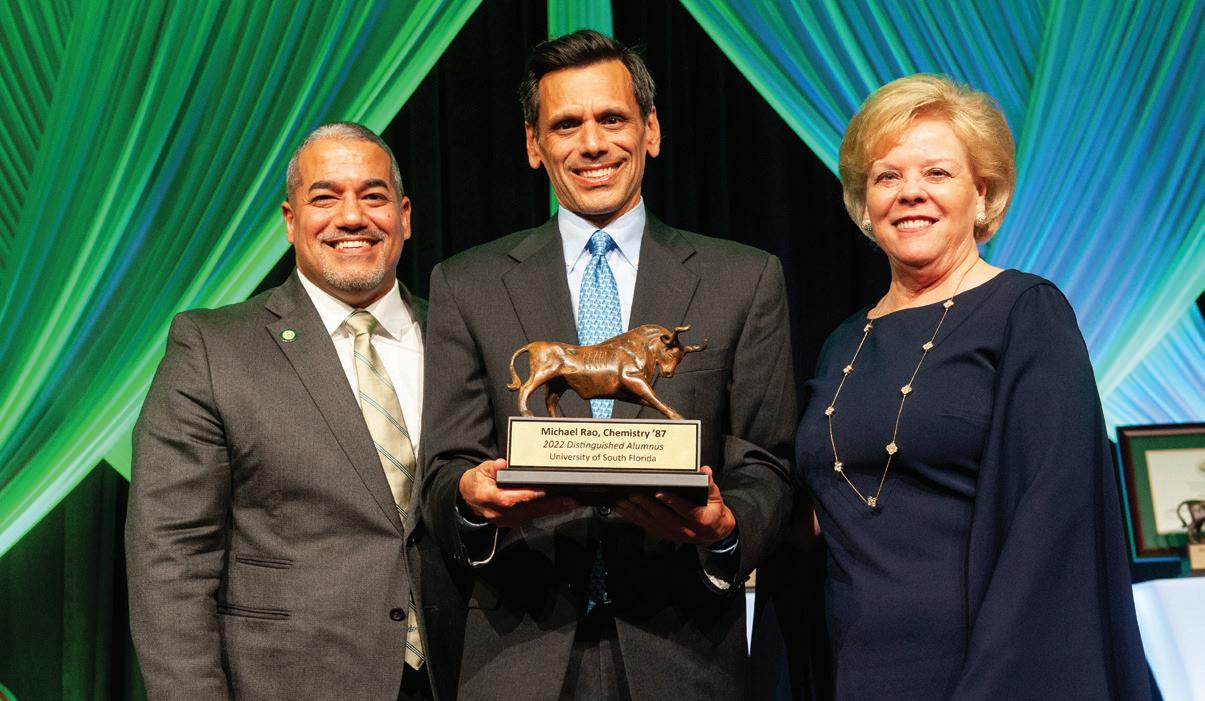
Today, he is president of Virginia Commonwealth University in Richmond and the VCU Health System, an academic medical system ranked in the nation’s top 100.
Rao went on to earn a doctorate in higher education. Among his first projects was creating the master plan for California’s then-new community college system. It was there he became a dean at Santa Clara’s Mission College in 1992. By age 26, he was Mission’s president — the youngest college president in the nation.
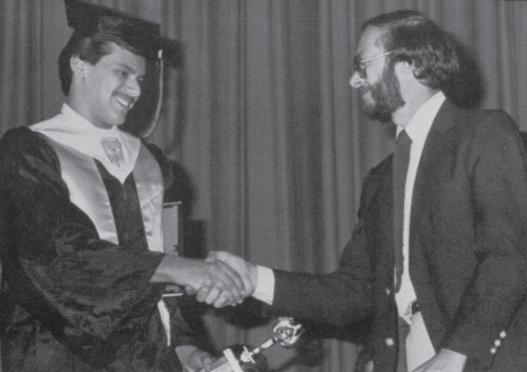
Under Michael’s leadership, Mission became Silicon Valley’s premier college, growing enrollment by 57 percent as it educated the future employees of tech giants. In 1998, he was named chancellor at Montana State University, and in 2000, president of Central Michigan University.
Rao was tapped to become Virginia Commonwealth University’s fifth president in 2009. Since then, the graduation rate has jumped from 48 percent to 70 percent and he’s led the VCU Health System to a 17 percent improvement in patient experience ratings. Fundraising has grown fivefold, including the largest gift in the university’s 184-year history, $104 million to VCU Health’s new Liver Institute.
Rao grew up near Dade City in Pasco County. His father, Suresh, was a physician and immigrant from India who died when Michael was was a child. His mother, Mary, is a nurse.
Wilton Simpson, president of the Florida Senate and Rao’s classmate at Pasco High School, says his longtime friend never changed.
“No one who went to high school with Mike is surprised by his success. Very early on, Mike wanted to be helpful, he wanted to teach, and that clearly came out in his choice to attend USF and then become among the youngest college presidents ever,” he says.
Michael and his wife, Monica, have been married for 24 years. They have two children.
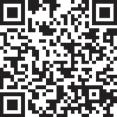
FOR PAM MUMA, GIVING BACK is personal. It began with volunteer work as a high school student and continued with the American Cancer Society, first in Tampa and then in Milwaukee, where she and husband, Les, lived for 17 years.
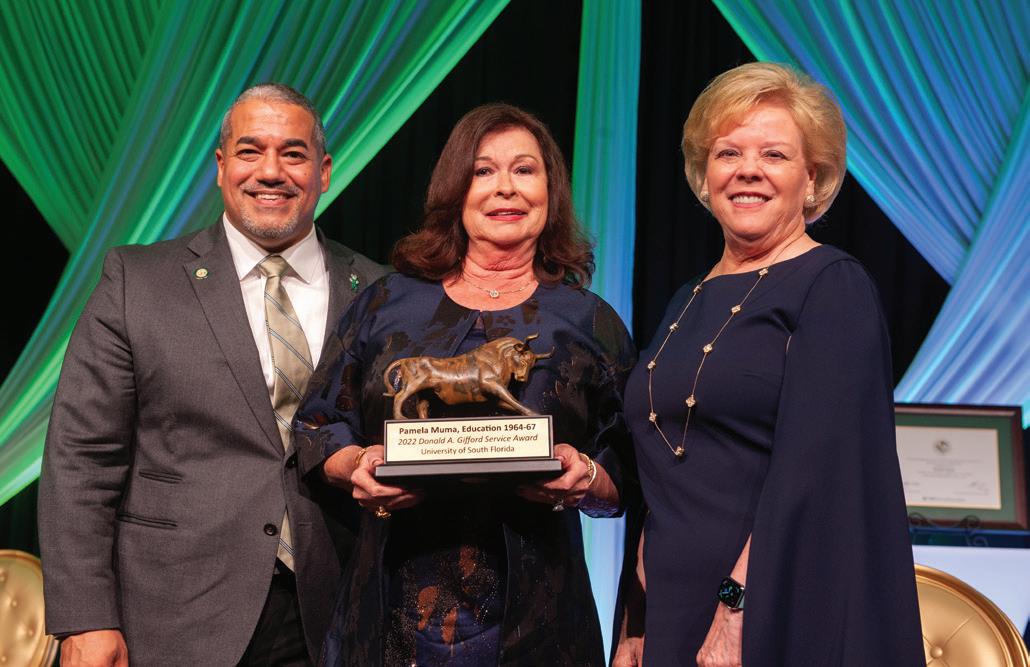
Milwaukee is also where she first became involved with children’s hospitals.
After their daughter, Jennifer, died shortly after birth, the Mumas turned their heartbreak into hope for thousands of families. Their first major gift was to renovate the neonatal intensive care unit at the Children’s Hospital of Wisconsin. But it was Pam Muma’s dream to renovate the NICU at Tampa General Hospital, where Jennifer was born.
In 2010, TGH opened the completed Jennifer Leigh Muma NICU, expanding the existing facility from 40 isolettes in a single room to 92 beds in private rooms. Among other programs, the Mumas also established the Pamela and Leslie Muma Endowed Chair in Neonatology and named the Lisa Muma Weitz Molecular Laboratory at USF Health.
Muma credits her former golf coach, Dick Bowers, with reconnecting the couple to USF.
He called her in Milwaukee to ask if they would do something for the College of Business.
They started with a full-ride scholarship for students from Winter Haven High School, their alma mater. They named the auditorium in the new wing of the College of Business and then made one of the largest gifts in university history to name the Muma College of Business.
After a personal health scare, Muma spearheaded the Pamela Muma Women’s Health Center, which opened at USF in 2019. It provides one-stop concierge health services, including annual wellness visits, specialty care, lab services and other services in a comfortable environment.
Of her many accomplishments, Muma considers her 57-year marriage to be the greatest. Her husband says the two are a team.
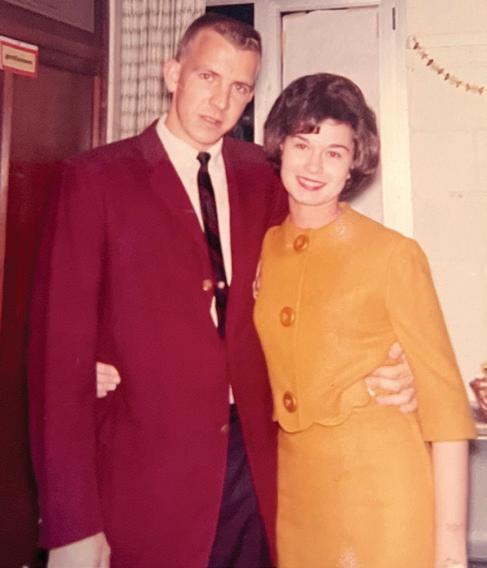
“It’s not her money or my money, it’s our money, and that’s the way we live and that includes all of our gifts to the Green and Gold,” says Les Muma.
“She loves this place as much as I do.”
Recognizing a non-USF graduate who has provided countless hours of service to USF and the Tampa Bay community
THE YEAR WAS 1982. Fans packed “The Big Sombrero” to cheer the Tampa Bay Buccaneers to victory. One starting tight end, Jerry Bell, was out there on the gridiron living his best life.

To many, playing in the NFL would be their career highlight. For Bell, it was only the beginning.
After joining the Bucs, he spent his off-seasons volunteering with the USF Athletics department, cooking hot dogs and helping with odd jobs.
Bell recognized early on the challenges associated with completing a college degree. He met his future spouse, Ruth, at Arizona State University, where both saw friends drop out, unable to afford books, tuition, even housing. It was clear that many African-American students could not overcome financial barriers. Thus began Bell’s mission to serve the greater community.
Now president and CEO of Bell and Associates Business Consultants, he has served on the boards of Advent Health Foundation, Hillsborough Community College, The Boys and Girls Clubs, and other organizations.
In 1991, the Ruth and Jerry Bell Endowed Scholarship was established at USF, the first endowment serving African-American students. The same year, he joined the USF Foundation board of directors, serving until 1998.
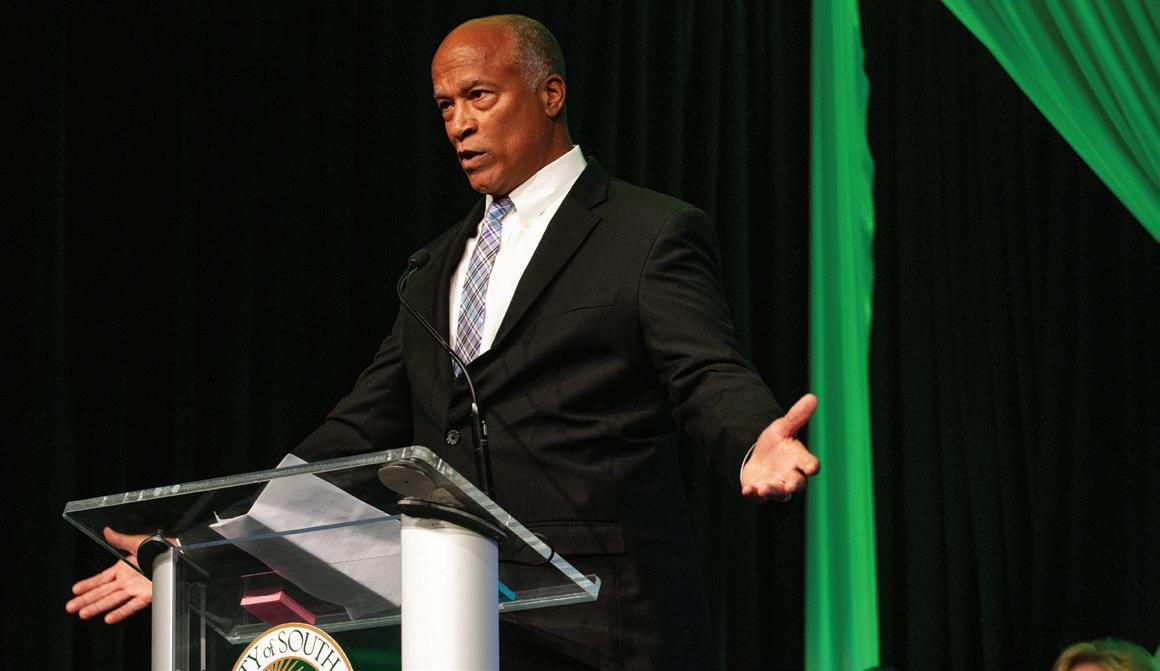
In 2016, Bell’s decades of work culminated in USF receiving a $2.1 million grant from Helios Education
Foundation. With a core group of founding donors, millions of dollars in funding, and a clear vision in place, the USF Black Leadership Network (BLN) was born.
The BLN/Bell Family Scholarship was established at the same time. To date, more than 100 students have benefitted from it.
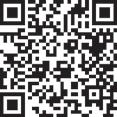
Kevin Sneed is a tenured professor, founding dean of the USF Health Taneja College of Pharmacy, and senior associate vice president for USF Health. He has known Bell for over a decade.
“He’s so humble,” Sneed says. “People never know how much he is doing behind the scenes to help others. Part of his natural essence as a person is to help people.”
Jerry Bell is still living his best life — and helping countless others lead theirs, too.
THE USF ALUMNI LEADING the fastest-growing businesses in 2022 come from all corners of the university, from engineering and education to criminology, geology and psychology.
The best represented academic discipline this year? Accounting.
The 10th annual USF Fast 56 awards in September celebrated the 56 fastest-growing businesses owned or led by alumni. A nod to USF’s founding year, 1956, awards are based on revenue and independently tabulated and ranked by accounting firm and Alumni Association sponsor Cherry Bekaert. The 56 winning businesses don’t learn where they fall in the ranking until the event’s countdown to No. 1, making for a dramatic, high-energy evening.
“You’re a particularly special Fast 56 cohort because in 10 years, this program has grown into one of USF’s most popular recognition events. That makes for a lot of nominations – many hundreds this year – and some fierce competition,” emcee Bill McCausland, MBA ’96, Life Member, told the crowd. He’s vice president and executive director of the USF Alumni Association, which created and hosts the program.
This year, No. 1 went to Ideal Agent and its Bull leaders: founder and CEO Steve Johnston, co-founder and CTO Zavier Rodriguez, and co-founder and VP of IT Gavin Scott. Established in 2016, it’s the nation’s fastest-growing real estate services company.


The Fast 56 also includes two awards recognizing larger companies, which don’t tend to have the growth spurts favored by Fast 56 criteria. The Accelerator Award, for the company with the largest percentage of cumulative growth and more than $20 million dollars in annual revenue, went to PainTeq LLC and Charles Girsch, founder and executive vice president. The company ranked No. 1 in 2021.
The Apex Award recognizes the company with the highest annual revenue. This year’s recipient was Baldwin Risk Partners, or BRP, and its founding partner, Elizabeth Krystyn. The company provides insurance and risk management solutions. In August, BRP’s gift of $5.2 million to the Muma College of Business School of Risk Management and Insurance helped ensure a talent pipeline in the high-demand field and renamed the school.
The annual awards have launched the Fast 56 scholarship fund and forged new business alliances – one famously outlined on a cocktail napkin when two Bull business leaders met for the first time.
Nominations for the 2023 Fast 56 will open in the spring. Visit usfalumni.org/fast56 for updates.
Tampa idealagent.com
Steve Johnston, ’95, Life Member Founder/CEO
Zavier Rodriguez, ‘99
Co-founder and CTO
Gavin Scott, ‘00 Co-founder/VP of IT
Ideal Agent is a full-service real estate services company that makes the home-buying and selling process easy and profitable.

2JVB Architect Tampa jvbarch.com
Joseph V. Belluccia, ’90, Life Member Principal
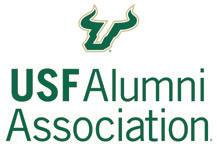
JVB Architect provides a wide range of professional services relating to development services, planning, design, interiors and leasing support services.


Tampa on-itconstruction.com
Robert Kantor, ’94, Life Member Founder
On-it Construction is a full-service facility maintenance and management company servicing Florida and 42 other states.


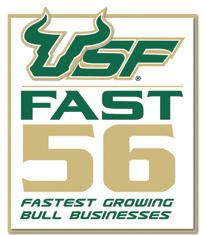
3PainTEQ LLC Tampa painteq.com
Charles Girsch, ’12, Life Member Executive vice president and founder


A medical device innovator, PainTEQ’s LinQ therapy aims to immediately provide clinical benefits to individuals living with incapacitating lower back pain.


Outsourced Marketing Experts St. Petersburg marketingdirection.com
Christine “Christy” Vogel, ’93, Life Member CEO and founder
Marketing Direction provides outsourced marketing teams to companies that demand world-class marketing but cannot justify the expense of a full-time marketing department.
Westminster Pharmaceuticals Tampa wprx.com
Louis Sanchez, ’00, Life Member CEO
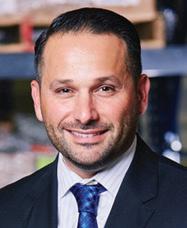
Westminster Pharmaceuticals provides high-quality generic pharmaceuticals that address health issues in key therapeutic areas
• 100% Chiropractic - Tampa
• AspirEDU, Inc.
• Baldwin Risk Partners
• ClearTrust, LLC
• ComplianceQuest
• Control Logics
• David J Reali, CPA
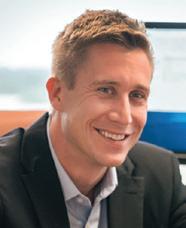
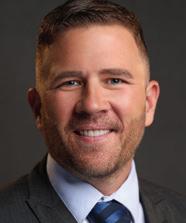
• DCE Live, Inc.
• Diamond View
• Divinity Med Spa
• Drummond Carpenter, PLLC
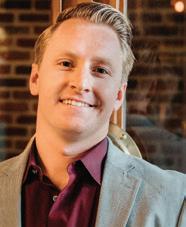
• Element Engineering Group, LLC
• Everett Financial Group, LLC
• Excite Medical
• Florida Berry Wines Inc.
(DBA Keel and Curley Winery)
• Forno Nardona LLC
• Gigante Productions, Inc.
• Hydra Engineering & Construction, LLC
• Ice of Central Florida
• Idea Nest
• IDEAL AGENT
• ImageLift
• Intex Builders, LLC
• Investors Title & Settlement Services Inc
• JVB Architect, LLC
6Matrix Hormones Tampa matrixhormones.com
Dr. Edward Leonard, ’02 CEO
Whether patients suffer from low libido, fatigue, mood swings or muscle loss, Matrix Hormones’ clinic tailors treatments to specifically meet their needs.
Pipas Law Group Tampa, St. Petersburg pipaslaw.com
Christian Pipas, ’07 Owner
Chris Waters, ’12 Manager
Pipas Law is a personal injury and civil litigation law firm with offices in St. Petersburg and Tampa.
• Lebel Landscaping
• Lukos
• MADE
• Marketing Direction Outsourced Marketing Experts
• Mastry’s Brewing Co.
• Matrix Hormones
• McKay Advertising + Activation
• Metrc
• Moxie Digital
• National Strategies Public Relations
• Northwestern Mutual-Stokes Financial Group
• NovelEsolutions, Inc.
• On It Construction
• One Day Came Inc.
10• PainTEQ LLC
• Pipas Law Group
• ReedTMS Logistics
• So Good So You
• Stanton IP Law Firm
7Baldwin Risk Partners (BRP) Tampa baldwinriskpartners.com
Elizabeth Krystyn, ’87, Life Member Founding partner
Baldwin Risk Partners is a collection of entrepreneurs and insurance professionals who deliver indispensable insurance and risk management solutions.
Forno Nardona LLC Tampa fornonardona.com
Marie Hall, ’91 Co-owner and CFO
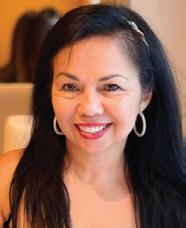
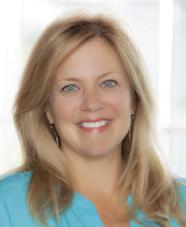
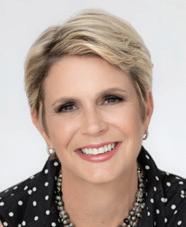
Forno Nardona builds Italian-styled outdoor and indoor real fire brick pizza ovens for residential and commercial use.
• Strategic Tax Consulting Inc
• Superior Optical Labs, Inc
• Tampa Crossroads, Inc.
• Tarmak USA
• The Candle Pour
• The Joint Chiropractic Tampa Bay
• TitleTap
• Vuram Inc
• Walker Chiropractic and Wellness Center
• Westminster Pharmaceuticals
• Wey Engineering
• Zukku Sushi

THANK YOU TO ALL the Bulls and friends who became Alumni Association Life Members in 2021. Due to space limitations, we are publishing the 2021 Honor Roll in segments. We have made every attempt to ensure the accuracy of our Honor Roll. Please accept our sincere apologies for any omissions or errors.
Life Members represent some of USF’s most ardent supporters. Their gifts contribute to the success of all Bulls, forever, through an endowment benefiting a wide range of programs, from student scholarships and leadership development to prestigious recognition and professional opportunities for alumni.
Above all, Life Members support USF’s phenomenal achievements by connecting alumni and friends as one powerful voice advocating for and sharing pride in our university.
Learn more about Life Membership at usfalumni.org/membership.
Sept. 20-30, 2021
Patrick Alley, #6442
Jeffrey Alvaro, #6607
Tracey Alvaro, #6608
Elizabeth Amenta, #6951
Paul Amon Jr., #7053
Mark Andersen, #7025
Jean Apperson, #6740
Vivian Arenas-Battles, #6896
James Arias, #6514
James R. Armstrong, #6725
Jamie Armstrong, #7010
Linda Armstrong, #7009
Margaret Armstrong, #6805
Deborah Austin, #6939
Anne Baier, #6627
Schatzi Ball, #6462
Rebecca Balter, #6848
Diana Barber, #6940
Timothy Barrett, #7090
Michael Basista, #6822
Brian Becker, #7041
Mike Bell, #7039
Cavelle Benjamin-Arias, #6513
Laurence Bennett, #6785
Donalie Benyak, #6946
Anna Berastegui, #6626
Marilyn Bertch, #6807
Mark Best, #7030
Charlotte Biggerstaff, #6652
Christopher Blazejowski, #6657
John Blecher, #6983
Virginia Bodden, #7094
William Bolash, #6901
Ernest Boner, #6691
Trevor Bonilla, #6892
Joanne Booher, #6745
Bertha Borroto, #6636
Guy Bos, #6715
Quintin Boston, #7074
Sarice Boston, #7073
Thomas Bottichio, #6480
Louis Bottino, #6799
Elizabeth Boudreau, #6688
Thomas Bracke, #6886
Charles Bradshaw, #6647
Christian Braun, #6928
Phyllis Browder-Gonzalez, #6846
Alexander Brown, #6620
Mary Bruder, #7028
Angela Brumley, #6910
Roger Brumley, #6911
Kimberly Bunger, #7192
Michael Burgess, #6824
Kenneth Burke, #6774
Robert Burke, #7066
William Burkert, #6902
Cynthia Burnette, #6526
Richard Burnette, #6525
Philomene Callaway, #7056
Sylvia Camp, #6881
Kathy Campbell, #6996
John Carpenter Jr., #6748
James Carper, #6726
Jerry Carreno, #6744
Robert Casavant, #6856
Tina Centeno, #6890
Lisa Champoux-Rhoden, #7014
Julianna Childs, #6764
Laurie Chiles, #7007
Jennifer Clayton, #6980
Barry Cohen, #6633
Peter Cohoon, #7077
Sharon Cohoon, #7078
Claudia Conner, #6522
Donald Conner, #6521
James Conti, #6971
Elizabeth Cooper, #6689
Anthony Coppola, #7018
Lynda Coppola, #7019
Charleen Corbett, #6922
Richard Corbett, #6921
Brian Corlett, #7113
Warren Craven Jr., #7008
Marion Cronin, #7023
Marie Culbert, #6806
James Cunningham, #6578
Myra Frasure Cunningham, #6577
Wilmer Currie III, #7100
Douglas Currier II, #6683 Gordon Cutting, #6709
Mark Daddona, #7026
Mary Davidson-Lenz, #7029
Kristi Davis, #7005
Roberta Dawson, #7068 Victoria DeBord, #7092
Judith Deeley, #6991
Elaine Depardieu, #6949
John DeRosa, #6505
Raymond Doyle Jr., #7059
Milton Dris, #7040
William Duffy, #6903
Paul Dunham, #7054
Elisabeth Dupont, #6950
Katherine Durkin, #6993
Cynthia Edwards, #6662
Michael Emmerich, #6548
Max Epling, #6819
Kevin Essex, #7034
Melissa Essex, #7035
Diana Evans, #6941
Helena Everett, #6556
James Everett Jr., #6555 Veronica Fasselt, #6894
Marilyn Feldstein, #7022
Felix Figueroa Jr., #6694 David Finklea, #6613
Wendy Finklea, #6614
Harriett Fisher, #6967
Michael Flaherty, #6825
Cletus Fortwendel Jr., #6933
Charles Foster, #6923
Tammy Foster, #6882
Michael Franzese, #6567
Joanne Freeman, #6981
Teresa Fries-Maloy, #6883
Roy Galewski, #7070
Donald Garbrick, #6678
Elsie Garner, #6962
Ila Garner, #6558
Robert Garner, #6961
William Garner III, #6557
Robert Garofalo, #6858
Louise Geczy, #6800
Gordon Geissler, #6710
Rae Geren, #6847
Michael Gfesser, #7036
Mary Giella, #6815
Jay Gill, #6739
Ronald Giovannelli, #6862
Maritza Godwin, #6808
Amy Gore, #6623
William Graves III, #7096
Audrey Greenberg, #6631
Mark Greenspahn, #6809
James Griffin, #6581
Nella Griffin, #6582
James Griffith, #6728
Ernest Gudath, #6692
William Guerra, #7097
Monica Guerrero, #7042
Alex Guevara, #6905
Bernard Guss, #7043
Nancy Guss, #7044
Rita Gynan, #6853
Kathleen Hall, #6767
Samantha Hall, #7072 Paul Halphen, #6842
Valerie Harris, #6893
Richard Harrison, #7061
Forrest Haslup, #6696
Fredrick Hauck, #6700
Angela Helm, #6506
Stacy Hendry, #6873
Dorothy Henning, #6682
Sharon Herlovich, #7079
Kimberly Hermelyn, #7003
Charlie Herndon, #6651
Ihedinma Hicks, #6968
Robert Higgins, #7067
Wallace Hill, #6897
Richard Hinspeter, #7062
Larry Hodge, #6783
Helen Hom-Moore, #6719
George Horn, #6703
Daan Humberg, #6664
Jeffrey Jackson, #6979
Rosemary Jackson, #7069
Willie Jackson, #7401
James Jacoby, #6972
Kenneth Jacquin, #6775
Elizabeth Jennings, #6543
John Jennings, #6544
Denise Johnson, #6532
James B. Johnson, #6531
Ronald Johnson, #6863
Elaine Jones, #6686
Joletia Jones, #6754
Inez Joseph, #6969
Kramer Kaplan, #7239
Nancy Kates, #6579
William Kates, #5889
Elizabeth Katz, #6953
Kanneg Katz, #6952
Owen Keenan, #6839
Edwin Kelley, #6947
Benjamin Keyes, #6635
Gururas Khalsa, #6965
NamJoti Khalsa, #6966
Kelly Kilcrease, #6771
Jon Kinney, #6755
Peter Kirby, #7055
Lynn Kirpa, #7020
James Kizer, #6730
Evangelos Koymarianos, #6566
Kiriaki Koymarianos, #6565
Lawrence Kraujalis, #6787
Allen Kress, #6907
Frank Kugel, #7089
Theresa Kugel, #7088
Pearl Lane, #6844
Gregory Lang, #6713
David LaRussa, #6668
Joseph Lastowski, #6987
Ellen Leahy, #6958
James Leahy, #6959
Charles Leps Jr., #6649
Ava Lester, #6913
Ilyssa Levick, #6723
Lynn Levine, #6801
Darlene Lewis, #6935
Kim Lewis, #6779
Daniel Lidinsky, #6977
Jean Lidinsky, #6978
Patricia Littler, #7051
Kirk Lockwood, #6782
Wendy Long, #6900
Diane Lorber, #6677
Donald MacNeale, #6945
Diana Mamero, #6942
Wayne Maris, #6899
Melanie Martin, #6820
Linda Mason-Barber, #6792
Sue Maurer, #7083
James McBride, #6732
Lori McBride, #7017
Patrick McBride, #7016
Charles McCabe, #6924
Diane McSpiritt, #6943
Noemi Melendez-Kaylor, #6838
Margaret Menke, #7021
Marcia Merrifield, #6803
Ramona Meryman, #7058
Katie Messer, #6769
Sharon Michota, #6869
Barbara Miller, #6914
Bruce Moffatt, #6537
Donna Moffatt, #6538
Mark Mooney, #6811
Suzanne Moore, #6880
Marcia Morgan, #6804
George Morrison, #6704
Michelle Morrissey, #7254
Gail Mosher, #6963
Gary Myers, #6964
Anthony Naughton, #6628
John Nelson, #6750
Ellen Newell, #6960
Carolyn Newland, #6920
WHEN HER DAUGHTER ENROLLED at USF, Karen Spencer went all in — a gung-ho, proud Bull mom.
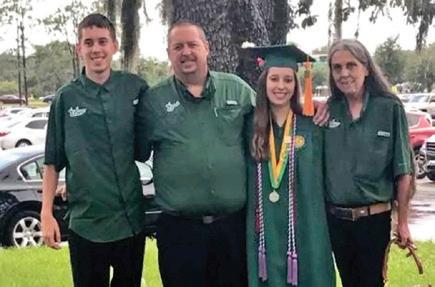
That proved frustrating in her tiny hometown of Groveland, Florida. Local stores carried no Bulls gear.
“She’d get those black Nike flipflops with pink Nike lettering and she’d write USF in the swoop,” recalls Daisy Smith, ’17, the third of four kids and the first in the family to attend college. “My freshman year, she’d come down on the break to pick me up and want to spend two hours in the USF Bookstore. I’d be, like, ‘Mom! I want to go home!’ ’’
Karen lived to see Daisy graduate with a nursing degree and marry her USF sweetheart, Phil Smith, Management ’15. The two met in 2014, in Introduction to Ethics: Love and Sex. When Karen died last fall, she left a palpable gap in the family and in the special bond she shared with her two special Bulls. So when the couple prepared to celebrate their second wedding anniversary on Oct. 25, Phil had a eureka gift idea: a joint Alumni Association Life Membership for him and Daisy.
Life Members represent some of USF’s most dedicated alumni and friends. A large portion of their one-time membership payment is deposited into an endowment, which supports the university now and for generations to come.
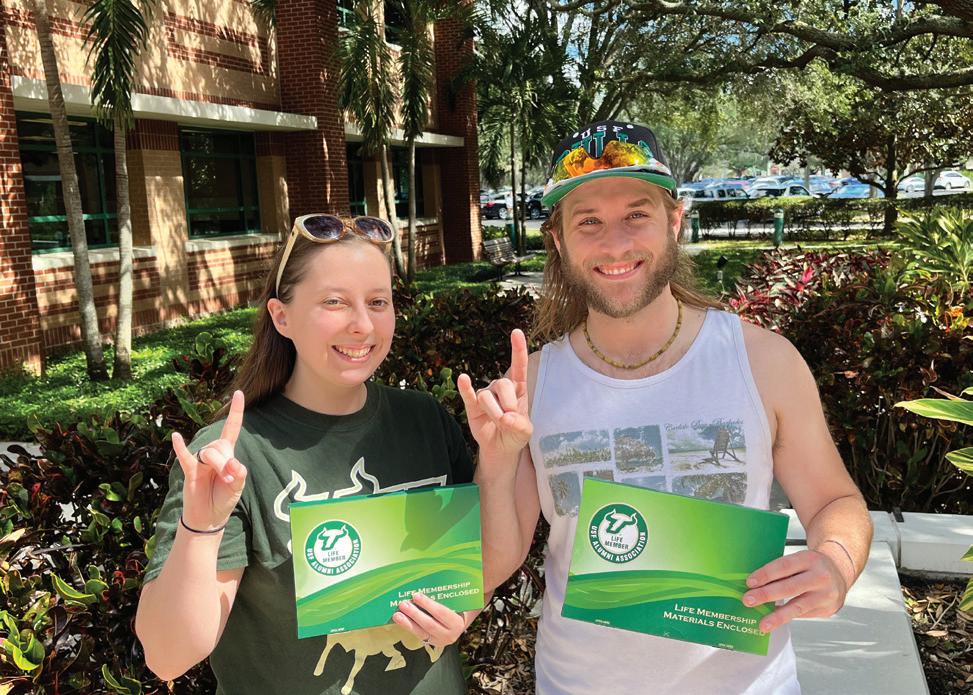
“It seemed like a great way to keep Karen with us,” Phil says. “She was such a wonderful, caring person, and she was so excited that Daisy was at USF. Maybe more excited even than Daisy.”
He wanted the gift to be special — it was their first anniversary since Daisy lost her best friend. So he reached out to the Alumni Association. He and Daisy live in Gainesville, he explained, and would be in town Oct. 24 for breakfast with friends and a visit to their alma mater. Could they pick up their Life Member packets at 1 p.m.?
“We went to Cooper Hall and stood outside Brad Warfield’s classroom where we met,” Daisy recalls. “We walked to the Alumni Center and the person at the front desk greeted us by name.”
She pauses. The memory draws tears.
“She led us to the Alumni Association offices,” Daisy finally says. “I honestly was tearing up the whole the time.”
Phil and Daisy Smith are now Life Members 8900 and 8901. And they’re the proud parents of a future Bull, little Lilah.
“This school, it means so much to me,” Daisy says. “Without USF, I wouldn’t have met Phil and become a NICU nurse at Shands. We love supporting our school and making sure all students can get out of it what we did.”
For Phil, it’s also a tribute to Karen, who so wanted all of her children to realize their dreams.
“Coming back from our anniversary, I felt so entwined with the university,” he says. “It feels incredible to be a part of that family, along with Karen and Daisy.
“This is the perfect way to keep the memory of Karen alive.”
David Norton, #6937
David Ogletree, #6669
Charlotte Olson, #6653
Michael Orlosky, #7037
Katrina Osborn, #6998
William Osborn III, #6997
Ellan Otero, #6956
Raul Otero, #6957
Scott Owens, #7075
Janet Pailthorp, #6737
Mary Ann Paleveda, #6813
Antonio Palos, #7114
James Parkhill, #6973
James Parrish, #6734
Steven Patterson, #6611
Virginia Patterson, #6612
Sharon Perdue, #7080
Albert Perotti Jr., #6926
Cheryl Perotti, #6927
Christopher Peterson, #6659
Christopher Pirolo, #6660
Ryan Pollock, #7071
Beth Polozker, #6916
Charles Powell, #6352
Patricia Powell, #7052
Robert Powell, #7064
Tyler Powell, #7065
Melissa Power, #6821
Matthew Powers, #7191
Judith Prier, #6992
David Pund, #6670
Beatrix Rahms, #6634
Barbara Ramirez, #6915
Joseph Rawlings III, #6988
Alicia Reaboi, #6906
Colleen Redmond, #6524
Michael Redmond, #6523
Mary-Irene Reich, #6818
Elizabeth Remley, #6690
Kenneth Reyes, #6776
Edda Rey-Powell, #6353
Joel Rhoden, #7015
James Rhodus, #6974
Robert Ricciuti, #6605
Susan Ricciuti, #6606
Laurence Richards, #6786
Byron Risner, #6918
Kimberly Ristau, #6780
Caroline Robinson, #6643
Michael Roe, #6827
Neil Roe, #7255
Carol Rohde, #6641
Carol Rush, #6919
Joseph Russo, #6757
Amanda Sammons, #6622
Charles Santana, #6650
Lanora Sava, #6568
Harlan Schafir, #6717
Martine Schall, #7027
Amy Schechter, #6909
Joshua Schechter, #6908
Henry Schubert Jr., #6720
Todd Scofield, #6891
John Scrivens Jr., #6752
Taunya Sebok, #7086
Gerald Seifert, #6976
Jane Seifert, #6975
Maryann Senderling, #7032
Richard Senderling, #7033
Ingrid Shaw, #6970
John Shenk, #6753
John Sherman, #6984
Christel Shumate, #6655
Cindy Siegel, #6931
Lee Sierra Sr., #6789
Kevin Silvey, #6778
Sue Sipe, #6879
John Sizemore, #6985
David M. Smith, #6671
Kelly W. Smith, #6772
Kenneth Smith, #7001
Tamara Smith, #7085
Allen Solomon, #6621
Joyce Sorensen, #6989
Ole Sorensen, #6990
Linda Spenceley, #6795
Mary Kay Stafford, #6817
Thomas Steele, #6888
Sonja Stefanadis, #6871
Claudia Steinberg, #6932
Nancy Stevens, #6834
Joe Ann Streeter, #6982
David Stuart, #6672
Raymond Sturwold, #7060
Terry Sutton, #7087
Nancy Tanner, #6835
William Tapp, #7098
Charles Taylor, #6925
Clifford Taylor, #6934
Edwin Taylor, #6948
Rakesh Thakkar, #7057
Alfred Thompson, #7082
Kathleen Thompson, #6768
Sheila Thompson, #7081
Cynthia Thornton, #6340
Jack Thornton, #6339
Henry Thorpe Jr., #6994
Kathleen Thorpe, #6995
Donald Tierney, #6679
Carol Torrens, #6642
Kenneth Trout, #7002
Gilbert Truitt, #7273
Pamela Truitt, #7050
Vicki Truitt, #7272
Nick Tsangaris, #7047
Michelle Tully, #6830
Steven Tuten, #6878
Linda Ullom, #7011
Robert Ullom, #7012
Kelly Underhill, #6773
Daniel Van Durme, #6665
Pamela Vanhorn, #6840
Dolores Vega, #6944
Darren Vermost, #6573
Melanie Vermost, #6574
Laura Violante, #7006
Christina Voehl, #6929
Jeffrey Voehl, #6930
Bradley Voigt, #6917
William Volmuth, #7099
John Waidner, #6986
Delores Walker, #6675
Gayla Wallace Emmerich, #6547
Ann Walters, #6625
Daryle Wane, #6936
Loretta Waters, #6798
Victoria Weeks, #7093
Wallace Welch, #6898
Alan White, #6619
Andrea P. Williams, #6624
Elizabeth T. Williams, #6955
Jason M. Williams, #6738
Melvin Williams, #6954
Frankie Wilson, #6698
Douglas Winton, #7045
Nancy Winton, #7046
Julia Wood, #6763
Lynnette Worrell, #6802
Edward Xiques II, #6685
Ann Yagle, #6912
George Yates, #6585
Patricia Yates, #6586
Robert Zambito, #6859
Mary Zernia-Best, #7031
Timothy Zink, #7091
Suzanne Zoss-Hernandez, #7084
Helios Education Foundation is focused on increasing postsecondary degree attainment for all students, particularly low-income and Black/African American students in Florida.
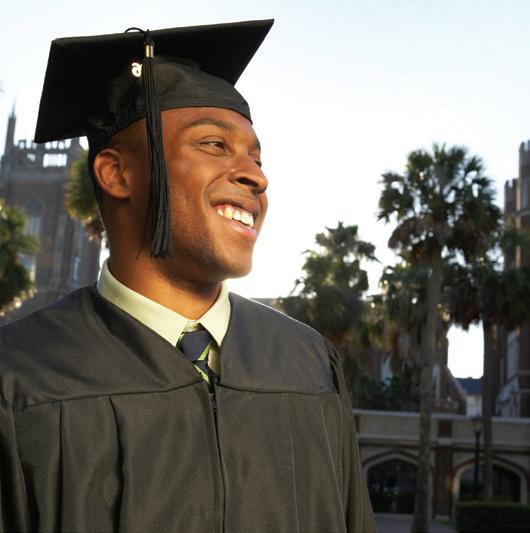
Helios partners all along the education continuum to close education gaps.
Ensure students are reading at grade level by the third grade Increase attainment of two- and four-year degrees.
Increase college enrollment
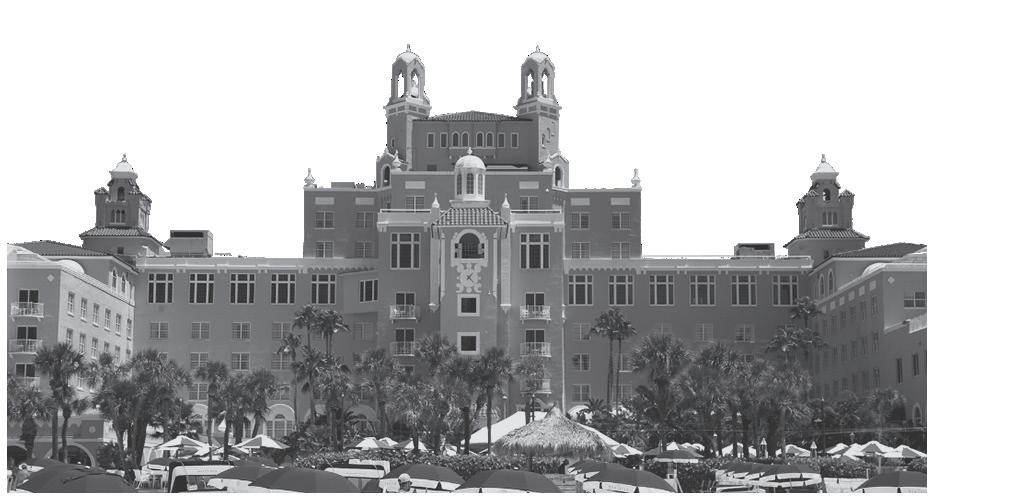
Learn more about Helios Education Foundation at www.helios.org
Helios has invested more than $14 4 million in initiatives focused on improving education outcomes for students at the University of South Florida.

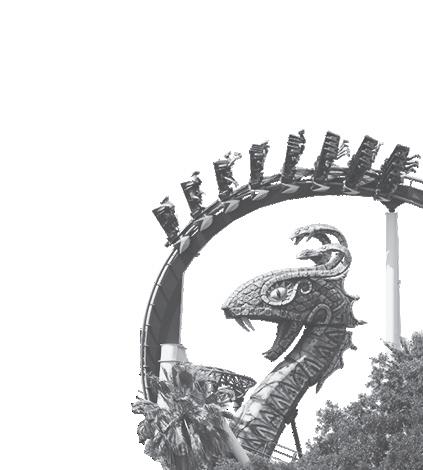


A weekly email newsletter from the Tampa Bay Times

Get a deep dive into the biggest stories shaping the Tampa Bay economy with Business by the Bay. Each week you’ll get consumer trends, real estate, tourism, retail and more sent straight to your inbox.

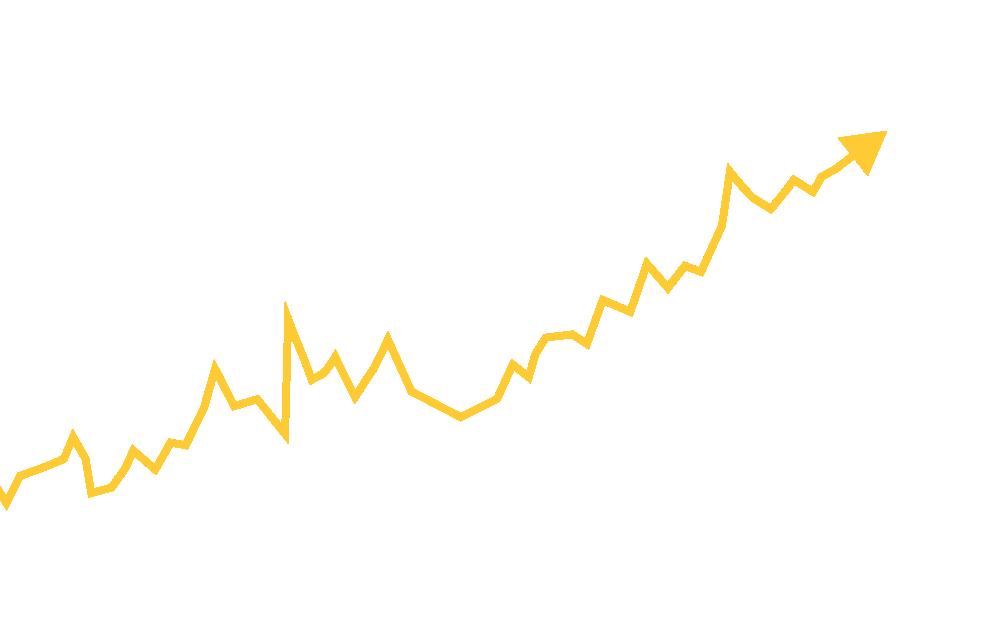
tampabay.com
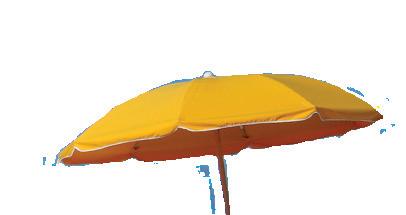
Scan to sign up or visit tbtim.es/bbtb

DAVID PEREDA, English ’63, Mathematics ’63, published “The Wall” (Drake Valley Press, 2021). An adjunct instructor at A-B Tech Community College in Asheville, North Carolina, Pereda is an award-winning author of 12 novels.
ROBERT ANDERSON JR., Marketing ’81, Life Member, placed among the top RE/MAX producers in Florida for the second quarter of 2022 for combined residential and commercial sales.
JOSEPH BORELLI, JR., MD ’88, has joined West Coast Musculoskeletal Institute as an orthopedic surgeon in Brooksville, Florida. He also serves as a professor of orthopedic surgery at the USF Health Morsani College of Medicine.
PAUL E. JOHNSON III, Geography ’70, Life Member, achieved the rank of Platinum Life Master in the American Contract Bridge League.
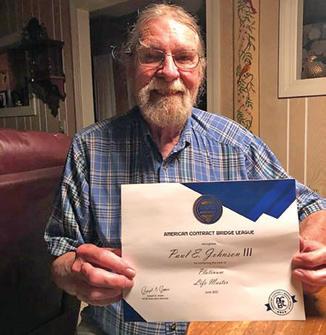
JAMES “JIM” LAMB, Mass Communications ’77, published “Dark Fruit,” a book of poetry (Amazon, 2022). He is an independent publisher and a writer at My Classified Ads, LLC, in Tampa.
RICHARD WEINSTEIN, Marketing ’79, was appointed to the College of the Florida Keys’ district board of trustees in Key West, Florida. He is the president and chief operating officer of the Ocean Reef Community Foundation.
RICK WILLIAMSON, Theatre and Dance ’77, Life Member, won Best Comedy at the Sensei Tokyo Film Festival for a TV pilot he wrote and directed, “Combat Nuns All or Nothing.” Williamson was also named Sensei Master of Cinema by the director of the festival.
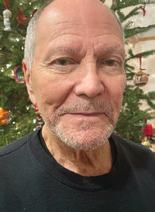
LEIZA FITZGERALD, Mass Communications ’84, was inducted into the Florida Sports Hall of Fame — the first angler to receive that honor. She is the director of Coastal Conservation Association Florida STAR, the largest saltwater fishing competition in Florida.
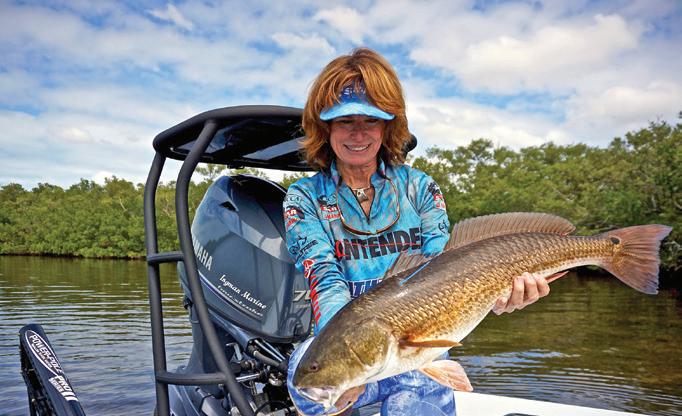
ROBERT FLIPPO, Electrical Engineering ’89, was appointed to Florida Atlantic University’s board of trustees in Boca Raton, Florida. He is chief executive officer of MobileHelp, a medical alert system.
LINDA HARTLEY, Marketing ’89, was named to the 2022 “Florida Super Lawyers” list, recognizing the top lawyers in the state. She is an attorney at Hill Ward Henderson, a law firm in Tampa.
DR. TODD HAZELTON, Biology ’87 and MD ’93, was named chief of the department of radiology’s division of thoracic imaging at UNC Health in Chapel Hill, North Carolina. He previously served as chair of the USF Department of Radiology.
ALBERT KELLEY, Government ’87, was elected to the Monroe County Court Judge Group 1 in Key West, Florida. Kelley, an attorney, serves as a magistrate for the 16th Judicial Circuit of Florida in Monroe County.
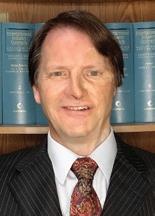
DR. CATHERINE O’CONNOR, Biology ’84 and MD ’88, Life Member, joined Southern Illinois Healthcare as Medical Director of Breast Services in Carbondale, Illinois.
CHARLES SAMARKOS, Accounting ’86, Life Member, was named to the 2022 “Florida Super Lawyers” list, recognizing the top lawyers in the state. He is a partner at Johnson, Pope, Bokor, Ruppel & Burns, LLP.
AMY SLIFKO-HILBELINK, MS Biology ’86 and PhD Education ’07, was promoted to campus president of South College in Pittsburgh, where she previously served as vice president of online operations.
TOBIAS WINRIGHT, Political Science ’87, joined St. Patrick’s Pontifical University in Maynooth, Ireland, as professor of moral theology. He previously was an associate professor at Saint Louis University.
DAVID BARAN, MD ’92, has joined Cleveland Clinic Weston Hospital in Weston, Florida, as section head of advanced heart failure, trans-
Send Class Notes submissions and high-resolution (at least 300 ppi) photos to pcarnathan@usf. edu or mail to Penny Carnathan, USF Alumni Association, 4202 E. Fowler Ave., ALC100, Tampa, FL 33620-5455
Send us your class notes!LEIZA FITZGERALD
plant and mechanical circulatory support. He was previously system director for advanced heart failure and transplantation for Sentara Healthcare in Virginia.
LEE BERCAW, Criminology ‘97 and MA ‘12, Life Member, became the sole assistant chief of police for the Tampa Police Department earlier this year. He joined the department in 1997 and is a USF Department of Criminology Wall of Fame Outstanding Criminology Ambassador.
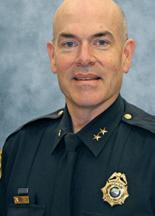
TIMOTHY BOBANIC, Management Information Systems ’96, was appointed Brevard County Supervisor of Elections by Florida Gov. Ron DeSantis. He previously served as the director of information technology and election services for the Brevard County Supervisor of Elections.
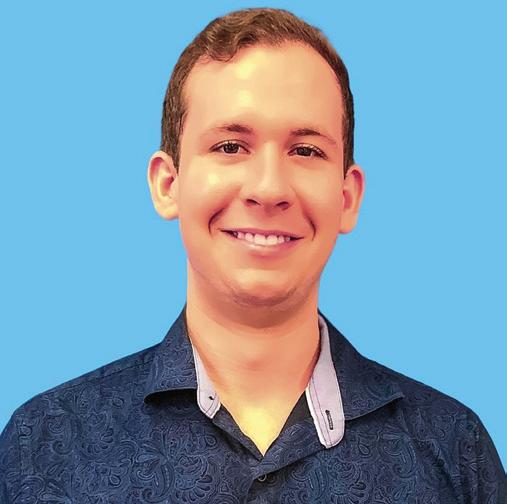
“I’VE LOST HUNDREDS of millions of dollars in the decisions I’ve made,” Elias Torres, ’98, told USF students in October. “Those are failures, but it doesn’t mean I’m a failure.” The co-founder and CTO of Drift, one of the only Latinx companies to achieve over a $1 billion valuation, Torres traveled from Boston to inspire the next generation of Bulls.
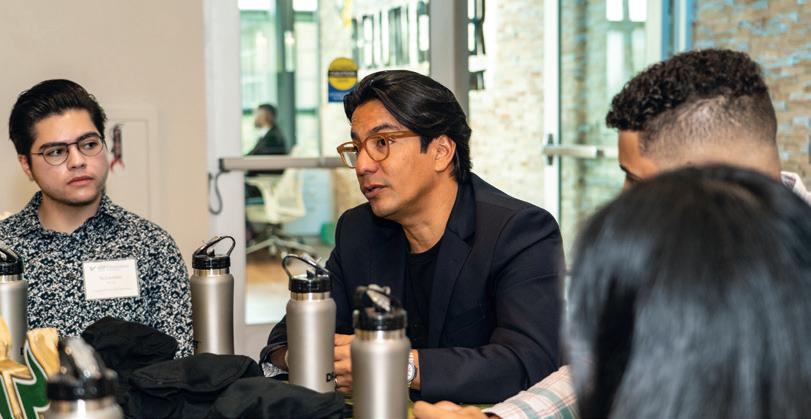
Arriving in the U.S. as a teenaged, non-English-speaking Nicaraguan immigrant, Torres worked nights while attending Tampa’s Leto High School. He earned a degree in management information systems at USF with help from the Latino Scholarship Program and went on to a master’s at Harvard.
Torres cofounded Drift, a marketing and sales software maker, in 2015.
Eric graduated from the University of South Florida with a bachelor’s degree in Marketing and a concentration in Supply Chain Management. He kicked off his career in 2018 as an intern in the Community Partnerships and Marketing department at WUSF Public Media. Eric’s interest in sales grew after shadowing WUSF’s sales team and learning valuable skills about building relationships with clients and nurturing a sales pipeline. Today, he’s an Account Executive for Pikmykid, selling school safety tools and an app that keeps students safe. He still tunes into WUSF 89.7 every day.
DENISE BOOTS, Criminology ‘95, MA ‘01 and PhD ‘06, was named president of the Academy of Criminal Justice Sciences. She is the associate dean of undergraduate education in the School of Economic, Political & Policy Sciences; a professor of public policy and political economy; and the senior research fellow in the Institute for Urban Policy Research at the University of Texas at Dallas.
JOHN ROCCO CAFARO, Government ’97, was named to the 2022 “Florida Super Lawyers” list, recognizing the top lawyers in the state. He is a shareholder and attorney at Hill Ward Henderson, a law firm in Tampa.
BARBARA CASE, Social Sciences ’97, was appointed to the Florida Office of the Judges of Compensation Claims. She serves as president of the Law Office of Barbara Kay Case, P.A., in North Palm Beach, Florida.
RONALD CHRISTALDI, History ’93, was appointed to the board of directors for Leadership Florida, a community leadership nonprofit in Tallahassee, Florida. He serves as the managing partner, president and chief executive
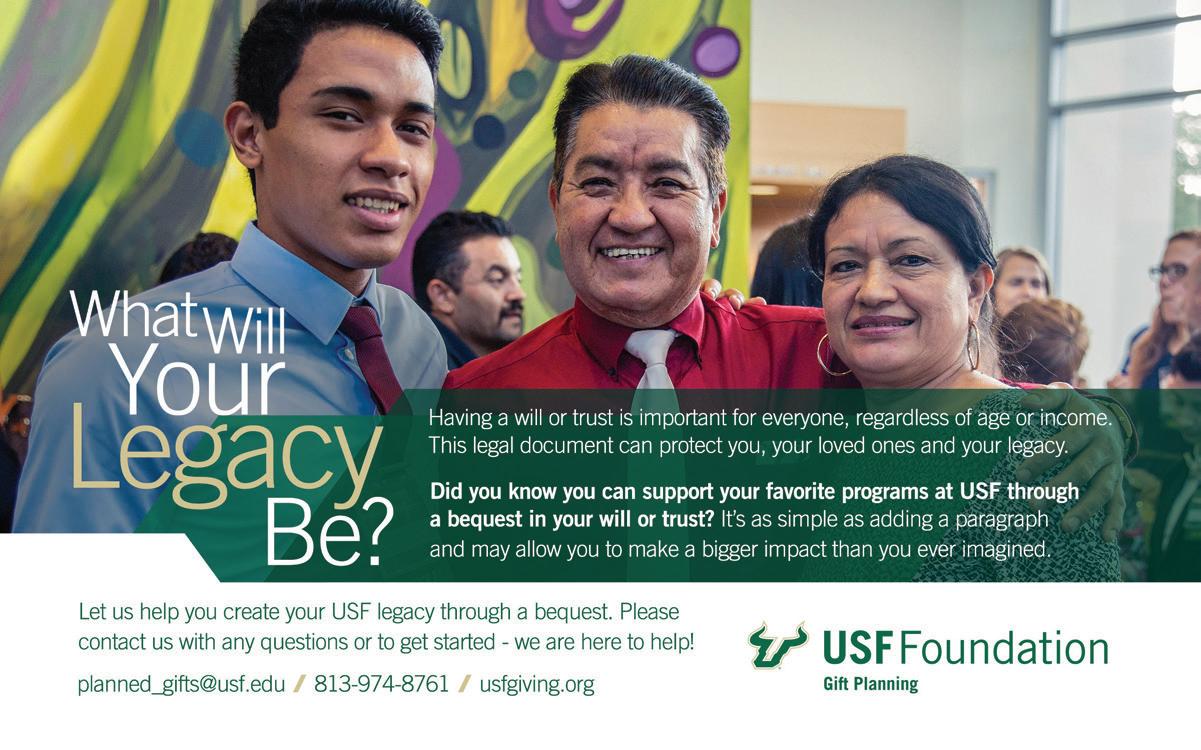
officer of Shumaker Advisors Florida, LLC, a public affairs firm in Tampa.
JOHN CONNERY JR., Accounting ’95, was named to the 2022 “Florida Super Lawyers” list, recognizing the top lawyers in the state. He is a practice chair at Hill Ward Henderson, a law firm in Tampa.
SARA DUCUENNOIS, Mass Communications ’99, Life Member, has been promoted to vice president of alumni relations at Florida International University in Miami, where she previously served as assistant vice president.
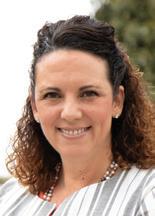
KYLE MCDOWELL, Mass Communications ’98, published “Begin with WE: 10 Principles for Building and Sustaining a Culture of Excellence” (Lioncrest Publishing, 2022). McDowell is an author, speaker and leadership coach based in Tampa.
DAVID ROOS, Government and International Affairs ’91, was elected to a second term on Henderson, Franklin, Starnes & Holt, P.A.’s executive committee. Roos is chair of the firm’s Worker’s Compensation department based out of its Fort Myers, Florida, office.
MICHAEL WYNN, Accounting ’97, has been appointed to Florida Gulf Coast University’s board of trustees. Wynn is the president of Sunshine Ace Hardware in Naples, Florida.
KIRA ZWYGART, MD ’98, Life Member, was listed on this year’s Castle Connolly Top Doctors, which recognizes the top doctors in the country. Zwygart is a professor and associate dean at USF’s Morsani College of Medicine Department of Family Medicine.
RYAN ANGEL, Economics ’09, was named to the Super Lawyers’ 2022 “Florida Rising Stars” list, recognizing the state’s top lawyers under 40 with 10 years of practice or less. He is an attorney at Hill Ward Henderson, a law firm in Tampa.
BRANDON BELLEW, Government ’03, was named to Florida Trend’s 2022 “Florida Legal Elite” list, recognizing the state’s top licensed and practicing attorneys selected by their peers. He is a partner at Johnson, Pope, Bokor, Ruppel & Burns, LLP, a law firm in Tampa.
CHRISTOPHER BRENNAN, Criminology ’09, has joined B2 Communications, a public relations agency in St. Petersburg, as operations director. He previously served as chief operating officer for NPC Creative Services.
AMY HARROUN, Mass Communications ’05, Life Member, joined USF Advancement Communications and Marketing as senior director of special projects. She previously served as communications and marketing director for the Judy Genshaft Honors College.
OWEN LAFAVE, Finance ’01, Life Member, and his wife, JESSICA MUROFF, Mass Communications ’01 and MA English Education ’02, Life Member, competed in the endurance event 29,029 Everesting in Whistler, Canada. The goal of the event is to summit a single mountain within 36 hours as many times as it takes to equal the elevation of Mount Everest. LaFave and Muroff climbed Blackcomb Mountain eight times to accomplish the feat.
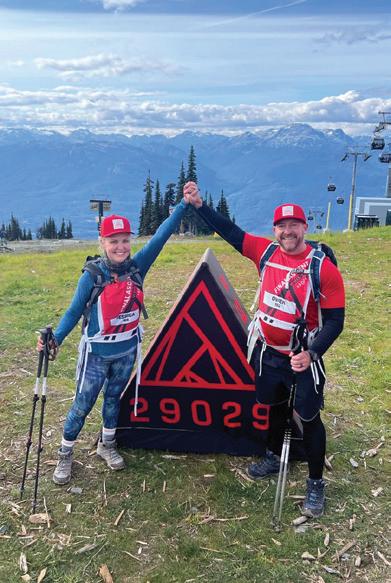
DAVID LUIKART, Government ’01, was named to the 2022 “Florida Super Lawyers” list, recognizing the top lawyers in the state. He serves as assistant general counsel at Hill Ward Henderson, a law firm in Tampa.
STEPHEN MAHER, Political Science ’07, has been appointed executive director of Hackensack Meridian Raritan Bay Medical Center Foundation and Hackensack Meridian Old Bridge Medical Center Foundation in New Jersey. He previously served as the assistant director of development at Hackensack Meridian Ocean University Medical Center Foundation.
MEGAN LATCHFORD MORGAN, Government and International Affairs ’08, Life Member, joined Benco Dental, in Pittston, Pennsylvania, as a learning development coordinator. She previously served as founder and president of Principal Ops.
DAVID REALI, Accounting ’09, Life Member, was recognized as one of “Bradenton’s Best” in the Accounting Firm category for 2022. A licensed CPA since 2010 and 2022 USF Fast 56 award recipient, Reali has owned his tax advising and accounting firm since 2016.
MICHAEL SALMON, MFA Art ’03, was appointed to The Circus Arts Conservatory’s board of directors in Sarasota. He is the director of development at The Out-of-Door Academy in Sarasota.
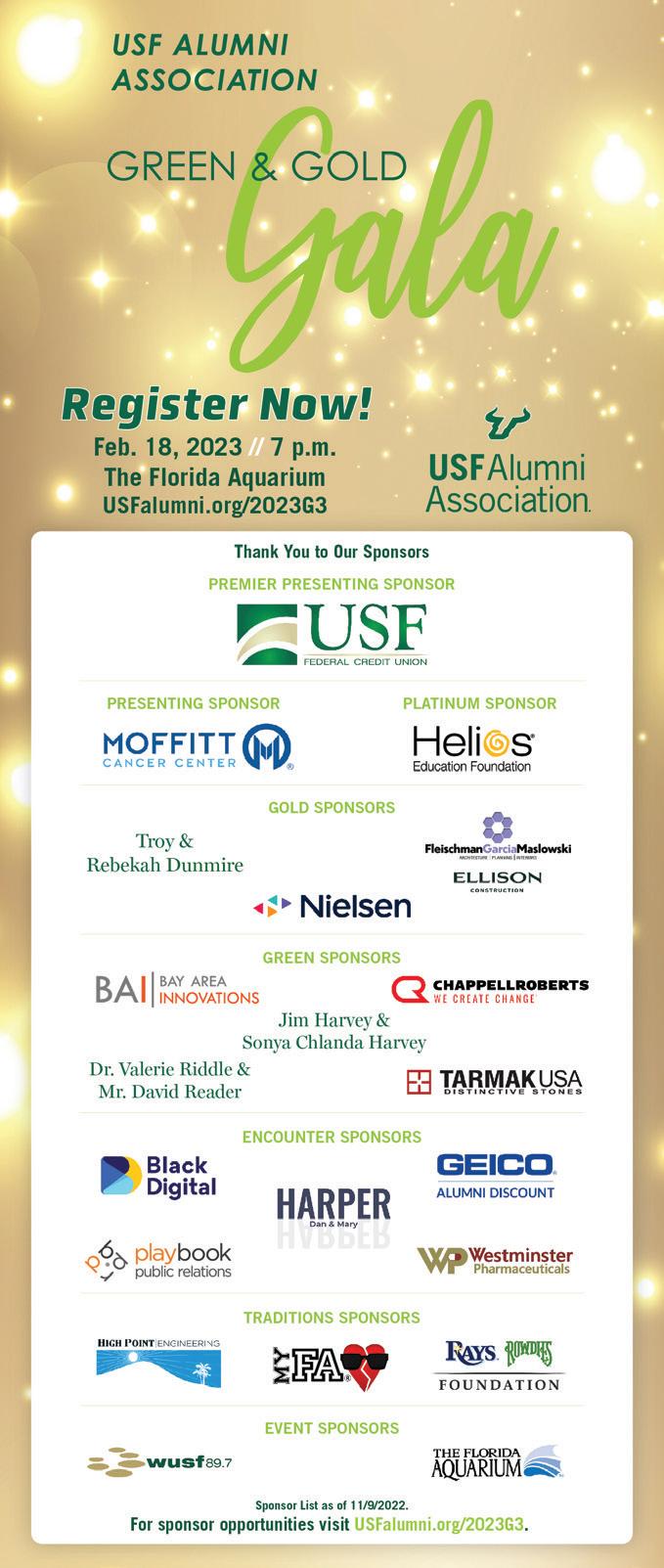
ALLISON “ALLI” STEVENSON, Criminology ’08, was named to the Super Lawyers’ 2022 “Florida Rising Stars” list, recognizing the state’s top lawyers under 40 with 10 years of practice or less. She is an attorney at Hill Ward Henderson, a law firm in Tampa.
TRAE WEINGARDT, Finance ’08, was named to the Super Lawyers’ 2022 “Florida Rising Stars” list, recognizing the state’s top lawyers under 40 with 10 years of practice or less. He is an attorney at Hill Ward Henderson, a law firm in Tampa.
LUCAS WIEGAND, MD ’06, was named vice chair of research and outreach for the department of urology at the USF Morsani College of Medicine.
CHRISTOPHER ALLEMANG, Electrical Engineering ’16, is conducting research on microelectronics at Sandia National Laboratory in Albuquerque, New Mexico, where he holds a postdoctoral position.
MASIEL PELEGRINO ALMON, Government and International Affairs ’15, was selected to the Bar Leadership Institute of Hillsborough County Bar Association as a member of the 2022-2023 class. Pelegrino Almon is an associate in Phelps Dunbar LLP’s Tampa litigation group.
THOMAS “T.J.” BANKS, Public Affairs ’15, was named to the Super Lawyers’ 2022 “Florida Rising Stars” list, recognizing the state’s top lawyers under 40 with 10 years of practice or less. He is an attorney at Hill Ward Henderson, a law firm in Tampa.
BRIAN BRIJBAG, Anthropology ’12 and Religious Studies ’12, earned his certificate in negotiation mastery through an online program at the Harvard Business School. He owns Brijbag Law in Spring Hill, Florida.
CHARLES BURTON, MS Cybersecurity ’19, graduated from the Certified Government Chief Information Officer program through Rutgers University. He is the technology director of the Calcasieu Parish Police Jury in Lake Charles, Louisiana.
TRISHELLE COPELAND-JOHNSON, Chemical Engineering ’12, is conducting research on a clean energy project at Idaho National Laboratory, where she is a Glenn T. Seaborg Distinguished Postdoctoral Fellow.
MIGUEL MARTINEZ, Nursing ’16, posthumously received the 2022 USF Status of Latinos (SOL) Award. Before his death in 2020, Martinez served as a nurse in the pediatric intensive care unit at Golisano Children’s Hospital of Southwest Florida in Fort Myers, Florida.
JAMES MITCHELL, Economics ’16, was promoted to chief executive officer of AdventHealth Center Ice, a sports complex in Wesley Chapel, Florida, where he previously served as chief operating officer.
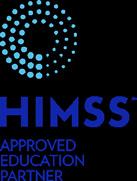

DAWN MORGAN, Accounting ’13 and MBA ’16, was named to the Tampa Bay Business and Wealth “Up & Comers” list, recognizing professionals under 40 in the region. Morgan is a manager at Kerkering, Barberio & Co., Certified Public Accountants in Sarasota.
TONY MORRISON, Business Administration ’11, has joined GLAAD, Gay & Lesbian Alliance Against Defamation, in New York as senior
director of communications. He previously worked at Good Morning America.
ALI NOMER, Management ’19, earned a Certified Specialty Contractor License from the state of Florida. He is a designer and project manager at United States Awning Co. in Sarasota.
RANDY OJEDA, Psychology ’12, has joined Busciglio, Sheridan & Schoeb as counsel. Ojeda is also the chief executive officer and co-founder of Cigar City Management, LLC, an artist management company in Tampa.
CAITLYN RALSTON, Business Administration ’19, has joined The Pickleball Club, an indoor pickleball facility in Sarasota, as an event coordinator.
DUSTIN ROBINSON, Childhood Education ’11 and MEd ’15, was appointed to the Education Law Association’s board of directors. He is the assistant principal of the Dorothy C. York Innovation Academy in Apollo Beach, Florida.
TODD ST. JOHN-FULTON, Undergraduate Studies ’19, Life Member, was named Chief HR Officer of the Year at the Tampa Bay Business and Wealth Magazine Apogee Awards. St. John-Fulton serves as the chief people and culture officer at Habitat for Humanity of Pinellas and West Pasco Counties.
POOJA SHAH, Public Affairs ’16, has graduated from her residency in pharmacy at HCA Florida Oak Hill Hospital in Brooksville, Florida.
ASHLEY SIMPSON, Psychology ’12, has graduated from her residency in pharmacy at HCA Florida Oak Hill Hospital in Brooksville, Florida.
CODY WALDROP, Public Health ’11, Life Member, earned the Certified Veterinary Practice Manager credential, the highest credential for professional veterinary managers. He is a practice management officer at Associated Veterinary Partners in Tampa.
VICTOR ZAMORA JR., Philosophy ’11, received the Hawkins Community Partnership Award from the USF College of Behavioral and Community Sciences criminology department. He is the founder and lead criminal defense attorney for Viza Law LLC in Tampa.
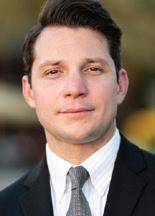
NATALIE HERNESMAN, Mass Communications ’21, has joined Sachs Media as an account coordinator. She previously worked as a web editor and social media producer for Florida Focus on NPR affiliate WEDQ.
CONNOR BAUER, Industrial Engineering ’05, Dec. 23, 2021
CAROL A. BALDWIN, Elementary Education ’67, July 27, 2022
IGNACIO BELLO, Mathematics ’65, Aug. 29, 2022
JEFFREY KELLING BRYAN, Biology ’95, July 14, 2022
KENNETH BRYANT, Political Science ’75, July 25, 2022
PATRICIA HIGGINBOTHAM BUSSELL, MA Guidance and Counselor Education ’93, Life Member, Sept. 8, 2022
BARBARA ANNE CLARK, MA History ’72, Life Member, Aug. 7, 2022
DOUGLAS CROOK, Management ’69, July 21, 2022
JESSE CARL CROSSON, Education ’70, Aug. 24, 2022
JAMES CUNNINGHAM, General Communications ’67, Life Member, June 30, 2022
JACK DAVIS, Economics ’73, July 12, 2022
KENLUN DAWSON, Communication ’09, Aug. 17, 2022
MARIO DELEON, MA Education ’75, Aug. 9, 2022
GREGORY DEROSA, Criminology ’01, Aug. 25, 2022
DR. PETER DONELAN, MD ’78, Aug. 14, 2022
DIANA NORRIS ELDRED, MA Rehabilitation Counseling ’85, Mar. 14, 2022
MICHAEL THOMAS EZZELL, Accounting ’71, Sept. 9, 2022
GEORGE ANTHONY FALCON, Accounting ’66, July 18, 2022
STEPHEN PARKER FLUHARTY, Mechanical Engineering ’79 and MBA ’84, Aug. 11, 2022
SUSAN GARNETT, Mass Communications ’79, Dec. 22, 2021
HOMER GARTRELL, Natural Sciences ’72, Mar. 24, 2022
KAREN HANGARTNER, Management ’75, Aug. 9, 2022
ADAM HASEBROOCK, Wellness ’00, Nov. 4, 2021
JOHN CUTTER HEARSEY, Engineering ’75, July 18, 2021
JENNIFER HIERS, Education ’96, June 21, 2022
GIGI CHALSTROM HUBBARD, EDS Counselor Education ’90, July 22, 2022
ROSEMARY D. HUSKEY, MA Education ’70, Aug. 13, 2022
ALENE HENDRY JOHNSON, Health Education ’80 and MA Gerontology ’90, Aug. 10, 2022
BARBARA SMITH JONES, MA Guidance and Counseling Education, Oct. 5, 2022
ROBERT SAMUEL KAPLAN, Psychology ’11, Aug. 7, 2022
WILLIAM KINDELL, Art ’83, June 15, 2022
PAUL “TATAY” LAMISON, Communication ’87, Aug. 3, 2022
On Oct. 18, Florida lost a passionate advocate for education and dedicated philanthropist and friend of USF. Gus Stavros, 97, was a former member of the Board of Regents and Board of Governors for the State University System of Florida. His visionary leadership has provided for the economic education of generations of students of all ages through two Gus A. Stavros Centers for Free Enterprise and Economic Education, including one at USF.
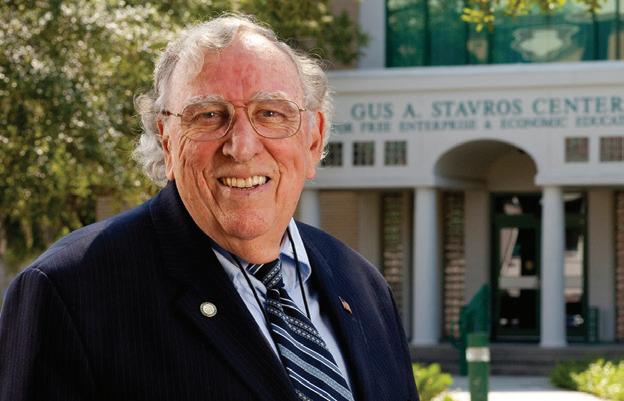
Among many other gifts benefiting the Tampa Bay area, Stavros supported economics education at the Kate Tiedemann School of Business and Finance on the St. Petersburg campus and helped establish the Gus A. Stavros Institute, comprising Enterprise Village and Finance Park, in Pinellas County.
“The University of South Florida and the state of Florida have lost a great advocate, a generous philanthropist and a dear friend whose legacy will live on for generations to come,” said President Rhea Law. Read more at usf.to/GusStavros
MARK LILLQUIST, Communication ’98, Life Member, July 14, 2022
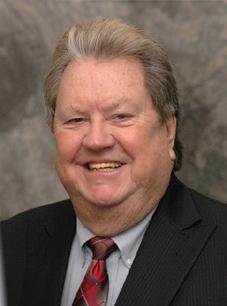
ELIZABETH LINDSAY, MBA ’83, Life Member, Jan. 18, 2022
JO ANN LONG, PhD Education ’69, Apr. 30, 2022
GEORGE LORTON, Geology ’70, Life Member, July 18, 2022
JOHN B. LUCAS, Applied Science ’16, Life Member, July 14, 2022
LINDA “LIN” MAKI, Criminology ’76, Mar. 27, 2022
ALICE MANN, Education ’98, Sept. 4, 2022
MADISON MERRITT, Criminology ’20, Dec. 27, 2021
DR. STEPHEN MEYER, Chemistry ’84, Biology ’85 and MD ’89, Aug. 8, 2021
EVERETT MIDDLETON, MA Education ’78, Aug. 29, 2022
CATHY LYNN MINARDI, English ’91, Aug. 18, 2022
DONALD P. MONTGOMERY, MA Education ’70, Aug. 29, 2022
JOSEPH P. MOORE, Mass Communications ’76, July 16, 2022
KATHLEEN MOORE, PhD Education ’90, Life Member, Feb. 18, 2022
SARA MOORE, Childhood Education ’71, July 13, 2022
NEENA PACHOLKE, Mass Communications ’17, Aug. 27, 2022
ANH-KAY PIZANO, Education ’99, MEd ’01 and PhD ’20, Mar. 3, 2022
TIMOTHY OYELEKE OLADOKUN, MA Special Education ’78, Life Member, Aug. 2022
DEREK W. REARDON, Management Information Systems ’97, July 29, 2022
GWEN ROMANELLO, English ’86, Oct. 16, 2022.
VICTORIA ROUSSMAN, American Studies ’69, June 17, 2022
MARY MCCLAM SESSUMS, MA Education ’71 and MA Rehabilitation Counseling ’77, July 20, 2022
WILLIAM “BILL” STEMM, MA Rehabilitation Counseling ’93, July 1, 2022
CYNTHIA TIDWELL, Marketing ’72, June 23, 2022
DR. DWIGHT VALENTINE, MD ’85, July 27, 2022
MARJORIE A. VEENSTRA, MA Elementary Education ’74 and Theatre ’84, July 24, 2022
MARILYN (TRIBBLE) WITTNER, MA Education ’71, Aug. 10, 2022
GWENDOLYN WRIGHT, Women’s and Gender Studies ’91, MSW ’95, Mar. 22, 2022
DR. ROBERT BEDFORD, Faculty, Anesthesiology, Sept. 2, 2022
PASCHAL COLLINS, Professor, Creative Writing and American Literature, June 24, 2022
JACK FERNANDEZ, Professor, Chemistry, July 31, 2022
SAMUEL GARRETT, Professor, Engineering, Aug. 14, 2022
VANCE JENNINGS, Professor Emeritus, Music, Feb. 9, 2022
FESTUS OHAEGBULAM, Professor Emeritus, African and Afro-American Studies, Aug. 5, 2022
DR. RAY OLSSON, Professor, Cardiovascular Research, Aug. 29, 2022
LEE ROSE, Coach, Men’s Basketball, Apr. 5, 2022
T.W. GRAHAM SOLOMONS, Professor Emeritus, Organic Chemistry, Oct. 2, 2021
JOHN DOUGLAS UZZELL, Anthropology Instructor, July 5, 2022
Friends
KAILASH JAIN, Benefactor, President’s Circle, Life Member, June 28, 2022
EUGENE L. WEINER, Benefactor, Bulls Club, Aug. 1, 2022
William “Bill” Hogarth, March 7, 1939 – Nov. 5, 2022
WILLIAM “BILL” HOGARTH came to USF after a long and illustrious career with the National Marine Fisheries Service. He retired from federal service in 2007 as director of Fisheries for the National Oceanic and Atmospheric Administration. That year, he became interim dean of the College of Marine Science at the St. Petersburg campus. He also served as director of the Florida Institute of Oceanography (FIO) and interim regional chancellor for the St. Petersburg campus.
In 2017, the FIO named its new research vessel the R/V William T. Hogarth. Hogarth’s legacy also continues in perpetuity through The William T. Hogarth Fellowship in Marine Mammals, awarded annually to a USF biological oceanography graduate student.
Read more at usf.to/BillHogarth
1.
Publisher, Editor,
Publisher: Bill McCausland, USF Alumni Association, University of South Florida, 4202 E. Fowler Ave., ALC100, Tampa, FL 33620-5455. Editor: Penny Carnathan, USF Alumni Association, 4202 E. Fowler Ave., ALC100, Tampa, FL 33620-5455.
A) Total number of copies printed (Net Press Run)
B)
(1)
(2)
USF is published quarterly in the spring, summer, fall and winter as a benefit of membership in the USF Alumni Association, 4202 E. Fowler Ave, ALC 100, Tampa, FL 336205455. Periodicals Postage Paid at Tampa, FL 33634-9651 and additional mailing offices. POSTMASTER: Send address changes to USF, 4202 E. Fowler Ave., ALC 100, Tampa, FL 33620-5455.
requests induced by a premium, bulk sales and names obtained from other sources
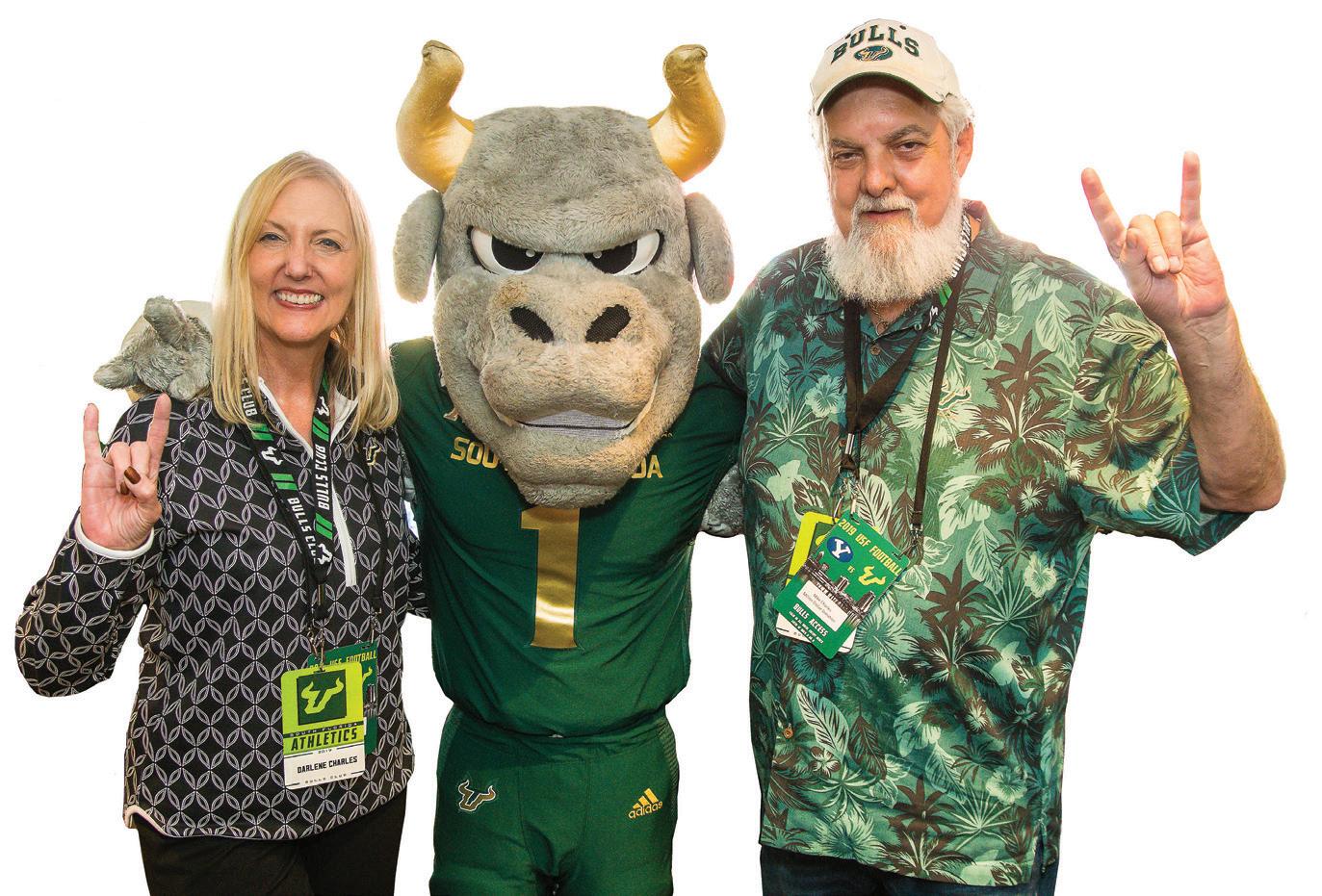
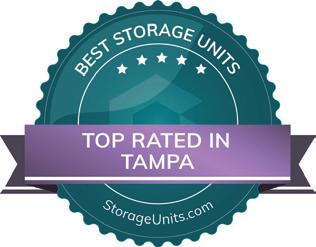
The USF Alumni Association’s chapters and societies connect Bulls with one another – across the country and around the world. Through social events, professional networking, fundraising and community service, among other activities, alumni groups help USF grads and friends support one another, our university, and current students. They play an important part in the Alumni Association’s mission to provide meaningful ways for Bulls to make an impact; protect USF through advocacy; share pride in our great university; and stick together.
It’s easy to get involved! Just email the contact person of the group you’d like to visit. For alumni group events, visit usfalumni.org/events.
Rugby Alumni James Callihan Sean Masse usfbullsrugbyalumni@gmail.com
Veteran Alumni Todd Post usfvets@gmail.com
Asheville, N.C. Omar Nevárez onevarez@usf.edu
Atlanta Emily Peña penaemilyp@yahoo.com
Austin, Texas Omar Nevárez onevarez@usf.edu
Broward County Ruth Rogge ruthrogge@gmail.com Alan Steinberg usfbrowardalumni@gmail.com
Charlotte, N.C. Chris Leddy chris.leddy@heritage.law
Black Alumni Tina James blackalumnisociety@usfalumnigroup.org
Bulls of the Last Decade William Dailey wdailey@usf.edu
Dance Alumni Network Sadie Lehmker slehmker@usf.edu
DBA Alumni Network Andy Hafer USFDBAAlumni@gmail.com
Education Alumni David Scanga usfedusociety@gmail.com
Engineering Alumni Carissa Gudenkauf usfeaschair@gmail.com
Geology Alumni Gregory O’Neal usfgas@gmail.com
Kosove Scholarship Alumni Justin Geisler justingeisler@hotmail.com
Latino Alumni Shayra Rosario Delia Jourde latinoalumni@usfalumnigroup.org
LGBTQ+ Alumni Todd St. John-Fulton Robert Wallace LGBTQalumni@usfalumnigroup.org
Medicine Alumni Valerie Riddle valerie25@usf.edu
Music Alumni Arupa Gopal Tanya Bruce usfmusicalumni@gmail.com
Patel College of Global Sustainability Arnel Garcesa patelnetwork@usfalumnigroup.org
Psychology Alumni Samera Ahmed usfpsychba@gmail.com
Public Health Alumni Brennan Hodge COPH@usfalumnigroup.org
Chicago Amy Metzgar ametzgar76@gmail.com
D.C. Regional Tisheika Snow Olivia Scheuer usfbullsdc@gmail.com
Denver Omar Nevárez onevarez@usf.edu
Mary Ava Nunery Maryava11@gmail.com
Houston Ken Lettre kjlettre@gmail.com
Indianapolis Omar Nevárez onevarez@usf.edu
Jacksonville-St. Augustine Jodi Dodge Jadodge.usf@gmail.com
London Raquel Collazo londonusfalumni@gmail.com
Los Angeles Garin Flowers garin.flowers@gmail.com
Miami-Dade County Henry Silva henry.silva@apollowealth.com
New York City Nate Collins Divya Sukumar usfalumniny@gmail.com
Orlando Brenda Cardenas usfbullsorlando@gmail.com
Palm Beach County Jeamson Simeus jeamson.simeus@nm.com
Pasco County Phil Kupczyk kuptheteach@hotmail.com
Philadelphia Mike Waterhouse usf.tri.state.alumni@gmail.com
Pinellas County Pam Haber pinellas@usfalumnigroup.org
Polk County Spencer Montgomery Spencer.montgomery@me.com
Raleigh, N.C. Benjamin Wadsworth bwadswor@mail.usf.edu
Jim Johnson jim@stateofsunshine.com
San Diego Omar Nevárez onevarez@usf.edu
Sarasota-Manatee Coy Carter usfsmalumni@gmail.com
Saudi Arabia Hussein Alrobei alrobei@mail.usf.edu
Tallahassee Brian Cziraky usfalumnitally@gmail.com
Tampa (Greater Tampa)
Kristin Rzonca Chloe Lipking usftampaalumni@gmail.com
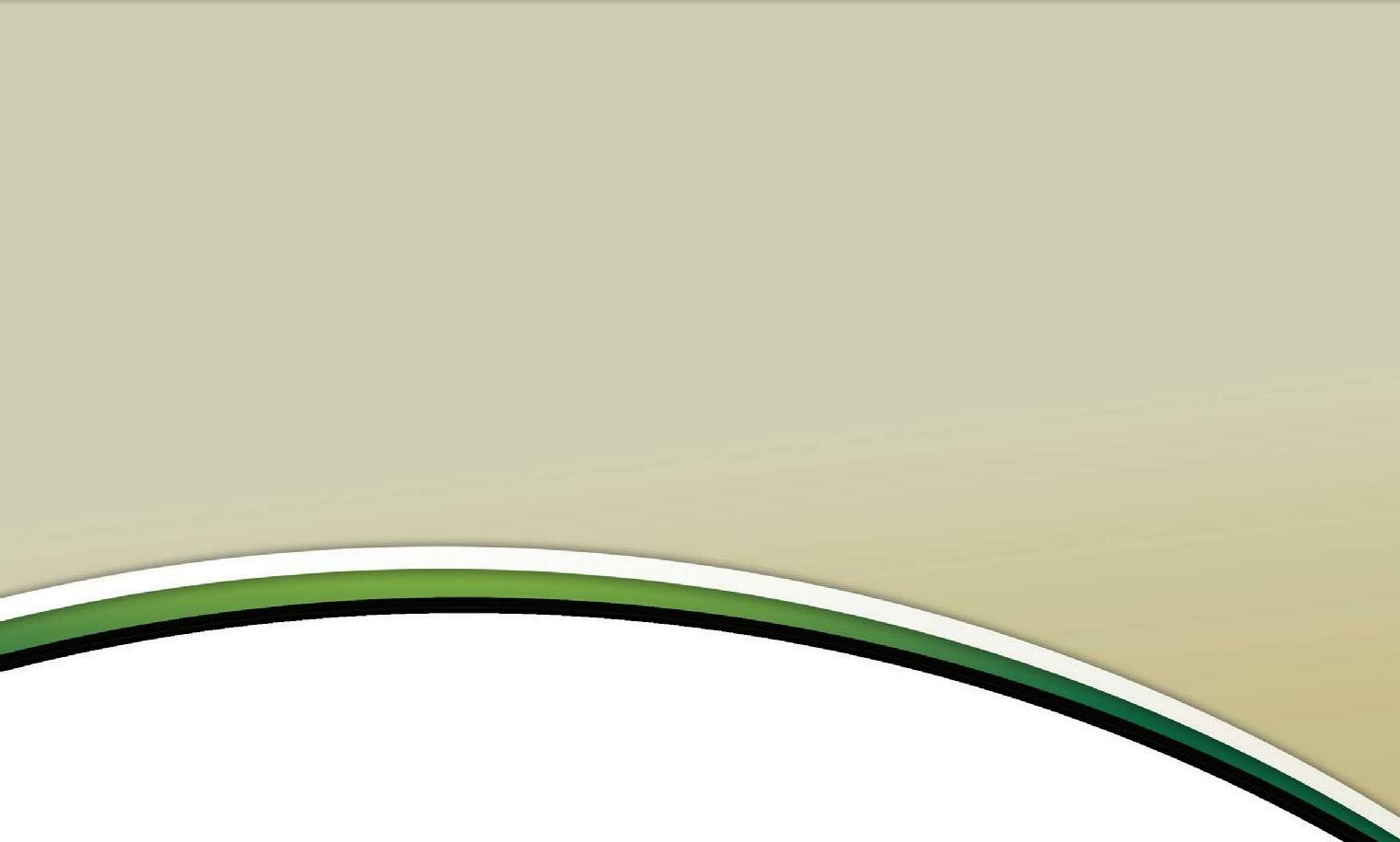

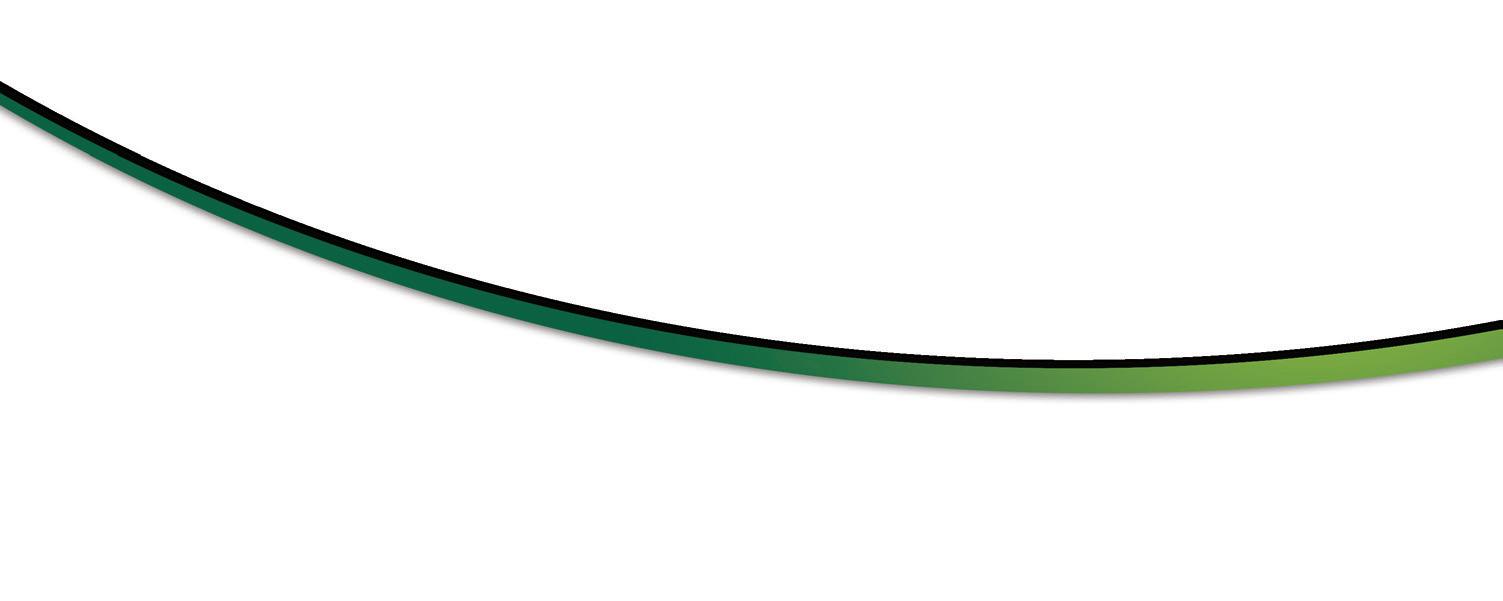
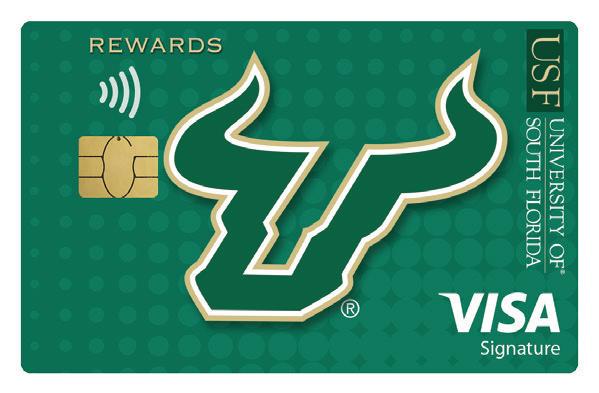
Gibbons Alumni Center
University of South Florida 4202 E. Fowler Ave., ALC100 Tampa, FL 33620-5455

